Meet the people responsible for the Modern Slavery PEC's day to day work.
The Modern Slavery PEC Senior Management Board (SMB) comprises representatives of the six Consortium partners of the Centre, the Centre’s Research Director, the Operations Director, and the AHRC’s Senior Responsible Officer. The SMB is responsible for developing and delivering the strategy of the Centre.
Advisory Group offers advice and guidance to the Senior Management Board.
Modern Slavery PEC Fellows lead our partner-led work strands, utilising the existing expertise within the Modern Slavery PEC Consortium partners and allowing both agile and longer-term approaches to meet the needs of policymakers.
People working on research projects funded by the Modern Slavery PEC.
Modern Slavery PEC Director
Murray Hunt
Murray Hunt is the Director of the new Modern Slavery and Human Rights Policy and Evidence Centre, created to enhance understanding of modern slavery and transform the effectiveness of law and policies designed to overcome it. It is led by the Bingham Centre for the Rule of Law, of which Murray is the Director.
From 2004 to 2017, Murray was Legal Adviser to the Joint Committee on Human Rights in the UK Parliament, and prior to that was a practising barrister at Matrix, which he helped to establish in 2000.

Finance and Administration Manager
Isabella Asimadi
Isabella Asimadi has extensive experience of administering Research Council funding. Her highly varied portfolio includes multi-national project management and coordination with Imperial College London, University College London and Commonwealth Secretariat.

Director of Research and Senior Management Board member
Prof Alex Balch
Prof Alex Balch is a professor of politics at the University of Liverpool, with research interests in policies on immigration and modern slavery. He currently leads the Antislavery Knowledge Network, which seeks to apply innovative methods to tackle modern slavery across Sub-Saharan Africa. He is also associate director of the African Programming and Research Initiative To End Slavery (APRIES). He has over 10 years’ experience designing and implementing programmes in diverse international contexts. His approach is collaborative and interdisciplinary, with the aim to develop new methods and modes of partnership across national boundaries with government, business and civil society to meet the challenges in addressing modern slavery.
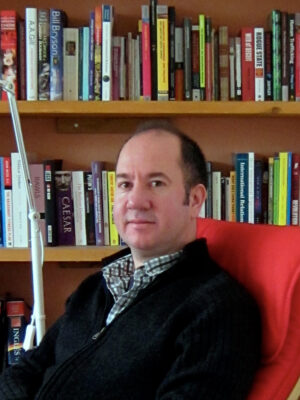
Director of Policy Impact
Olivia Hesketh
Olivia Hesketh joined the Modern Slavery PEC from the civil service. She began her career as a government analyst across crime and policing policy areas. For four years before she joined the Centre, Olivia was a policymaker in the Modern Slavery Unit in the UK Home Office, most recently leading the team that focuses on the Government’s international and prevention policies.

Policy Impact Manager
Liz Williams
Liz Williams joined the Modern Slavery PEC from Asylum Research Centre which she co-founded in 2010. As co-Director, she led research and policy projects on asylum and refugee protection issues. Liz has acted as a consultant for UNHCR, the European Asylum Support Office, Amnesty International UK and the Independent Advisory Group on Country Information and has been a Senior Policy Advisor at Freedom from Torture.

Partnerships Manager
Owain Johnstone
Owain Johnstone joined the Modern Slavery PEC from the Ethical Trading Initiative (ETI), where he worked as Modern Slavery Advisor and Policy Advisor. While at ETI, he worked on establishing best practice in business modern slavery reporting, supporting the development of the Modern Slavery Statement Framework. He also coordinated engagement with a range of stakeholders on issues including state-imposed forced labour, the implementation and enforcement of the UK Modern Slavery Act and the emerging debate on mandatory human rights due diligence. Prior to working at ETI, Owain completed his PhD on the development of human trafficking law and policy in the UK.
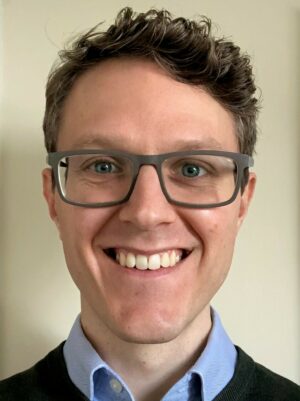
Research Operations Manager
Izzy Templer
Izzy Templer joined the Modern Slavery PEC from the University of Edinburgh, where she was the Project Manager for Rising from the Depths, a Global Challenges Research Fund Network Plus award. While working with Rising from the Depths she managed a portfolio of 27 Innovation Projects that researched the utilisation of Marine Cultural Heritage for sustainable development in Eastern Africa. Izzy’s background is in law, studying Law and European Law at the University of Nottingham.

Executive Assistant
Marjo Paavilainen
Marjo has an extensive administrative experience working in non-for-profit and public sectors. She has joined the Modern Slavery PEC and the Bingham Centre for the Rule of Law, having recently worked in international research and innovation think tanks and organisations.
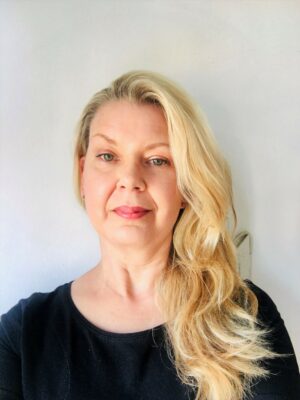
Policy Impact Manager
Dr Victoria Tecca
Dr. Victoria Tecca has a background in research and policy in the fields of cross-Channel migration, people smuggling, exploitation, and structural violence. She recently completed her PhD in anthropology, for which her research examined the impacts of immigration policy on Kurdish undocumented migrants living street homeless in a tent settlement on the France-UK border. She has previously worked in policy, casework, and frontline emergency response roles in the civil society sector.

Research Associate
Rose Fatherazi
Rose Fatherazi joined the Modern Slavery PEC from the Middle Eastern Women and Society organisation (MEWSo) where she was the Operations and Advice Manager overseeing cases related to domestic abuse, welfare issues and migrant rights. She has expertise in harmful practices in the UK, particularly centred around modern slavery and forced marriage, polygamy, and honour based abuse. Rose is a passionate campaigner and aided in the launch of the Ban Virginity Tests campaign and assisted in including the ban on virginity tests and hymen repair surgery in the Health and Care Bill 2022.

Lived Experience Engagement Manager
Olessya Glasson
Olessya Glasson has extensive experience in creating spaces for survivors of modern slavery to feed directly into modern slavery policy, and in embedding lived experience within organisations working to address modern slavery, including in research, service delivery and NGOs.
Her role at the Modern Slavery PEC is to lead on the Modern Slavery PEC’s commitment to survivor inclusion, ensuring that everything the Centre does has survivor expertise woven through it. She oversees the governance of our lived experience engagement work, and founded the Modern Slavery PEC Lived Experience Advisory Panel, which is made up of six individuals who hold lived experience of modern slavery or human trafficking, and who advise on all aspects of the Centre’s work.
Modern Slavery PEC Director
Murray Hunt
Murray Hunt is the Director of the new Modern Slavery and Human Rights Policy and Evidence Centre, created to enhance understanding of modern slavery and transform the effectiveness of law and policies designed to overcome it. It is led by the Bingham Centre for the Rule of Law, of which Murray is the Director.
From 2004 to 2017, Murray was Legal Adviser to the Joint Committee on Human Rights in the UK Parliament, and prior to that was a practising barrister at Matrix, which he helped to establish in 2000.

Senior Management Board member
Prof Trevor Burnard
Trevor Burnard is one of the world’s leading historians of the slave trade and slave societies in the Americas. Currently Wilberforce Professor of Slavery and Emancipation and Director of the Wilberforce Institute at the University of Hull, since 2004 he has held professorships at Sussex, Warwick, Melbourne and Hull. He is author of 14 books, including 7 monographs, the most important of which is the prize-winning Mastery, Tyranny and Desire: Thomas Thistlewood and His Slaves in the Anglo-Jamaican World (2004).
He has been editor-in-chief since 2009 of the award-winning Oxford Bibliography Online in Atlantic History. His numerous fellowships include the Heinz Heinen Fellowship at the Centre of Slavery and Dependency Studies at the University of Bonn. He was head of school or department for 16 years at the Universities of Brunel, Sussex, Warwick and Melbourne.
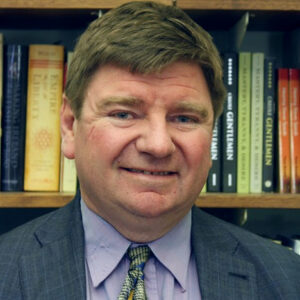
Senior Management Board member
Dr Christos Kypraios
Dr Christos Kypraios is the Programmes Manager at the Bonavero Institute of Human Rights, University of Oxford, a Senior Fellow at Mansfield College, University of Oxford, and a Senior Research Affiliate at the Max Planck Institute for Comparative Public Law and International Law in Heidelberg. He is a Senior Management Board Member of the Modern Slavery PEC since July 2020, representing the Bonavero Institute of Human Rights.

Senior Management Board member and Researcher
Dr Anjali Mazumder
Anjali Mazumder is the Theme Lead on AI and Justice & Human Rights at the Alan Turing Institute. With over 15 years’ experience of working at the interface of research, policy and practice in the UK, the US, and Canada, her work focuses on developing responsible and inclusive data and AI methods, tools and frameworks for safeguarding people from harm and building resilient institutions and systems. She was appointed to Canada’s National DNA Databank Advisory Committee (2012-2018) and currently serves on the UK Forensic Science Regulator’s fingerprint interpretation subgroup. She has also served the Royal Statistical Society in a variety of ways, most recently appointed to the Statistics & Law Section and the Data Science Section committees. She holds a doctorate in Statistics from the University of Oxford and two masters’ degrees in Measurement and Evaluation, and Statistics from the University of Toronto.
She is leading on the Modern Slavery PEC project on Enabling Trust, Security and Privacy for Policy Innovation in Tackling Modern Slavery.

Senior Management Board member and Researcher
Dr Katarina Schwarz
Dr. Katarina Schwarz is Associate Director (Law and Policy Programme) at the Rights Lab, University of Nottingham, and Assistant Professor of Antislavery Law and Policy. Her research interrogates the law and policy frameworks that operate at the global, regional, and domestic level to determine the elements of effective anti-slavery governance and map trends, successes, and failures in this area. To support evidence-based action in anti-slavery governance, Schwarz is currently developing and analysing the world’s first comprehensive database of the domestic legislation and international obligations of all 193 UN Member States with regard to slavery and related forms of exploitation.
Katarina is working on two Modern Slavery PEC projects, analysing the situation in top source countries for trafficking into the UK and on the impact of Covid-19 and modern slavery in Sudan.

Senior Management Board Member
Dr Peter Olayiwola
Peter Olayiwola is a lecturer in the politics of Immigration, Anti-trafficking and Modern Slavery at the University of Liverpool. His research interests include migration, trafficking, poverty, inequalities, and qualitative research methods. He has also been involved in projects examining the challenges of achieving such Sustainable Development Goals (SDGs) as eliminating all forms of modern slavery and child labour.

Advisory Group member
Prof Ruth Blakeley
Prof Ruth Blakeley is a Professor of Politics and International Relations at the University of Sheffield. After completing an MSc and PhD in International Relations at the University of Bristol, she became a lecturer and then Professor in International Relations at the University of Kent, later becoming the Head of School of Politics and International Relations. She was the Director of the White Rose Social Sciences Doctoral Training Partnership at Sheffield. She is the Vice Chair of the British International Studies Association (BISA), and was lead Editor of the Review of International Studies from 2016 to 2020. Professor Blakeley’s research and teaching focus on international security, terrorism and political violence, and human rights.

Advisory Group member
Paul Bowden
Paul Bowden is a solicitor. He is former global corporate responsibility partner and leader of the business and human rights practice at Freshfields Bruckhaus Deringer. Paul teaches business and human rights law as honorary professor at the Nottingham Law School at Nottingham Trent University and is Chair of the National Justice Museum, the leading public legal education provider.

Advisory Group member
Alastair Redfern
The Right Revd Dr Alastair Redfern is chair of the Clewer Initiative, a co-founder of the Global Sustainability Network, chair of the Advisory Panel for the Independent Anti-Slavery Commissioner, and vice-chair of the Anglican Alliance. He was a member of the Select Committee which drafted the modern slavery act for the UK. He was Bishop of Derby from 2005 to 2018.

Advisory Group Member
Yuki Lo
Yuki Lo is the Head of Research & Evaluation at the Freedom Fund and has over ten years’ experience delivering evaluations of child protection, labour rights, women's economic empowerment and ending gender-based violence programs. She leads the Freedom Fund’s work on measuring the impact of its investments and is currently supervising research in Bangladesh, Brazil, Ethiopia, India, Myanmar, Nepal and Thailand on the topics of forced labour, child labour, debt bondage, sex trafficking and forced marriage.

Advisory Group Member
Andrew Wallis OBE
Andrew Wallis is the CEO of anti-slavery organization Unseen, which provides safe housing and other services for survivors of trafficking, runs the UK’s Modern Slavery and Exploitation Helpline, and works with businesses and others in the eradication of slavery. Andrew chaired the landmark Centre for Social Justice report ‘It Happens Here’, widely acknowledged as the catalyst for the UK Modern Slavery Act of 2015, which he also advised on the development of. He was awarded an OBE that year. The job has presented him with challenges as diverse as building flat-pack furniture for Unseen’s first safe house, to advising global businesses on how to address slavery in supply chains. He has been described as ‘the loveliest disrupter you could hope to meet.’
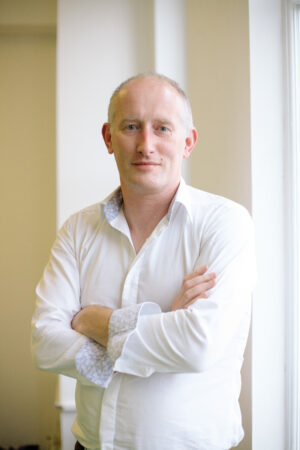
Advisory Group Member
Louise Waite
Louise Waite is Professor of Human Geography at the University of Leeds, UK. Her research interests span migration and slavery; with a particular focus on discourses of ‘modern slavery’, unfree/forced labour and exploitative work among asylum seekers and refugees. Through her interdisciplinary and collaborative approach, she has published on these themes in a range of peer reviewed journals and in recent books: The modern slavery agenda: Politics, policy and practice in the UK (with G. Craig, A. Balch, H. Lewis, Policy Press, 2019) and Vulnerability, exploitation and migrants: Insecure work in a globalised economy (with H. Lewis, G. Craig & K. Skrivankova, Palgrave, 2015).
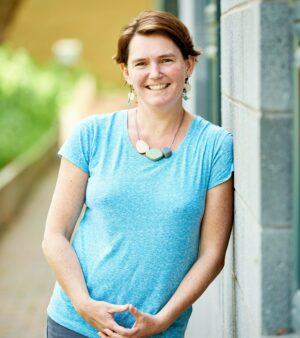
Advisory Group member
Dr Leona Vaughn
Dr Leona Vaughn is the Vulnerable Populations Lead for FAST (Finance Against Slavery & Trafficking) at United Nations University Centre for Policy Research. Dr Vaughn has over 25 years of experience working as an equalities and social justice expert, including as Chief Executive of the UK hate crime charity Anthony Walker Foundation and Non-Executive Director of the Liverpool FC Charitable Foundation. More recently, at the University of Liverpool (UK), Leona has worked as a Research Fellow on a number of interdisciplinary international projects researching risk, vulnerability and labour exploitation globally, and the impacts on racialised and minoritised populations, especially women and children.
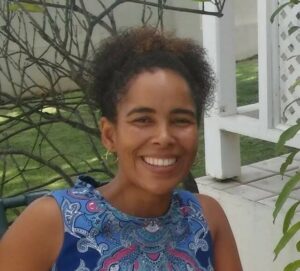
Advisory Group Member
Debbie Ariyo OBE
Debbie Ariyo is Founder and Chief Executive of AFRUCA - Safeguarding Children. She is Founder and Chair of the UK BME Anti-Slavery Network. She is a specialist in forced migration and human trafficking and has vast experience of designing and implementing diaspora anti-trafficking engagement programmes and service provision for victims and survivors. She has served in many advisory and non-executive roles including as Trustee of the Africa Europe Diaspora Development Platform based in Brussels. She is also an Advisory Board Member of the Journal of Modern Slavery. A former UK civil servant, she holds an Executive Master degree in Public Administration from the London School of Economics and Political Science.

Advisory group member
Eric Anderson
Eric Anderson is a specialist in business and human rights, with over 20 years' experience including corporate strategy, policy development, business improvement and supply chain management. He currently leads the human rights team at Tesco and is a Trustee at Unseen, a leading anti-slavery charity. Previously, Eric led BT's global anti-slavery programme. During this time he helped set up the UK’s modern slavery helpline and co-founded Tech Against Trafficking, a coalition of tech companies working with global experts to combat modern slavery and human trafficking.

Advisory group member
Catherine Turner
Catherine Turner is a committed and effective NGO advocate and strategist with a wealth of experience in the modern slavery and wider human rights field, as well as in international transparency and development. Notably, she was the Child Slavery Programme Coordinator at Anti-Slavery International for ten years, where, for example, she led a successful campaign to end the trafficking and use of children as camel jockeys in the UAE and beyond, and established frameworks for identifying forced child begging and when child marriage amounts to child slavery. Catherine has also led successful campaigns at Amnesty International, World Vision UK and latterly at Publish What You Fund, the international aid transparency campaign, where she was Advocacy Director and Acting CEO for a period. Her experience is underpinned by an LLM in International Human Rights Law from Essex University, an MSc in NGO Management from the London School of Business (formerly known as Cass Business School) and an MA in International Relations and European Studies from the Central European University in Budapest.

Advisory Group member
Dr Rosemary Broad
Dr Rose Broad is a Senior Lecturer at the University of Manchester. Rose has conducted research on modern slavery and human trafficking, in collaboration with criminal justice agencies and non-government organisations, for over ten years. Her work has made use of quantitative and qualitative data in order to focus on those held responsible for these offences, adding to the limited literature in this area. Her work is closely rooted in the relationship between policy and practice and the importance of developing practice-focused outputs, having worked for over ten years in criminal justice and the voluntary sector.
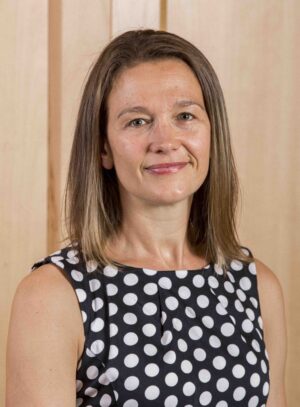
Advisory Group Member
Hannah Pooley
Hannah Pooley is a Deputy Director in the Home Office. She is currently joint head of the Modern Slavery Unit, responsible for leading and implementing the Government’s modern slavery policy and strategy. The unit works closely with many different government departments, criminal justice and law enforcement bodies, local authorities, academia, business, charities and international bodies to collectively combat modern slavery and to support victims.
In her civil service career, Hannah has held various strategy and policy roles related to international trade, business, energy and public health. Hannah previously worked at the Department for Business, Energy & Industrial Strategy, where appointments included Deputy Director for International Trade and Chief of Staff to the Permanent Secretary.
She holds a degree in International Relations from Durham University.

Advisory Group member
Jennifer Rubin
Professor Jennifer Rubin is the Director General for Science, Technology, Analysis and Research (STAR) and Home Office Chief Scientific Adviser.
As the director of STAR, Jennifer is responsible for bringing together research, analysis, science and international and data policy to support Home Office priorities. As Chief Scientific Adviser (CSA), she has an independent challenge function, ensuring that advice is robust, relevant and high quality, and that there are mechanisms in place to ensure that policy making is underpinned by science and evidence. In this capacity, Jennifer reports to the Government Chief Scientific Adviser.
Before joining the Home Office Professor Rubin was the Executive Chair of the Economic and Social Research Council (ESRC), the UK’s largest funder of economic and social research. Previously, Professor Rubin was Director of the Policy Institute at King’s College London, where she remains a professor. Before this, she was Executive Vice President and the Director of Communities, Safety & Justice at RAND's European offices in Brussels and Cambridge.

Researcher
Sofia Gonzalez de Aguinaga
Dr Sofia Gonzalez is a Research Fellow in Business, ESG & Modern Slavery at the Bingham Centre for the Rule of Law. She leads the Modern Slavery PEC's research work strand on business and modern slavery. She is also developing a relevant research programme on Modern Slavery and businesses' ESG responsibilities for the Bingham Centre's Business Network.
Before joining the Bingham Centre she worked as a consultant for the Walk Free Foundation, looking at the garment and investor sectors reporting under the UK and Australian Modern Slavery Acts. Sofia has also undertaken research on modern slavery looking at FTSE100 companies and the UK construction sector.
Sofia holds a PhD in Business Ethics & Sustainability from King's College London. Her thesis looked at heterogenous business responses to CSR programmes in emerging markets. She also has teaching experience at King's College London leading seminars and delivering lectures in the Business School and the Department of International Development.

Researcher, Modern Slavery PEC Fellow
Dr Maayan Niezna
Dr Maayan Niezna is a Postdoctoral Research Fellow in Modern Slavery and Human Rights at the Bonavero Institute of Human Rights, University of Oxford. Her socio-legal research focuses on trafficking for labour exploitation, the regulation of labour migration, and the rights of non-citizens. Her current project focuses on the different understandings of the relationship between work, exploitation, and agency.
Maayan is a Modern Slavery PEC Research Fellow, leading the University of Oxford’s work as part of the PEC Consortium partner-led work strand.
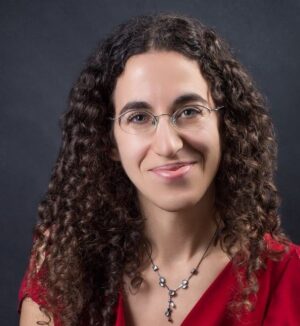
Researcher
Dr Alicia Heys
Dr Alicia Heys is a Lecturer in Modern Slavery at the Wilberforce Institute, part of the University of Hull, where she works on issues around modern slavery and organised crime. Alicia is interested in bridging the gap between academia and practice, and is the Chair of the Humber Modern Slavery Partnership. She led on the project developing interactive workshops for regional partnerships and leads the research strand reviewing the evidence on the legal enforcement of modern slavery.
Alicia is a Modern Slavery PEC Research Fellow, leading the University of Hull's work as part of the PEC Consortium partner-led work strand.
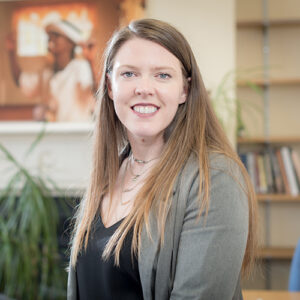
Researcher
Wendy Asquith
Wendy Asquith is a Research Fellow in the Department of Politics at the University of Liverpool. In her recent work, Wendy has collaborated with colleagues in countries across sub-Saharan Africa to deliver the Antislavery Knowledge Network’s online exhibition. She is interested in how creative approaches can enable more equitable and inclusive partnerships and more effective policy interventions in international development.
Wendy enjoys working collaboratively and specializes in interdisciplinary research with interests in histories of humanitarianism, international institutions and postcolonial politics, which grew out of doctoral research on Haitian cultural diplomacy.
Wendy is a Modern Slavery PEC Research Fellow, leading the University of Liverpool's work as part of the PEC Consortium partner-led work strand.

Researcher
Audrey Lumley-Sapanski
Dr Lumley-Sapanski conducts academic and policy-facing research into the impacts of migration governance on the experiences of forced migrants. She is particularly interested in how these processes differentiate populations and contribute to selective exclusion and disenfranchisement. Previously she served as Associate Director at Heartland Alliance Refugee and Immigrant Community Services (Chicago) before receiving PhD in Geography from the Pennsylvania State University.
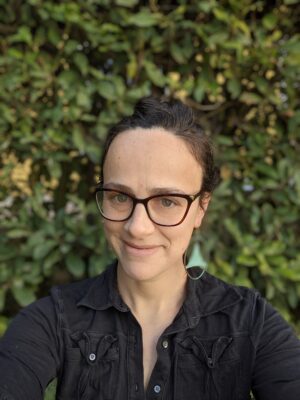
Modern Slavery PEC Fellow
Dr Allen Kiconco
Dr. Allen Kiconco is a Research Fellow at the University of Liverpool's Department of Politics. Her research focuses on Gender and Violence, specifically, the lived experiences of women and girls in conflict and post-conflict societies, as well as some aspects of modern slavery. Such experiences include wartime abduction, captivity, sexual violence, sexual slavery, forced marriage, and forced pregnancy.
Allen enjoys collaborating with people who share her interest in emphasising and centring on lived experiences of exploitation, interests that arose from a number of research projects on gender and violence, modern slavery, and human trafficking. She is particularly interested in discussions about the methodological and ethical procedures that researchers use to gain access to and engage with survivors of exploitation during the knowledge-production process.
Allen's contributions have aided in the development of ethical methodologies, research methods, and safeguarding strategies. She is committed to the advancement of person-centred and holistic research practices, bringing extensive experience and a strong understanding of power dynamics and power imbalances to collaborative research projects.
Allen is currently leading a collaborative research project at the University of Liverpool in collaboration with the Modern Slavery PEC to create an international research network that develops principles for equitable lived-experience-engaged research and policies to address modern slavery.
Allen is also a Modern Slavery PEC Research Fellow (maternity cover), leading the University of Liverpool's work as part of the PEC Consortium partner-led work strand.
Researcher
Sofia Gonzalez de Aguinaga
Dr Sofia Gonzalez is a Research Fellow in Business, ESG & Modern Slavery at the Bingham Centre for the Rule of Law. She leads the Modern Slavery PEC's research work strand on business and modern slavery. She is also developing a relevant research programme on Modern Slavery and businesses' ESG responsibilities for the Bingham Centre's Business Network.
Before joining the Bingham Centre she worked as a consultant for the Walk Free Foundation, looking at the garment and investor sectors reporting under the UK and Australian Modern Slavery Acts. Sofia has also undertaken research on modern slavery looking at FTSE100 companies and the UK construction sector.
Sofia holds a PhD in Business Ethics & Sustainability from King's College London. Her thesis looked at heterogenous business responses to CSR programmes in emerging markets. She also has teaching experience at King's College London leading seminars and delivering lectures in the Business School and the Department of International Development.

Researcher, Modern Slavery PEC Fellow
Dr Maayan Niezna
Dr Maayan Niezna is a Postdoctoral Research Fellow in Modern Slavery and Human Rights at the Bonavero Institute of Human Rights, University of Oxford. Her socio-legal research focuses on trafficking for labour exploitation, the regulation of labour migration, and the rights of non-citizens. Her current project focuses on the different understandings of the relationship between work, exploitation, and agency.
Maayan is a Modern Slavery PEC Research Fellow, leading the University of Oxford’s work as part of the PEC Consortium partner-led work strand.

Researcher
Dr Alicia Heys
Dr Alicia Heys is a Lecturer in Modern Slavery at the Wilberforce Institute, part of the University of Hull, where she works on issues around modern slavery and organised crime. Alicia is interested in bridging the gap between academia and practice, and is the Chair of the Humber Modern Slavery Partnership. She led on the project developing interactive workshops for regional partnerships and leads the research strand reviewing the evidence on the legal enforcement of modern slavery.
Alicia is a Modern Slavery PEC Research Fellow, leading the University of Hull's work as part of the PEC Consortium partner-led work strand.

Researcher
Wendy Asquith
Wendy Asquith is a Research Fellow in the Department of Politics at the University of Liverpool. In her recent work, Wendy has collaborated with colleagues in countries across sub-Saharan Africa to deliver the Antislavery Knowledge Network’s online exhibition. She is interested in how creative approaches can enable more equitable and inclusive partnerships and more effective policy interventions in international development.
Wendy enjoys working collaboratively and specializes in interdisciplinary research with interests in histories of humanitarianism, international institutions and postcolonial politics, which grew out of doctoral research on Haitian cultural diplomacy.
Wendy is a Modern Slavery PEC Research Fellow, leading the University of Liverpool's work as part of the PEC Consortium partner-led work strand.

Researcher
Audrey Lumley-Sapanski
Dr Lumley-Sapanski conducts academic and policy-facing research into the impacts of migration governance on the experiences of forced migrants. She is particularly interested in how these processes differentiate populations and contribute to selective exclusion and disenfranchisement. Previously she served as Associate Director at Heartland Alliance Refugee and Immigrant Community Services (Chicago) before receiving PhD in Geography from the Pennsylvania State University.

Researcher
Dr Samantha Currie
Dr Samantha is a Senior Lecturer at the University of Liverpool School of Law & Social Justice. In her recent work Samantha has worked on a British Academy-funded project on transparency in supply chains in the food and garment industries. She has also conducted a doctrinal study of how victims of trafficking are encountering and engaging with decision-making procedures in the UK.
Samantha’s research interests include the intersection of migration and anti-trafficking law and policies and intra-EU migration. She leads the Modern Slavery PEC project on access to legal advice and representation for survivors of modern slavery in the UK.
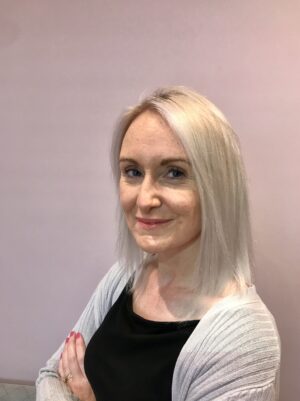
Researcher
Maha Khan
Maha Khan is Financial Sector Lead with the Finance Against Slavery and Trafficking (FAST) initiative, a project based at United Nations University Centre for Policy Research. Hailing from Pakistan, Maha has over 15 years of experience spearheading and managing multi-million dollar research and strategic operations programs in 15 countries across Asia, Africa and the US, focusing on sustainable finance and technology for good. Prior to joining UNU-CPR, Maha led the Center for Financial Inclusion (CFI) at Accion FinTech data initiatives that bridge the information gap between financial service providers, investors, and donors.
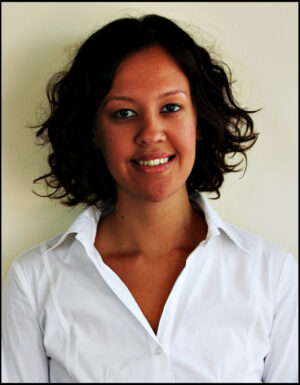
Researcher
Lisa Hsin
Lisa joined the University of Oxford in 2017 to undertake research into the influence and effect of the Modern Slavery Act 2015 under the supervision of Prof. Fernanda Pirie, particularly focusing on transparency in supply chains measures. She is a winner of the Busuttil Domus Prize in 2018. Before that, Lisa was an associate at Freshfields Bruckhaus Deringer in London specialising in commercial dispute resolution and corporate investigations. She is a qualified Barrister and Solicitor in New Zealand, and a Solicitor with Higher Rights in England and Wales. Lisa holds a Master of Laws from the University of California, Berkeley as a recipient of the Spencer Mason Scholarship, and a conjoint Bachelor of Arts and Law (Honours), from the University of Auckland.
At the Modern Slavery PEC, she’s working on the project analysing the effectiveness of the transparency in supply chains measures in the UK Modern Slavery Act.

Senior Management Board member and Researcher
Dr Anjali Mazumder
Anjali Mazumder is the Theme Lead on AI and Justice & Human Rights at the Alan Turing Institute. With over 15 years’ experience of working at the interface of research, policy and practice in the UK, the US, and Canada, her work focuses on developing responsible and inclusive data and AI methods, tools and frameworks for safeguarding people from harm and building resilient institutions and systems. She was appointed to Canada’s National DNA Databank Advisory Committee (2012-2018) and currently serves on the UK Forensic Science Regulator’s fingerprint interpretation subgroup. She has also served the Royal Statistical Society in a variety of ways, most recently appointed to the Statistics & Law Section and the Data Science Section committees. She holds a doctorate in Statistics from the University of Oxford and two masters’ degrees in Measurement and Evaluation, and Statistics from the University of Toronto.
She is leading on the Modern Slavery PEC project on Enabling Trust, Security and Privacy for Policy Innovation in Tackling Modern Slavery.

Researcher
Dr Steve New
Steve New is an Associate Professor in Operations Management at the Saïd Business School, University of Oxford. A leading authority on supply chain management, he is one of the leading scholars investigating the enigma of the Toyota Production System (TPS) and the West’s growing interest in the application of Japanese techniques to manufacturing.
Steve began his career as an engineer, working for Rolls Royce plc while completing a degree in physics at Southampton University. After working in management consultancy for Collinson Grant, he went to Manchester Business School (MBS), where he completed his doctorate on the use of visual interactive modelling for decision support in manufacturing. He taught at the Manchester School of Management, UMIST (now merged with MBS) before joining Saïd Business School in 1996. He is also a Fellow of Hertford College at the University of Oxford.
He co-leads the project analysing the effectiveness of the transparency in supply chains measures in the UK Modern Slavery Act.

Researcher
Dr Florian Ostmann
Dr Florian Ostmann is the Policy Theme Lead within the Public Policy Programme at the Alan Turing Institute. He leads the Modern Slavery PEC project on leveraging data for investor action on modern slavery.
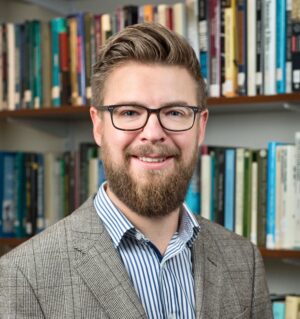
Researcher
Dr Irene Pietropaoli
Dr Irene Pietropaoli is a Research Fellow in Business and Human Rights at the Bingham Centre for the Rule of Law. Prior to joining BIICL, Irene worked on corporate human rights due diligence with international organisations and NGOs in Europe, Latin America and Asia, including at Amnesty International, International Federation for Human Rights, Business & Human Rights Resource Centre and ECPAT International, as well as for the Inter-American Court of Human Rights in Costa Rica. Irene holds a PhD from the school of Law of Middlesex University, she has a first-class honours LL.M in International Human Rights Law from the Irish Centre for Human Rights and first degrees in Law from the University La Sapienza of Rome and from the University of Barcelona.
She works on two Modern Slavery PEC projects looking at data for investors for action on modern slavery risks and the project analysing the effectiveness of the transparency in supply chains measures in the UK Modern Slavery Act.

Senior Management Board member and Researcher
Dr Katarina Schwarz
Dr. Katarina Schwarz is Associate Director (Law and Policy Programme) at the Rights Lab, University of Nottingham, and Assistant Professor of Antislavery Law and Policy. Her research interrogates the law and policy frameworks that operate at the global, regional, and domestic level to determine the elements of effective anti-slavery governance and map trends, successes, and failures in this area. To support evidence-based action in anti-slavery governance, Schwarz is currently developing and analysing the world’s first comprehensive database of the domestic legislation and international obligations of all 193 UN Member States with regard to slavery and related forms of exploitation.
Katarina is working on two Modern Slavery PEC projects, analysing the situation in top source countries for trafficking into the UK and on the impact of Covid-19 and modern slavery in Sudan.

Researcher
Lise Smit
Lise Smit is a Senior Research Fellow in Business and Human Rights at the Bingham Centre for the Rule of Law, conducting research on corporate human rights due diligence and other aspects of implementation of the UN Guiding Principles on Business and Human Rights.
Prior to joining the Institute, Lise was a practicing advocate at the Cape Town Bar in South Africa, worked for the Business and Human Rights Resource Centre, the UN Global Compact Office and was law clerk to the Chief Justice of South Africa, Pius Langa, at the South African Constitutional Court. Lise has an LLM in human rights law from the University of Stellenbosch, South Africa, and a Masters in International Law and Economics from the World Trade Institute in Berne, Switzerland.
She works on two Modern Slavery PEC projects looking at data for investors for action on modern slavery risks and the project analysing the effectiveness of the transparency in supply chains measures in the UK Modern Slavery Act.

Researchers
Dr Katy Ferris
Dr Katy Ferris is an Associate Professor in Business Law and a member of the Law and Policy Programme of the Rights Lab at the University of Nottingham currently involved in the Modern Slavery PEC project on access to legal advice and representation for survivors of modern slavery in the UK.
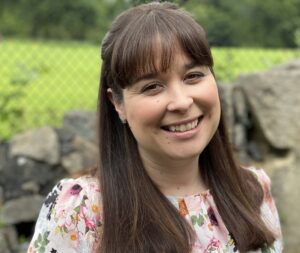
Researcher
Prof Jean Allain
Prof Jean Allain is based at the Faculty of Law, Monash University; and is Professor of Public International Law, Wilberforce Institute, University of Hull, UK. Prof Allain was, from 2015-2019, Special Adviser to Anti-Slavery International. Prof. Allain’s books include "The Slavery Conventions"; (as editor) "Legal Understanding of Slavery"; "Slavery in International Law"; and "The Law and Slavery". He received his doctorate from the Graduate Institute of International Studies (HEI), University of Geneva, and clerked for the first President of the International Criminal Tribunal for the former Yugoslavia Tribunal.
He is working on the Modern Slavery PEC's project analysing the situation in top source countries for trafficking into the UK.
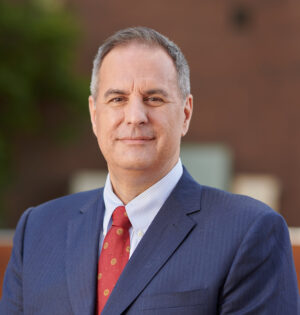
Researcher
Dr Shaher Abdullateef
Shaher is a founder of the Academic Centre for Development and Peace Studies (ACDP) and the director of the Agriculture and Food Security (SAE-AFS) research team, and an active researcher at Cara Syria program. Since 2015, he has been based in Turkey and working on food security and higher education issues. He has professional skills in research, teaching, and coaching of agricultural engineers and farmer groups. He is involved with multidisciplinary research teams from e.g. Kent University, and University of Edinburgh. He has strong partnerships with multi-stakeholder networks including local councils, local communities, local and international NGOs, and academics. Shaher is working on the Modern Slavery PEC project analysing the refugee labour under lockdown.
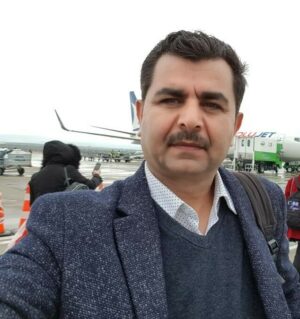
Researcher
Dr Esraa Almashhour
Dr Esraa Almashhour has a PhD in Agricultural Sciences and is a specialist in soil science and plant nutrition. She is a former researcher and head of the Department of Doil and Plant Nutrition at the General Commission for Scientific Agricultural Research, a member of the agricultural research and food security team, and has several scientific studies published in international journals and conferences. She is a member of the Syrian Academic Expertise for Agriculture and Food security (SAE-AFS) and a researcher at the Academic Center for Development and Peace Studies (ACDP). Esraa is working on the Modern Slavery PEC project analysing the refugee labour under lockdown.

Researcher
Dr Saleem Al Nabulsi
Dr Saleem Al Nabulsi is a Jordanian researcher. He has a PhD in Finance and 30 years of experience in rural and agricultural finance and risk management and has published many scientific papers in finance and microfinance. Dr Saleem has three books in Islamic finance, microfinance, and professional ethics and has written articles on food security and rural development. He has prepared and participated in studies on strategic planning, governance, social finance, the Sustainable Development Goals (SDGs), and SMEs. Dr Saleem is currently involved in interdisciplinary research with Syrian and UK academics at the University of Edinburgh. Saleem is working on the Modern Slavery PEC project analysing the refugee labour under lockdown.
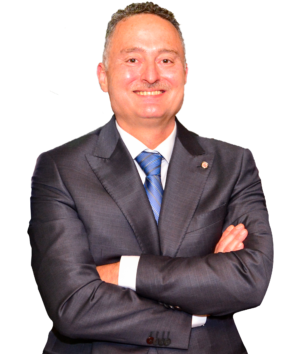
Researcher
Dr Lisa Boden
Dr Lisa Boden is the current President of the European College of Veterinary Public Health (www.ecvph.org) and leads a programme of One Health research in fragile and conflict-affected regions (One Health FIELD Network) at the University of Edinburgh. Her project on Syrian Food Futures focuses on mobilising knowledge between researchers, practitioners and decision-makers so that local cultural and technical experience can be incorporated into socio-economic development and reconstruction programmes to ensure a successful transition away from humanitarian provision of short-term food supplies and agriculture inputs towards long-term contingency planning for food security and adequate nutrition. Lisa is working on the Modern Slavery PEC project analysing the refugee labour under lockdown.
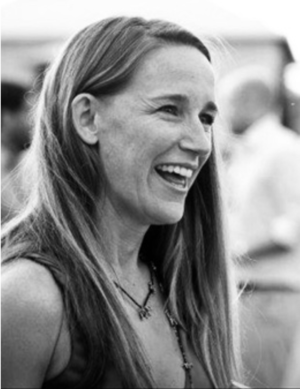
Researcher
Mackenzie Klema
Mackenzie Klema is a Research Assistant at the University of Edinburgh. She first joined the team as part of the From the Field project, analyzing visual ethnographic data to explore the impacts of COVID-19 on the food security of displaced Syrians as part of her MSc dissertation. Mackenzie also works as a fundraiser for The Resolution Project, a US-based nonprofit that supports young social entrepreneurs, and previously worked for The School for Field Studies in Cambodia. Mackenzie has a BA in Environmental Studies and History from Wellesley College, and a MSc in Environment and Development from the University of Edinburgh. Mackenzie is working on the Modern Slavery PEC project analysing the refugee labour under lockdown.

Project resident artist
Sophia Neilson
Sophia Neilson is the Resident Artist for the Refugee Labour under Lockdown project. Sophia Neilson is a Scottish graduate from the University of Edinburgh with a background in Social Anthropology and Sociology, with a keen focus on gender and visual culture. Working as a freelance illustrator, her style of drawing hopes to bridge the gap between the subject and viewer in an effort to visually portray and explore social issues.

Researcher
Dr Ann-Christin Zuntz
Dr Ann-Christin Zuntz is a Lecturer in Anthropology of Development at the University of Edinburgh, and the Programme Director of Edinburgh’s MSc International Development. For her doctoral studies, Ann did fourteen months of ethnographic fieldwork with Syrian refugees in Mafraq, a border town in northern Jordan, in 2016/17. Her PhD thesis explores how current forms of displacement and precarious refugee livelihoods are embedded into more longstanding labour migration schemes and transnational labour markets in the Middle East. For more information on Ann’s publications and her work with the One Health FIELD network, please click here. Ann is working on the Modern Slavery PEC project analysing the refugee labour under lockdown.
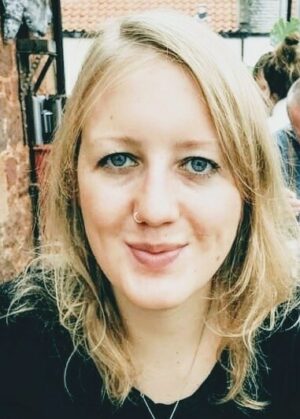
Researcher
Dr Alison Gardner
Dr Alison Gardner leads the Communities and Society research programme at the University of Nottingham’s ‘Rights Lab’, a global research programme which aims to contribute to the UN’s sustainable development goal 8.7 of ending slavery and forced labour by 2030. Her work focusses on place and community-based responses to modern slavery. She holds a Nottingham Research Fellowship, as well as AHRC and ESRC funding for research into Modern Slavery and Human Trafficking. She is co-investigator on a GCRF global engagements network grant to investigate the social determinants underpinning resilience against exploitation. She has career experience and expertise in local government and public policy. Alison is working on two Modern Slavery PEC projects: on local resilience to modern slavery in Senegal and Kenya, and on Romanian migrant seasonal workers in the UK agriculture.

Researcher
Dr Phil Northall
Dr Phil Northall is a Research Fellow in Antislavery Resilient Cities at the Rights Lab, working as part of the Communities and Society Programme. The aim of this programme is to understand and advance local responses to modern slavery, and Phil’s work explores the factors that contribute to resilience when building slavery-free communities. It also includes close collaboration with multi-agency partnerships on testing and evaluating transferable local responses to the structural issues that create vulnerabilities to exploitation and slavery, and Phil provides the secretariat to the Nottingham & Nottinghamshire Modern Slavery Partnership. His research background is in urban processes, local economic development, and community engagement, and his PhD explored the economic sustainability of future cities, specifically assessing the potential for 'sharing economy' platforms to deliver local public services and social value under austerity. Phil is working on the Modern Slavery PEC project looking at local resilience to modern slavery in Kenya and Senegal.

Researcher
Prof Ian Clark
Prof Ian Clark Ian is a member of the Nottingham Business School research leadership team and leads the Centre for Work, Informalisation and Place. He edited the world-leading journal Work, Employment and Society from 2014 to 2019. His current research projects focus on the casualisation and informalisation of work and employment.
Between 2007 and 2010, he was a member of the Treasury Select Committee on Private Equity and subsequently provided expert advice to government, trade unions and employers. More recently he provided formal oral and written evidence to the Department of Work and Pensions inquiry into the collapse of British Home Stores and more recently still has presented evidence to the Taylor Review on Modern Employment Practices and the Environment Audit Committee evaluation of unregulated employment practices at hand car washes.
Ian has published widely on economic performance, American multinationals, the impact of new business models on worker and stakeholder interests and the growth of unregulated informal employment practices. Ian is working on the Modern Slavery PEC project analysing informal workplaces during the Covid-29 pandemic.
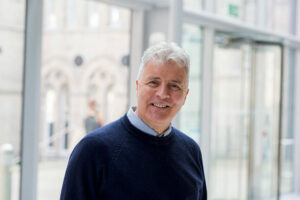
Researcher
Dr James Hunter
Dr James Hunter is co-founder of the Quantitative and Spatial Criminology Research Group, and Centre for Work Informalisation and Place, at Nottingham Trent University. His research examines the role of place in shaping victimisation risk and crime inequalities, and he has extensive experience in developing online policy tools to inform crime reduction strategies and the targeting of resources. For example, he developed the Community Engagement Area Classification (CEAC), which classifies localities based on neighbourhood belonging, fear of crime, satisfaction with policing, and participation/volunteering levels. The CEAC features in the College of Policing’s National Neighbourhood Policing Guidelines and is being used by a significant number of police forces across England to inform their neighbourhood policing strategies. His research on shop theft risk at the neighbourhood level has contributed to advice and guidance to retail stakeholders and seen his appointment to the Home Office’s Business Crime Experts Group. Elsewhere, he has created the predictive neighbourhood level maps that identify the location of problematic informal economy sites, and which are being used by the Office of the Director of Labour Market Enforcement, Gangmasters and Labour Abuse Authority, HMRC and several regional organised crime units to tackle wage theft, modern slavery and human trafficking.
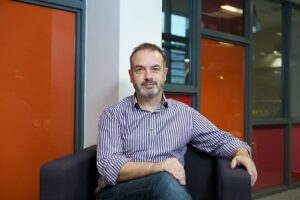
Researcher
Rich Pickford
Rich Pickford runs NTUs place-based think tank Nottingham Civic Exchange where he manages programmes of work, designs events and establishes networks with researchers, communities, businesses and residents. Rich has a background in outdoor education and youth work and has an MA in Modern British History.
Prior to working with NTU worked for the Royal Society for the Encouragement of Arts, Manufactures and Commerce (RSA), supporting their initiatives throughout Wales and the Midlands.
Within this project, he is focused on the policy and practical implications of the research working with partners and stakeholders to develop routes to positive change in the informal work sectors. Rich is working on the Modern Slavery PEC project analysing informal workplaces during the Covid-29 pandemic.

Researcher
Jack Barratt
Jack Barratt is a Research Fellow with the WIP Group, and his area of work is locating and classifying sites of informal work places to contribute to a wider understating of their distribution and practises.
He initially joined the WIP team as a Research Assistant in 2019, contributing to earlier mapping of parts of England and Wales for hand car washes and gathering information on nail bars in the East Midlands.
Jack holds a BA in Politics from the University of Nottingham and an MA in Criminology from Nottingham Trent University. His master’s dissertation evaluated the spatial impact that hand car washes have on localised rates of crime. Jack is working on the Modern Slavery PEC project analysing informal workplaces during the Covid-29 pandemic.
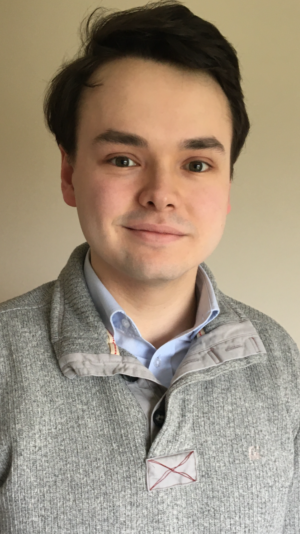
Researcher
Nidhi Sharma
Nidhi Sharma is a Research Fellow at the Nottingham Business School. She graduated in History from the University of Liverpool and holds an MA in Social Science Research (Sociology) from the University of Nottingham. Her research interests are in informal work and the role of policy and regulation in shaping business practices. Nidhi is working on the Modern Slavery PEC project .analysing informal workplaces during the Covid-19 pandemic.

Researcher
Dr Mark Sumner
Mark Sumner is a lecturer in Sustainability, Fashion and Retail at the University of Leeds with specialist knowledge of the clothing industry. His current research topics include the sustainability of textile supply chains, circularity, microplastics, modern slavery and consumer behaviour.
His expertise in sustainability and clothing is built upon over 15 years of experience of working for the UK’s largest clothing retailer, experience that is further enhanced through a range of consultancy roles with brands, retailers and industry bodies.
Mark contributed to the House of Commons Environmental Audit Committee report on Fast Fashion and has also engaged in a number of industry projects with fashion brands and contributes to a number of industrial advisory committees. Mark is working on the Modern Slavery PEC project analysing the impact of Covid-19 on the Indian garment industry.
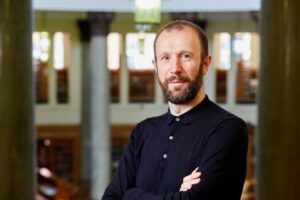
Researchers
Dr Matt Davies
Dr Matthew Davis is an Associate Professor at Leeds University Business School, a Chartered Psychologist and an Associate Fellow of the British Psychological Society. His research centres on how people interact with their environments and how businesses engage in CSR, particularly to address sustainability and modern slavery. Matthew has worked on a range of applied research projects with corporate partners, with a socio-technical approach and methods underpinning much of his work. Matthew teaches Corporate Social Responsibility and promotes responsible management education. Matt is working on the Modern Slavery PEC project analysing the impact of Covid-19 on the Indian garment industry.

Researcher
Dr Hinrich Voss
Dr Hinrich Voss is Professor of International Business at HEC Montreal, Canada. He is researching how multinational enterprises and institutions interact. Hinrich's work explores these interactions with respect to the internationalisation of Chinese firms and to how businesses respond to and engage with legislation that attempts to reach across their global value chains. Within the latter area of interest he was the principal investigator of the British Academy/DifD funded project "Pulling a thread: unravelling the trail of modern slavery in the fashion and textile industry". This interdisciplinary and UK-India collaboration investigated how fashion brands in the UK had responded to the UK Modern Slavery Act and worked with their Indian value chain to address modern slavery. Hinrich is working on the Modern Slavery PEC project analysing the impact of Covid-19 on the Indian garment industry.

Researcher
Dr Divya Singhal
Dr. Divya Singhal is Professor in General Management at Goa institute of Management (GIM), India. She currently leads Centre for Social Sensitivity and Action to promote social responsibility within and beyond GIM to achieve the goals of Agenda 2030. She has experience of approx. 22 years with 17 years of full-time academic experience. Her research interests are in the area of sustainable development, responsibility and education. She was part of International project “Pulling a thread: unravelling the trail of modern slavery in the fashion and textile industry" as co-investigator that received grants from British Academy/DFID with University of Leeds, UK. She is part of various working groups of United Nations Principles for Responsible Management Education & focal point for UN Sustainable Development Solutions Network at GIM. Divya is working on the Modern Slavery PEC project analysing the impact of Covid-19 on the Indian garment industry.

Researchers
Suganya Guru
Suganya is currently pursuing her PhD at Anna University, Chennai, India on the topic “Supply Chain Effectiveness of Textiles Cluster in South India”. She has completed her Master’s in Business Administration from PSG Institute of Management, Coimbatore, India. Suganya has worked as a Research Assistant at Goa Institute of Management (GIM) for a collaborative project with University of Leeds on “Tackling Slavery, Human Trafficking and Child Labor in Modern Business” funded by British Academy and DFID. Currently she is working as Research Assistant for a collaborative project with University of Leeds on “Impact of COVID-19 on management to eradicate modern slavery from global supply chains: A case study of Indian fashion supply chains” funded by AHRC, UK. Her area of interests are supply chain management and consumer behaviour. Suganya is working on the Modern Slavery PEC project analysing the impact of Covid-19 on the Indian garment industry.

Researcher
Swati Singh
Swati Singh has been awarded with Ph.D Degree which titled, “The New Middle Class and the Civic Activism: A Study of Advanced Locality Managements (ALMs) in Mumbai” in School of Social Work, TISS, Mumbai in 2020. She has worked in various projects (ICSSR, TISS with University of East London and others projects) and has worked as Teaching Associate in TISS and she designed and taught an online course at University of Tampere, Finland. She has publications in peer-reviewed social work journals. Her area of interest is Homelessness, Middle Class Activism and Urban Space, New Middle Class Identity and Consumerism, Street Children, Urban Sociology, Informal labour, Migration and Qualitative Research Methodology. Swati is working on the Modern Slavery PEC project analysing the impact of Covid-19 on the Indian garment industry.

Researcher
Rishi Sher Singh
Rishi is a Business & Human Rights (B&HR) specialist with an extensive body of work in supply chain management, implementation of sustainability projects, and manufacturing. For over two decades, Rishi has been working on developing innovative business solutions, with a strong commitment towards respecting and promoting human rights in the value chains.
Rishi has delivered four Human Rights Impact Assessments (HRIA) in India (pharma, tech, engineering & agri sectors) and continues to support our Human Rights Due Diligence initiatives for the UK and EU based companies.
Rishi holds a degree in Mechanical Engineering and an MBA in International Business from University of Birmingham (UK). He is also trained in transformative methods by Landmark Education and is a certified project manager from Deloitte. Rishi is working on the Modern Slavery PEC project analysing the impact of Covid-19 on the Indian garment industry.

Researcher
Naomi Booth Wade
Naomi has an educational background in Psychology and Organisational Psychology. She is an aspiring business psychologist with a demonstrated history of working in the research and consultancy fields.
Naomi has worked in numerous research projects, from environmental sustainability to health and wellbeing, and has first-hand experience of conducting systematic literature reviews, thematic analysis, and quantitative data entry, coding and analysis.
She also has experience in writing whitepapers and online articles on topics related to business psychology and has been involved in numerous projects aiming to transform organisations, through data collection and active implementation. Naomi is working on the Modern Slavery PEC project analysing the impact of Covid-19 on the Indian garment industry.

Researcher
Fergus Dowling
Fergus Dowling is a recent MSc Textiles graduate from the University of Leeds, with a background undergraduate degree in printed textiles and surface pattern design. Fergus completed his master’s degree to learn more about the construction of textiles and how to improve their social, environmental, and sustainable impact. Resulting in a master’s dissertation researching into ways of producing textile fibres out of orange peel waste. His current role as a research assistant on ‘The Unravelling of a Thread’ project, is focused on examining the impact Covid-19 has had on UK stakeholder’s management of modern slavery within the global textiles supply chain. Fergus is working on the Modern Slavery PEC project analysing the impact of Covid-19 on the Indian garment industry.

Researcher
Prof Genevieve LeBaron
Genevieve LeBaron is Professor of Politics within the University of Sheffield's Department of Politics and International Relations. Since 2008, she has been researching the business of forced labour in global supply chains and the politics and effectiveness of corporate social responsibility and legislation solutions to combat it. More information about her work is available on her website. Genevieve is working on the Modern Slavery PEC project analysing the impact of Covid-19 on the global garment supply chains.

Researcher
Penelope Kyritsis
Penelope Kyritsis is Director of Strategic Research at the Worker Rights Consortium (WRC), an independent labour rights monitoring organization that focuses on the garment sector. Her primary research areas currently include garment workers’ vulnerability to abuse and destitution during the Covid-19 pandemic, as well as the role of corporations in the Uyghur forced labour crisis. Prior to joining the WRC, Kyrtisis served as Outreach and Education coordinator at the Worker-Driven Social Responsibility Network and Assistant Managing Editor at OpenDemocracy's Beyond Trafficking and Slavery. She has worked on a number of research projects, including the Global Business of Forced Labour and Policing Modern Day Slavery in Rhode Island. She holds a BA in Postcolonial Legal Studies from Brown University, where she wrote her thesis on the humanitarian and legal interventions and discourses around sex trafficking and migration. Penelope is working on the Modern Slavery PEC project analysing the impact of Covid-19 on the global garment supply chains.
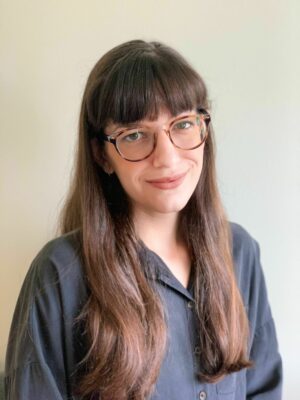
Researcher
Prof Alex Hughes
Prof Alex Hughes is a social scientist working in the discipline of Geography for the past 25 years, with research interests in global supply chains, corporate responsibility, and sustainable production and consumption. She has published widely on these themes, covering textiles, food, and horticulture. She has been Principal Investigator on five ESRC projects and an AHRC GCRF research partnership, as well as leading and collaborating on research funded by the Nuffield Foundation, the British Academy, the Newton Fund, and the Leverhulme Trust. Projects have involved field research in the UK, USA, South Africa, Brazil, China, Pakistan, and Malaysia. Alex is working on the Modern Slavery PEC project on preventing modern slavery in Malaysian medical gloves factories.

Researcher
Mahmood Bhutta
Mahmood is a Consultant at Brighton & Sussex University Hospitals. In 2006 Mahmood founded the Medical Fair and Ethical Trade Group (hosted at the British Medical Association) in response to labour rights abuses in the manufacture of medical products, including surgical instruments, gloves and textiles. He works with the NHS, and international procurement organisations and NGOs, to foster better working conditions in healthcare supply chains. Mahmood is working on the Modern Slavery PEC project on preventing modern slavery in Malaysian medical gloves factories.

Researcher
Dr Mei Trueba
Mei Trueba is a Lecturer in International Development and Global Health at the Brighton and Sussex Medical School (BSMS) and the University of Sussex. Much of her work focuses on the intersection between international development, labour relations and workers’ health and wellbeing, and on improving the working conditions of workers at the end of supply chains through evidence-informed action throughout the supply chain. Prior to joining BSMS Mei worked for the Spanish Agency for International Cooperation and Development (AECID) on an action-research project aimed at improving the occupational health and safety of Bolivian cooperative miners, with the Universidad de Chile to promote the labour rights of street children, and with the Inter-American Development Bank among other.
Mei holds a PhD in Development studies from the Institute of Development Studies (IDS), and has a master in Occupational Health and Safety, an MSc in Comparative and Cross-Cultural Research from the University of Sussex, and first degrees in Socio-Cultural Anthropology and in Public Health. She works on one Modern Slavery PEC project focusing on preventing modern slavery in Malaysian medical gloves factories.
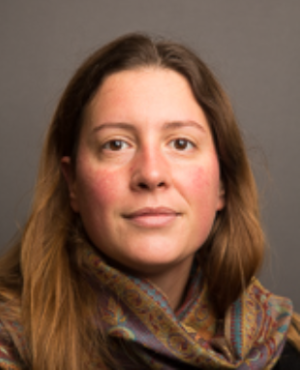
Researcher
Ben Bostock
Ben Bostock joined Impactt in March 2019 as a Senior Consultant, and specialises in social audit and forced labour investigations. Recently, he has focused specifically on forced labour investigations and recruitment fee repayments in the rubber gloves industry in Malaysia, and in worker welfare standards in the construction sector in the Middle East. Prior to this, he worked for 5 years as a Consultant at PwC within their Sustainability and Climate Change team – working primarily in Human Rights and Modern Slavery for clients in the retail sector. Ben is working on the Modern Slavery PEC project on preventing modern slavery in Malaysian medical gloves factories.
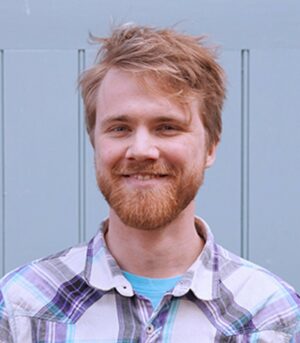
Researcher
Dr James Alan Brown
Dr James Alan Brown is a Research Associate in the School of Geography, Politics and Sociology at Newcastle University. Previously, he has conducted research on labour rights and worked for migration civil society organisations in Southeast Asia. He has also taught international development and geography at SOAS and Queen Mary University of London. He holds a PhD in Development Studies from the University of London and his research interests focus on the intersection of labour and global supply chains. James is working on the Modern Slavery PEC project on preventing modern slavery in Malaysian medical gloves factories.

Researcher
Rosey Hurst
Rosey Hurst founded Impactt in 1997 to make what works for workers work for business. She founded Sedex and launched the Benefits for Business and Workers Programme which links improving productivity with a better deal for workers. She is passionate about re-humanising the workplace and has pioneered large-scale initiatives to remedy modern slavery. Rosey serves on the Ecovadis Technical Committee and is a member of the Responsible Investment Advisory Council at BMO-GAM. Rosey’s passion for the topic can be seen in her TEDx talk. Rosey is working on the Modern Slavery PEC project on preventing modern slavery in Malaysian medical gloves factories.
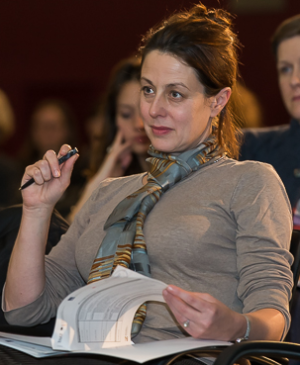
Researcher
Prof Tomoya Obokata
Prof Tomoya Obokata is a Japanese scholar of international law and human rights, specialising in transnational organised crime, human trafficking and modern slavery. He was appointed as the UN Special Rapporteur on contemporary forms of slavery, including its causes and consequences in March 2020.
He currently serves as Professor of International Law and Human Rights at Keele University, and previously taught at Queen's University Belfast and Dundee University (all in the United Kingdom Great Britain and Northern Ireland). He has extensive experience of working on the issues of transnational crime, human trafficking and modern slavery with relevant stakeholders, including the UK Parliamentary Joint Committee on Human Rights, the Northern Ireland Assembly All Party Group on Human Trafficking, the United Nations Office of Drugs and Crime, the International Organisation for Migration and the European Union. Mr. Obokata also worked as a legal clerk for the United Nations High Commissioner for Refugees in Japan. He has published widely on the topics mentioned. Tom is working on the Modern Slavery PEC project working to identify best practice to follow during future crises such as the current Covid-19 pandemic.
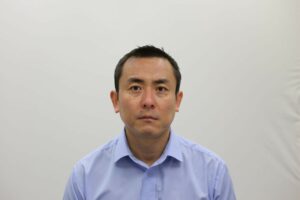
Researcher
Prof Muhammad Azizul Islam
Prof Muhammad Azizul Islam (Aziz) is Chair in Accountancy and Professor in Sustainability Accounting & Transparency at the University of Aberdeen Business School. Aziz is one of the world’s leading sustainability accounting researchers investigating some of the specific issues, including human rights disclosures, corporate transparency on modern slavery, SDGs & social audit and corporate anti-bribery measures. Over the past 16 years, Aziz has been investigating the use of social audits and CSR disclosures in relation to the lives of those
who work in garment factories in Bangladesh that supply goods to big multinational companies based in North America, Europe and Australia. His research collaborations are currently underway with international institutions and researchers based in Australia, Bangladesh, Canada, Egypt, New Zealand, Nigeria, Portugal, and the USA. He is actively engaged in doctoral and postdoctoral supervisions. Aziz is working on the Modern Slavery PEC project working on preventing exploitation of women in the Bangladesh garment industry.
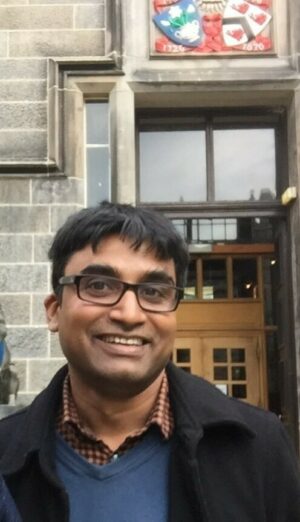
Researcher
Dr Shamima Haque
Dr Shamima Haque is a senior lecturer of Accounting at the Business School of University of Aberdeen, UK. Previously, she held position as a lecturer in Accountancy at Queensland University of Technology, Brisbane, Australia. Her main research interests are in corporate social and environmental accounting and reporting practices, with a particular focus on carbon accounting, human rights, labour rights, and gender. She is the research lead of the School’s Athena SWAN committee that recognises the advancement and promotion of careers and personal development of women in STEMM. Shamima is working on the Modern Slavery PEC project working on preventing exploitation of women in Bangladesh garment industry.

Researcher
Prof Pamela Abbott
Prof Pamela Abbott is Director of the Centre for Global Development and professor in the School of Education at the University of Aberdeen, UK. Her research interests are in gender, socioeconomic and political transformations, and wellbeing and quality of life. She has more than 20 years’ experience of leading research in low and middle income countries including the former Soviet Union, North Africa and the Middle East, and East Africa. Her most recent book Democratisation Against Democracy was published by Palgrave MacMillan in 2020. She was elected a fellow of the Academy of Social Science in 2001. Pamela is working on the Modern Slavery PEC project working on preventing exploitation of women in the Bangladesh garment industry.
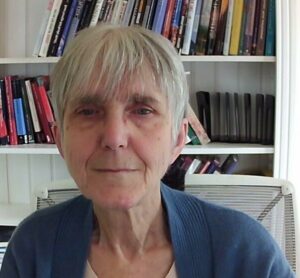
Researcher
Fiona Gooch
Fiona Gooch is a Senior Policy Adviser at Traidcraft Exchange. She works to improve the impact UK-linked businesses have on vulnerable farmers, workers and communities in the global south. This includes work on supply chains, company law, competition policy, legal remedies, social reporting, business and human rights and investment. She has been a director of the Ethical Trading Initiative, Corporate Responsibility coalition, Responsible Purchasing Initiative, and member of EU Better Functioning Food Supply Chain Forum. She has worked in Bangladesh, Belgium, Cambodia, China, Cote d’Ivoire, India, Japan, Kenya, Malawi, Tanzania, and Vietnam, including improving garment, cotton, and agricultural supply chains. Fiona is working on the Modern Slavery PEC project working on preventing exploitation of women in the Bangladesh garment industry.
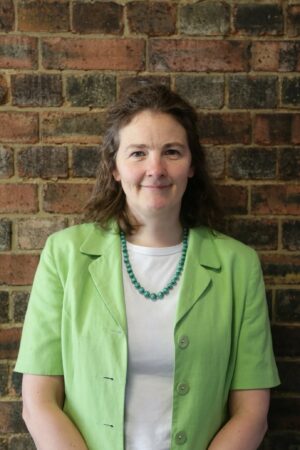
Researcher
Prof Salma Akhter
Salma Akhter is a Professor in the Department of Sociology, University of Dhaka. As a Commonwealth Scholar, Salma has an MPhil from the University of Cambridge. As a sociologist and gender specialist, she has extensive experience in consultancy for UNDP, UNESCO, UNICEF, UNCDF, World Bank, ILO, WFP, SDC, Royal Norwegian Embassy, DANIDA, DFID, ITDG. Her areas of research interest and expertise include Gender, Education, Micro-credit, Poverty, Health, Environment, Local Governance, Indigenous community issues in Bangladesh. Salma is working on the Modern Slavery PEC project working on preventing exploitation of women in the Bangladesh garment industry.

Researcher
Dr. Bruce Pinnington
Dr. Bruce Pinnington is a Lecturer in the Operations and Supply Chain Management group at the University of Liverpool Management School (ULMS). Building on career experience in business to business relationship management, Bruce’s research interests are in collaboration and contemporary social challenges in supply chain management especially modern slavery and social value. Recently, Bruce has worked closely with the Crown Commercial Service and the Home Office Modern Slavery Unit on several projects examining firms’ responses to the Modern Slavery Act (2015), especially with respect to supply chain management. Bruce is working on the Modern Slavery PEC project working on challenges posed by Covid-19 in supply chain management.

Researcher
Dr. Jo Meehan
Dr. Jo Meehan is a Senior Lecturer in Strategic Procurement at the University of Liverpool Management School (ULMS). Jo’s research centres on responsible procurement, modern slavery, corporate power, and social value. She is engaged with the Liverpool Combined Authority Fair Employment Charter reference group and sits on the working group for the University of Liverpool’s Sustainable Development Responsible Consumption and Production. She is a regular public speaker in the procurement field committed to challenging business responsibilities and delivering impactful research. Jo is an Associate Editor for the Journal of Purchasing and Supply Management and champions the journal’s ’business-not-as-usual’ research. Jo is working on the Modern Slavery PEC project working on challenges posed by Covid-19 in supply chain management.
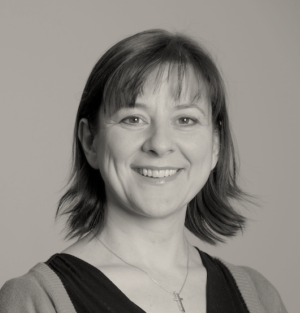
Researcher
Prof Alex Trautrims
Alex Trautrims is an Associate Professor in Supply Chain and Operations Management at Nottingham University Business School and leads the Business and Economies Programme at the University of Nottingham’s Rights Lab. He enjoys working closely with practitioners on developing effective organisational responses against modern slavery in supply chains and business operations. His research has attracted support from a range of funders and contributes to leading supply chain management journals, policy documents, industry guidelines, and consultations and inquiries. Alex is working on two Modern Slavery PEC projects, on challenges posed by Covid-19 in supply chain management and on preventing modern slavery in Malaysian medical gloves factories.
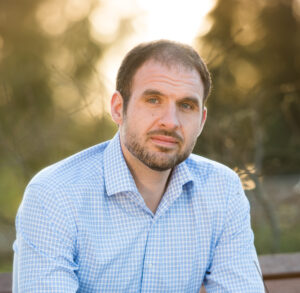
Researchers
Dr. Oana Burcu
Dr. Oana Burcu works as part of the Rights Lab's Communities and Society Programme, and its Law and Policy Programme. Her focus is the patterns, causes and consequences of human trafficking, with a particular interest in the vulnerability of migrants to trafficking and labour exploitation. Some of her current projects with the Rights Lab include work to analyse trafficking for commercial sexual exploitation, and understand patterns of trafficking and labour exploitation of Romanian workers in the UK and Europe. Her expertise also includes diaspora communities in the UK, nationalism and security. Her research background is in area studies, with a focus on China and East Asia. Oana is working on the Modern Slavery PEC project analysing the impact of Covid-19 pandemic on Romanian seasonal worker in the UK agriculture.

Researcher
Dr Ana Valverde-Cano
Dr Ana Valverde-Cano is a Research Fellow at Rights Lab’s Law and Policy Programme. She works for the development of new frameworks for antislavery governance, particularly within the Spanish-speaking world and Latin America, with a focus on criminal legislation and legal institutions. She is co-founder of the Latin-American Network of Researchers on Contemporary Forms of Slavery, and she has worked alongside NGOs to provide first legal assistance to newly arrived migrants and asylum seekers. Ana is working on the Modern Slavery PEC project analysing the ipact of Covid-19 and modern slavery in Sudan.

Researcher
Dr Mohammed Abdelsalam Babiker
Dr. Mohammed Abdelsalam Babiker is the UN Special Rapporteur on Eritrea and Associate Professor of International Law, Dean of the School of Law at the University of Khartoum, and founding Director of its Human Rights Centre. He has published extensively in the areas of human rights, international criminal law, international humanitarian law and migration law in the United Kingdom, France, Italy, USA and South Africa.
Dr. Babiker was appointed by the United Nations Secretary-General as Humanitarian expert with the Somalia and Eritrea Monitoring Group (SEMG) in 2017 and with the Panel of Experts (POE) on Somaliain 2018. Dr. Babiker also worked as a Legal Advisor and a Human Rights Officer with UN and AU peacekeeping operations and a number of UN agencies. Mohammed is working on the Modern Slavery PEC project analysing the impact of Covid-19 and modern slavery in Sudan.

Researcher
Emily Death
Emily Death is the Director of Global Partners Governance. She has been with the organisation since 2019. Emily leads the organisational management of GPG as well as its diverse portfolio of international project work and GPG’s communications. She is at the heart of GPG’s strategic vision for development. Emily has a strong political background, having previously worked in political roles in London and Brussels, most notably as Head of Events & Fundraising for the ALDE Party (the European Liberal & Democratic Party), for nearly a decade. Emily is working on the Modern Slavery PEC project analysing the impact of Covid-19 and modern slavery in Sudan.

Researcher
Maria Peiro Mir
Maria Peiro Mir is a Head of Policy and Partnerships at Global Partners Governance. She is part of the strategic senior management team, leading the organisation’s work on human trafficking and modern slavery. Maria is responsible for managing project staff and GPG’s communication team.
Having joined GPG in 2015, she has led several projects including working with parliamentary caucuses in the Fijian parliament, supporting the Honduran Congress in its Post Legislative Scrutiny (PLS) of Human Trafficking Legislation, working with Tanzanian Members of Parliament and their constituency offices and currently managing GPG’s work with the National Committee to Counter Trafficking in the Ministry of Justice in Sudan. Maria is working on the Modern Slavery PEC project analysing the impact of Covid-19 and modern slavery in Sudan.

Researcher
Abdal-Rahman Eltayeb
Abdal-Rahman Eltayeb is a Project Assistant at Global Partners Governance working on the Sudan Project. He provides assistance to the team through liaising with stakeholders and providing logistical support. In addition, he also provides research and Arabic translation support on a day to day basis. Prior to joining GPG, Abdal-Rahman had volunteered as an Administrative Assistant at Breaking Barriers—providing support for asylum seekers by helping them attain stable, fulfilling employment in London. He also took up traineeship at Harding Mitchell Solicitors and assisted with immigration and employment law matters. As well as administrative and legal work, Abdal-Rahman also worked as a MENA Researcher in the public relations company, Cision. He is working on the Modern Slavery PEC project analysing the impact of Covid-19 and modern slavery in Sudan.
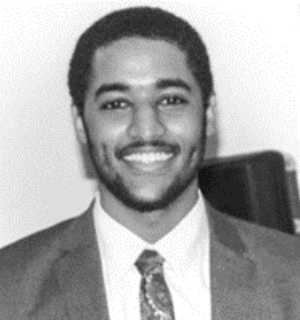
Researcher
Maddy Crowther
Maddy Crowther is a Co-Executive Director of Waging Peace. She brings with her expertise in direct casework and support provided to with Sudanese asylum-seekers, refugees and the wider diaspora. She has been an expert country witness in UK cases, up to the level of Country Guidance at the Upper Tribunal, and is regularly consulted by home and foreign ministers across the EU and in the region to form country policy and information. She coordinates the UK/European-Sudan advocacy working group bringing together 50+ organisations working on or in Sudan to share information and to prepare joint advocacy where appropriate. She takes a particular research interest in the EU-Horn of Africa Migration Route Initiative, or ‘Khartoum Process’. Maddy is working on the Modern Slavery PEC project analysing the impact of Covid-19 and modern slavery in Sudan.

Researchers
Sonja Miley
Sonja Miley is a Co-Executive Director of Waging Peace. She has a degree in Psychology from San Francisco State University. She previously worked in international cultural exchange before joining the civil society sector.
Sonja has worked over 25 years in multicultural environments and has travelled extensively which supports her inclusive and holistic approach to engagement. Also a certified Brennan Healing Science Practitioner (BHSP), Sonja's ongoing training was focused in psychological sciences and facilitation of groups. She has also worked with several non-profit organisations in the UK and abroad with inner-city youth and other marginalised groups. Sonja is working on the Modern Slavery PEC project analysing the impact of Covid-19 and modern slavery in Sudan.
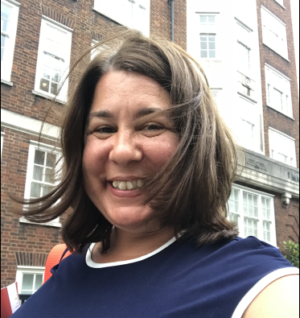
Researcher
Dr Perla Polanco Leal
Dr Perla Polanco Leal is a Postdoctoral Research Associate at the Department of Politics and International Relations at The University of Sheffield. Perla’s research focuses on forced labour in the global supply chains, including on the Modern Slavery PEC's project on analysing the impact of Covid-19 on the global garment supply chains and the Humanity United funded project on restructuring business models and supply chains, a collaborative research project between the University of Sheffield, Yale University and Stanford University.
Perla completed her PhD at the University in Sheffield. Her thesis explored how the political and economic drivers behind extractive industries in Mexico perpetuate colonial ideas and inhibits the governments’ ability to pursue ambitious climate change policy.
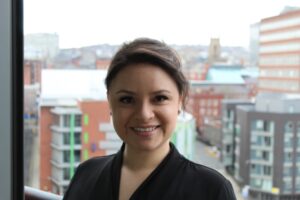
Researcher
Deirdre Shaw
Deirdre Shaw is Professor Marketing and Consumer Research at Adam Smith Business School, University of Glasgow. Deirdre has researched and taught in the area of consumption ethics throughout her career, publishing on the subject in a range of international journals, including Psychology and Marketing, Journal of Business Ethics, Marketing Theory, European Journal of Marketing, Business History, British Journal of Management, Work, Employment and Society, Journal of Marketing Management, Sustainable Development, contributing to books and non-academic publications, giving invited talks and supervising PhD researchers in this area. Deirdre is co-section editor of the Consumer Ethics section of Journal of Business Ethics. Her current work focuses on consumer perspectives of modern slavery as well as working in the areas of sustainable clothing and equality and sustainability. Deirdre works on the Modern Slavery PEC project on consumer behaviour in relation to modern slavery.

Researcher
Michal Carrington
Michal Carrington is a Senior Lecturer in Marketing at the University of Melbourne and is an expert in consumer culture and consumer/marketing ethics. Dr Carrington is currently part of an international research team spanning the UK, US and Australia researching the consumption of products of modern slavery, including the Modern Slavery PEC project on consumer behaviour in relation to modern slavery.
Michal publishes consumer ethics research widely in top-tier international marketing and business journals, as well as media outlets such as newspapers and The Conversation, and has published books and book chapters in this topic area. Michal is co-section editor of the Journal of Business Ethics (Consumer Ethics). She holds a BEng (Hons) in Mechanical Engineering from the University of Melbourne and a PhD in Marketing also from the University of Melbourne. Prior to entering academia, Michal spent almost a decade working for Unilever in Australia and the UK.

Researcher
Andreas Chatzidakis
Andreas Chatzidakis is a Professor of Marketing and Consumer Culture at Royal Holloway University of London. His research focuses on the broader intersections of consumption with ethics and politics, including themes such as consumer-oriented activism in crisis-hit Athens, the role of care and relationality in everyday consumption, geographical and psychoanalytic approaches to consumption. It has been published in numerous journals such as Journal of Consumer Research, Journal of Consumer Culture, Journal of Business Ethics, Environment and Planning D, and British Journal of Management; as well as in books such as Contemporary Issues in Marketing and Consumer Behaviour (with P Maclaran and E Parsons) and Consumer Ethics: Interdisciplinary Perspectives (with D Shaw and M Carrington). He is also a member of the Care Collective, author of the Care Manifesto (out with Verso, 2020). Andreas works on the Modern Slavery PEC project on consumer behaviour in relation to modern slavery.
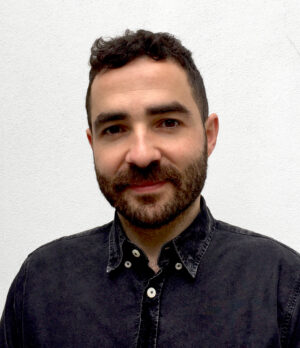
Researcher
Dr Minh Dang
Minh Dang, MSW, PhD is co-founder and Executive Director of Survivor Alliance, an international non-governmental organization (NGO) focused on building sustainable communities with by, of, and for survivors of slavery and human trafficking. She is also a Research Fellow and Lead in Survivor Scholarship and Wellbeing at University of Nottingham’s Rights Lab. Minh Dang recently earned her PhD in Politics and Contemporary History at the University of Nottingham School of Politics and International Relations, studying the wellbeing of survivors of slavery and human trafficking. For her scholar-activism, she earned the Vice Chancellor’s Medal in 2020. Minh’s public service career includes serving as a Presidential Appointee to the first ever U.S. Advisory Council on Human Trafficking and an Advisory Board member for AnnieCannons, an organization training survivors of human trafficking to become software developers. From 2005 to 2011, she worked at the UC Berkeley Public Service Center, coordinating student leadership and service-learning programs, including the Bonner Leaders AmeriCorps Program. She has served on the non-profit Boards of the Human Trafficking Legal Center, Youth Engagement Advocacy and Housing (YEAH!) and The Morris Center for Healing from Child Abuse. In 2013, she was one of fifteen Asian Pacific Islander Women named a Champion of Change by President Barack Obama for her work to empower survivors of slavery and human trafficking. Although Minh is now in the UK, she was born and bred in California, USA, and a two-time alum of the University of California, Berkeley. She earned a Bachelors in Sociology and Masters in Social Welfare, with an emphasis on Community Mental Health.

Researcher
Laura Durán
Laura Durán is Senior Policy and Research Officer at Every Child Protected Against Trafficking (ECPAT UK). Laura has extensive experience working against the exploitation and trafficking of children, leading ECPAT UK’s research and policy work on trafficked children’s rights. Laura represents ECPAT UK in various government and civil society working groups and forums, contributing expertise to enhance the UK’s response to child trafficking. She also leads our work on a number of international projects working to safeguard children in migration from exploitation. Prior to this, Laura managed ECPAT UK’s capacity building program and trained thousands of frontline professionals on identifying, responding to and safeguarding potential victims of child trafficking. She has worked directly supporting unaccompanied children in the UK and has over 10 years’ experience as an educator in public programs.

Researcher
Patricia Durr
Patricia Durr is Chief Executive Officer at Every Child Protected Against Trafficking (ECPAT UK). Patricia has over 25 years’ public service in the social justice, safeguarding and child rights sectors, leading high profile rights-based campaigning, advocacy and policy work. Patricia has particular expertise in trauma-informed and rights based approaches to social change, most recently at the charity One Small Thing, driving change in the justice system. Prior to One Small Thing, Patricia worked on the investigation into the Anglican Church by the Independent Inquiry into Child Sexual Abuse. She has also managed safeguarding boards for the London borough of Haringey and has led external affairs for equality and diversity charity METRO and The Children’s Society where she led a number of coalitions working to secure legislative change including The Children Act 2004.

Researcher
Dr Patricia Hynes
Dr Patricia Hynes is a Reader in Forced Migration at the University of Bedfordshire. She published internationally including for the UNHCR, UNICEF, IOM, Routledge, Policy Press and in high impact academic journals such as the Journal of Refugee Studies, Sociology and the International Journal of Human Rights. She was recently the Principal Investigator for a four-country research study looking at ‘vulnerability’ to human trafficking from Albania, Vietnam and Nigeria and support needs in the UK, carried out in partnership with the International Organization for Migration (IOM). Prior to this she acted as a Principal Investigator for the evaluation of Independent Child Trafficking Advocates funded by the UK Home Office.
Dr Hynes has a practitioner background with refugee populations in Southeast Asia, having worked with Vietnamese, Khmer and Lao refugees being resettled to third countries and Burmese refugees living in protracted refugee situations along the Thailand-Burma border and urban centres in India. She now utilises this background in her research and teaching, conducting applied research on topics related to her research interests of forced migration, asylum policy, refuge, human trafficking and human rights. A key theme running through her published works relates to the issue of trust and/or mistrust in humanitarian contexts.

Advisory Group Member
Tatiana Gren-Jardan
Tatiana is the Head of the Modern Slavery Policy Unit. Tatiana has an extensive experience working in the field of tackling modern slavery and human trafficking for over 15 years working for international, non-governmental and statutory organisations. In her previous role as the Director of Strategy for the Independent Anti-Slavery Commissioner, Tatiana had a responsibility for overseeing the development and implementation of the Commissioner’s strategic priorities working closely with the team of policy leads. She joined the Commissioner’s team as Victim Support and Partnership Adviser - her main area of expertise.
Previously, Tatiana worked for the Human Trafficking Foundation in a variety of roles starting as Anti-Slavery Day coordinator in May 2012 and taking on the Director’s role in February 2015.

Researcher
Dr Carole Murphy
Carole Murphy is Associate Professor of Criminology and Sociology at St. Mary’s University. She played a key role in establishing the Bakhita Centre for Research on Slavery, Exploitation and Abuse and is currently research lead for the Centre. Her main research interests are in human trafficking, modern slavery, exploitation and abuse, and examining intersections with social problems, inequalities, addiction and health/mental health issues. Carole has published on the challenges faced by asylum seeking survivors in the UK and on the role of the Catholic Church in raising awareness of modern slavery. Her report, A Game of Chance?: Long-term support for Survivors of Modern Slavery (2018) a study based on interviews with first responders in the UK including police and NGOs, evaluated the impact of gaps in long-term support for survivors of modern slavery. She has also published on the performance of identity in recovery from addiction and on media representations and political discourses about migration, smuggling and human trafficking.
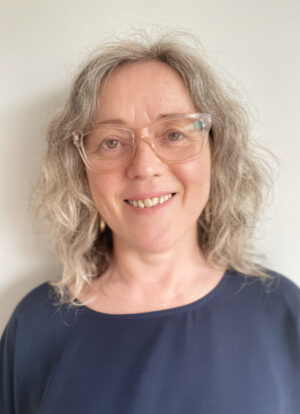
Researcher
Caroline Bradbury-Jones
Caroline is a registered nurse, midwife and health visitor and has extensive experience of working directly with families, particularly those with high levels of need. She has held a number of different academic posts over the past fifteen years and since gaining her PhD in 2009, her research work has focused broadly within the scope of addressing inequalities and more specifically on issues of domestic and sexual violence. She holds the position of Professor of Gender Based Violence and Health and is the founder of the Risk, Abuse and Violence (RAV) research programme at the University of Birmingham, UK: http://www.birmingham.ac.uk/sc...

Researcher
Dr Maggie Grant
Maggie is a researcher based at the Centre for Child Wellbeing and Protection, University of Stirling. Her research focuses mainly on care experienced children and young people and their families, and the people, organisations and systems that they come into contact with. She has worked on a number of studies related to separated children, including children who have been trafficked, on connectivity during the Covid 19 pandemic (funded by ESRC), education (with Scottish Refugee Council) and befriending support (with Scottish Guardianship Service). She previously worked for refugee support organisations in London and Syria.
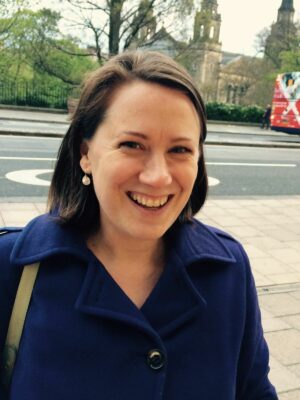
Researcher
Dr Paul Rigby
Paul is a lecturer in social work at the University of Stirling. Paul has published a number of research reports and papers that address the challenges in addressing child trafficking and sexual exploitation, and the wider responses to separated children. He presently sits on the Scottish Government National Child Trafficking Strategy Group, Action Area 3 Human Trafficking Strategy Group and is on the advisory group for the UK Independent Anti-Slavery Commissioner. Paul is also working as a consultant on a number of international projects around migration and separated children.
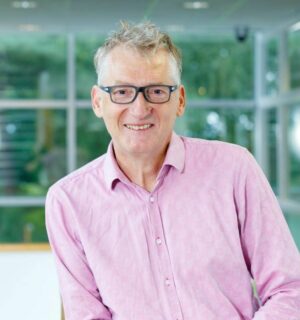
Researchers
Dr Maria Fotopoulou
Maria is a Lecturer in Criminology with expertise and experience in the field of policy and the service evaluation of marginalised and minority groups in the UK and Greece. She has a PhD in Drug Misuse from the University of Glasgow and an MSc in Drug Use from Imperial College London. She specialises in the topics of drug use, the framing and construction of social problems and the process of problematisation in research, policy and practice. She was also a co-investigator in a Carnegie Trust funded study into the provision of services to unaccompanied minors in Scotland.

Researcher
Prof Margaret Malloch
Margaret is professor of criminology at the University of Stirling and Associate Director of the Scottish Centre for Crime and Justice Research (www.sccjr.ac.uk). Her research and writing aims to challenge carceral and punitive responses to ‘crime’ and to work towards collective action for change. She has published on topics that include gender and justice; crime, critique and utopia; and state responses to human trafficking, including the edited publication (with Paul Rigby) Human Trafficking: The Complexities of Exploitation, Edinburgh University Press.
Researcher
Dr Helen Connolly
Dr Helen Connolly has a proven track record of delivering policy-relevant research using a wide-range of methodologies in safeguarding trafficked and unaccompanied asylum seeking and migrant children. Specifically, her work focuses on the United Nations Convention on the Rights of the Child and its impact on the lives of unaccompanied and separated children within asylum and immigration processes, trafficking processes, social care systems and the provision of guardianship. Dr Connolly has worked on Government evaluations on child trafficking, most notably on the Independent Child Trafficking Advocates evaluation, the Independent Child Trafficking Guardians evaluation, and led on the evaluation for the Child Trafficking Protection Fund. She has led on a number of research projects on unaccompanied and separated migrant children, most recently in the area of legal aid and refugee family reunion. Through her research she engages with legislators, policy makers and key practice and sector stakeholders, and has a deep commitment to participatory research approaches with children and young people with first- hand experience of trafficking, asylum and immigration to ensure their voices and experiences are at the centre of evidence-based policy and practice developments.

Researcher
Dr Craig Barlow
Craig Barlow is a Criminologist and Independent Consultant in Forensic Social Work. Over the past 30 years he has been involved in safeguarding children and vulnerable adults and the assessment and management of violent and sexual offenders in both secure forensic and community settings.
With many years’ experience of organised and networked abuse and exploitation of children and vulnerable adults, he has acted as an expert adviser to Police and Prosecutors in cases of trafficking and modern slavery since 2014. His doctoral research developed a new theoretical model for understanding, describing and explaining Child Criminal Exploitation (CCE) which he continues to develop to address other contexts for modern slavery.
From his direct work as a practitioner and his academic research, he has developed the Systemic investigation, Protection and Prosecution Strategies (SIPPS) approach to assist safeguarding agencies, law enforcement and both civil and criminal justice practitioners safeguard victims and pursue, disrupt and prosecute perpetrators.
Craig regularly provides expert evidence to the criminal and family courts but continues to pursue his research interests with the Wilberforce institute (University of hull) and St Mary’s University, Twickenham. He lectures on the subject of modern slavery throughout the country and abroad and is engaged as a consultant by a number of organisations including statutory services, governing bodies and NGOs.

Researcher
Dr Sian Oram
Dr Sian Oram is the PI of the MS-COS project, Head of the Section of Women’s Mental Health and Senior Lecturer in Women's Mental Health at the Institute of Psychiatry, Psychology & Neuroscience at King's College London. Her research focuses on interpersonal trauma, its intersection with gender and with institutional and societal structures, and its relationship to mental health.

Researchers
Dr Emma Howarth
Dr Emma Howarth is a senior lecturer in the School of Psychology, University of East London. Her primary research focus is on domestic abuse and responses to children who experience it. Emma brings expertise on core outcome set and consensus methodologies, and is currently leading work to develop core outcome sets for children affected by domestic abuse and child maltreatment.

Researcher
Professor Cornelius Katona
Professor Cornelius Katona is the Medical Director at Helen Bamber Foundation. He is the Royal College of Psychiatrists' lead on Refugee and Asylum Mental Health. He is an Honorary Professor in the Division of Psychiatry at University College London.

Researcher
Rachel Witkin
Rachel is the Head of Counter-Trafficking and Publications at the Helen Bamber Foundation where she helps to run a specialist Counter-Trafficking programme which provides ongoing safeguarding and contact support for survivors in accordance with their individual needs and risks.

Researcher
Nicola Wright
Nicola is an Associate Professor in Mental Health in the School of Health Sciences and the University of Nottingham.She holds a PhD in Nursing Studies and is the Mental Health Lead at the Rights Lab.

Researcher
Sohail Jannessari
Sohail is a migrants' rights researcher and activist. He has submitted a PhD on the mental health experiences of Iranians and Afghans going through the asylum process and founded the Migrant Connections Festival non-profit.

Researcher
Siân Thomas
Siân Thomas is a Lecturer at the University of Birmingham in the Social of Social Policy. She is a member of the Institute for Research into Superdiversity (IRiS) and a board member of the West Midlands Anti-Slavery Network. Siân’s academic and practice background is in human rights and social work, and her recent research and evaluation work has included projects on supporting women in the asylum process, ethical research practice on gender-based violence, mapping the needs of undocumented children and young people, and preventative approaches to asylum support. Her doctoral research explores justice approaches to sexual and gender-based violence, and is based on fieldwork undertaken with Syrian forced migrants in four cities across Turkey.

Researcher
Lauren Saunders
Lauren Saunders is Head of Policy and Research at Unseen UK. She utilises her 5 years+ experience of direct survivor support to help bridge the gap between survivors and policy makers through facilitation of appropriate, trauma-informed survivor research participation activities.
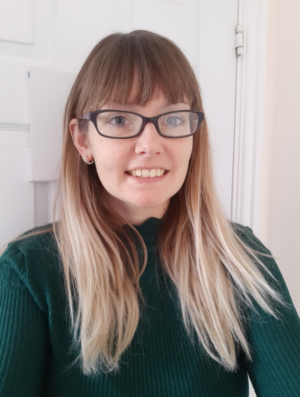
Researcher
Teela Sanders
Teela Sanders is Professor of Criminology and currently Dean for Research and Enterprise for the College of Social Sciences, Arts and Humanities at the University of Leicester. She is a leading international scholar in research on the intersections between gender, regulation, governance and crime, specifically in the sex industry.
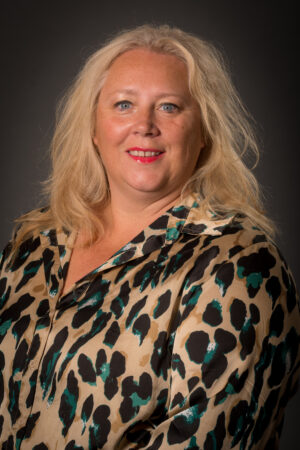
Researcher
Nick Skipworth
Nick Skipworth is a detective superintendent who is currently the Director of Intelligence for Bedfordshire police. He has been a police officer for 29 years working for Bedfordshire, ERSOU and Cambridgeshire police. Most of his career has been spent tackling organised crime. He is the Eastern regions drugs lead and significantly part of the NPCC Sex working portfolio. He has been part of the national ASW working group since its inception, represented UK policing in international discussions, advised on legalisation changes, supported numerous UK police forces as a SME on sexual exploitation investigations and been the lead officer for several large scale national and international slavery investigations.
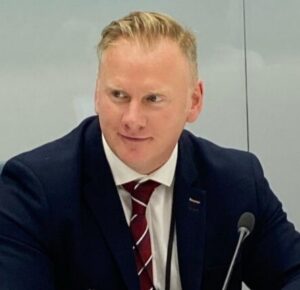
Researcher
Dr Timothy Masiko
Dr Timothy Masiko is an assistant professor in law at the University Of Nottingham, where teaches World Trading Systems at postgraduate level, and international law and the global economy to undergraduate students. His research in international economic law focuses on regional economic integration in Africa, which he uses to study Pan-African approaches to international law. He brings this experience to the project, and leads the study of the relationships between trade and investment agreements and modern slavery.
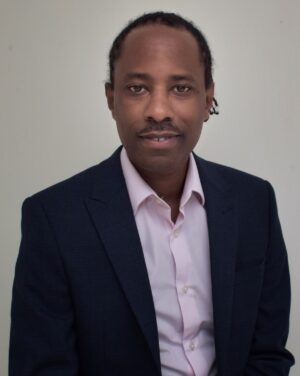
Researcher
Chloe Cranston
Chloe Cranston is Business and Human Rights Manager at Anti-Slavery International. Chloe leads Anti-Slavery International’s work to tackle forced labour in global supply chains, through advocacy, campaigns and direct engagement with businesses. She manages Anti-Slavery International’s campaigns for mandatory human rights and environmental due diligence and import controls, and is a co-founder of the Coalition to End Forced Labour in the Uyghur Region. Prior to joining Anti-Slavery International, she worked with the international peacebuilding NGO International Alert advising on the management of human rights impacts of business operations in high-risk contexts. She has also worked in the political risk industry and with the European Union.

Researcher
Dr Todd Landman
Dr Todd Landman is a Professor of Political Science, Pro Vice Chancellor of the Faculty of Social Sciences and Executive Director of the Rights Lab at the University of Nottingham. He is a member of Council of the Economic and Social Research Council. He researches, teaches, and publishes on significant problems and methods associated with development, democracy and human rights. His current focus is on measuring, analysing, and evaluating interventions to combat modern slavery. He has carried out international consultancies for DFID, the FCO, European Commission, United Nations Development Programme, International Institute for Democracy and Electoral Assistance, Ministry of Foreign Affairs of the Netherlands, Swedish International Development Agency, Canadian International Development Agency, and Amnesty International. His latest book is The Rights Track: Sound Evidence on Human Rights and Modern Slavery (Anthem Press, 2022).
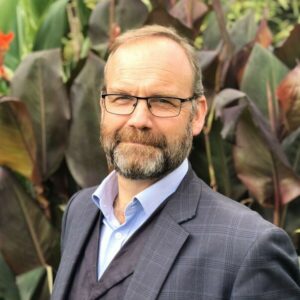
Researcher
Professor Facundo Albornoz
Professor Facundo Albornoz (Economics) works as part of the Rights Lab's Business and Economies Programme on an empirical analysis of the link between international trade liberalization and modern slavery. His research background includes a variety of areas, such as international trade (firm export dynamics), education policy (behavioural interactions within the school system), cultural dynamics and international political economics (the effect of foreign interventions on conflict and democracy), with an underlying common interest in development economics.

Researcher
Sabina Lawreniuk
Sabina Lawreniuk is Research Fellow in the School of Geography at the University of Nottingham. She researches work and organising in the global garment and footwear industry. Her ongoing projects and forthcoming outputs explore women’s trade union representation (funded by a Leverhulme Early Career Fellowship 2017-2020), Covid-19 employment and wellbeing impacts (funded by the UK's Global Challenges Research Fund 2020-2022), and women’s health and safety (funded by a Nottingham Research Fellowship 2020-2023 and a UKRI Future Leaders Fellowship 2022-2026) across the global garment sector.
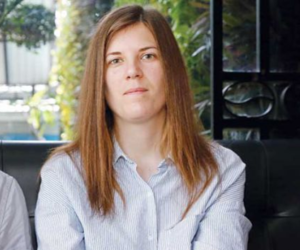
Researcher
Marija Jovanovic
Marija Jovanović is a Senior Lecturer at the Essex Law School and Human Rights Centre. Her research focuses on modern slavery and the way this phenomenon interacts with different legal regimes, such as human rights law, criminal law, labour law, immigration law, international trade law, and business regulation. She is the author of State Responsibility for ‘Modern Slavery’ in Human Rights Law (Oxford University Press, 2023).
Marija holds DPhil, MPhil, and Magister Juris degrees from the University of Oxford, and a law degree from Serbia. She previously held a Postdoctoral Fellowship in ASEAN Law and Policy at the National University of Singapore, and worked as a Lecturer at the University of Kragujevac and University of Belgrade. She regularly consults for international and non-governmental organisations.
Dr Jovanović is currently leading a Modern Slavery PEC-funded research project ‘Survivors of Modern Slavery in Prisons: The Blind Spot of the UK Anti-Slavery Regime’, which investigates the experiences of modern slavery survivors in the UK prisons.

Researcher
Patrick Burland
Dr Patrick Burland is a Senior Project Officer in the Protection Division of the UK country office of the International Organization for Migration (IOM UK) He was a Co-Investigator for a research study conducted in partnership between the University of Bedfordshire and IOM which looked at ‘vulnerability’ to trafficking from Albania, Viet Nam and Nigeria. He has also worked on counter-trafficking projects in Ethiopia and Indonesia. He has a PhD from the University of the West of England for his thesis ‘The Responses to Trafficked Adults in the UK: Rights, Rhetoric and Reality’ and in 2017 won a Human Trafficking Foundation Anti-Slavery Day media award for best written opinion piece dealing with modern slavery. He has published on the criminalisation of potential survivors of modern slavery in the UK.

Researchers
Hibiscus Initiatives
Hibiscus Initiatives (Hibiscus) is a voluntary sector organisation with a track record of delivering high-quality services for over 30 years. We have distinct expertise working with Black, minoritised and migrant women and families at the intersection of the immigration and criminal justice systems. Our work falls into four broad areas: prisons, community, international resettlement and human trafficking. In 2021 we worked with 840 people from over 100 countries. We work in 3 prisons, 5 detention centres and we have 1 women’s centre in London. Members of the team involved in the project on modern slavery survivors in prison are:
1. Julie-Anne Ntege - Anti-Trafficking Policy Officer
2. Priscille Manga – Policy Team Member
3. Ghadah Alnasseri - Head of Policy and Public Affairs
4. Silvia Berastegui - Cultural Mediation Project Officer
5. Kanika Phillip – Communications Officer
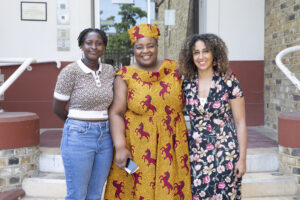
Researcher
Anita Franklin
Anita Franklin is Professor of Childhood Studies at the University of Portsmouth, UK. Her background is in children’s social care and policy, and her research has mainly focused on disabled children’s voice, rights, participation and protection. Specifically, Anita has contributed unique insight into the abuses and protection of disabled children and young people ensuring that their voices and experiences inform the development of policy and practice in this area. Her work has highlighted specific risks to exploitation and abuse of young people with learning disabilities, and neuro-diverse young people, and sought to explore appropriate multi-agency responses. Anita has also developed a methodology for co-leadership with disabled young people within research studies. For over a decade she has worked in partnership with groups of disabled young people (the VIPERS and RIP:STARS) to support evidence generation to facilitate policy and practice change, and activism, which is led by disabled young people.
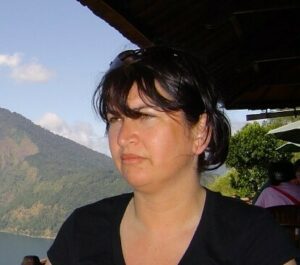
Researcher
Sarah Atkins
Sarah Atkins BA LLB, is a solicitor qualified to practise both in Ireland and in England & Wales. She joined the University of Portsmouth’s School of Law as a Teaching Fellow in 2015 and is now a Senior Lecturer. She currently teaching on the Public law, Family & Child Law and Jurisprudence modules. Sarah’s research interests include in family law, human rights, international law and asylum/refugee law. In 2021 Sarah acted as an External Peer Reviewer for a UK Parliament POSTnote on a report entitled ‘The Use of Biological Methods in Asylum Age Assessments’. Prior to joining UoP, Sarah worked as a solicitor in private practice in Portsmouth in the area of private client law and previously for the Legal Aid Board in Ireland in the area of civil litigation, medical negligence, child protection and family law. She also lectured family law and professional ethics at Griffith College Cork. In 2014 she was part of a funded research project by Shared Insight commissioned by the Irish Human Rights & Equality Commission into Direct Provision and delays in the Irish asylum system. She is a graduate of University College Cork.
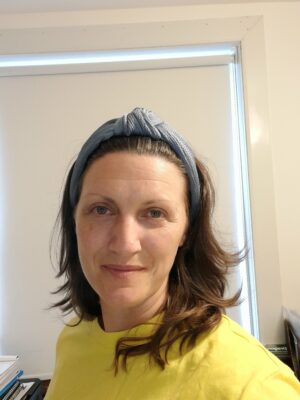
Researcher
Dr Inga Thiemann
Dr Inga Thiemann is a Lecturer in Law at University of Exeter. Her socio-legal research focuses on the intersections of criminal law, migration law, employment law, discrimination law and feminist theory. She has a particular interest in marginalised workers, feminised sectors of work and in issues of gender and migration, as well as the devaluation of feminised labour, and labour approaches to sex work. Inga has published in various leading journals, including the Industrial Law Journal, the International Journal of Comparative Labour Law and Industrial Relations and the Anti-Trafficking Review. She has also contributed to generalist publications such as Open Democracy’s Beyond Slavery and Exploitation series and the Futures of Work blog.

Researcher
Dr Natalie Sedacca
Dr Natalie Sedacca is a Lecturer in Law at University of Exeter and from 1 September 2022 will be an Assistant Professor in Employment Law at Durham University. Her research focuses on human rights and labour law, with a particular interest in domestic workers and other marginalised workers, and in issues of gender and migration. Natalie has published in journals including Human Rights Law Review and Industrial Law Journal. Her ongoing research projects include the rights of domestic workers in the ‘gig economy,’ and the human rights implications of the ‘hostile environment’ for migrant women. Natalie is a trustee for the migrant domestic worker NGO Kalayaan and is the joint convenor for the Labour Law section of the Society of Legal Scholars. Before entering academia, Natalie spent nine years in legal practice specialising in claims against the police and public authorities.

Researcher
Manoj Dias-Abey
Manoj Dias-Abey is a Lecturer at the University of Bristol School of Law. He is a sociolegal researcher interested in labour law, migration and political economy. His current research examines how legal institutions shape the reception of migrant workers in the labour market. Another stream in his research investigates the legal strategies of unions that represent migrant workers. Manoj has published his research in various leading law journals and reviews, including the Industrial Law Journal, International Journal of Comparative Labour Law and Industrial Relations, Australian Journal of Labour Law, and Harvard Civil Rights-Civil Liberties Law Review. He has also written for generalist publications, such as Futures of Work, Boston Review, Institute of Employment Rights blog, Migration Mobilities Bristol blog, and Law & Political Economy Blog.
Manoj earned his Ph.D. in Law also from Queen’s University in 2016. He also holds LL.M. (Research), LL.B., and B.A. (English) degrees from the University of New South Wales in Australia. Prior to entering academia, Manoj worked in various legal roles in government, private practice, and the publishing industry. He is admitted to practice as a solicitor in New South Wales.
At the University of Bristol, he is the co-director of the Centre for Law at Work. Outside the university, he is a steward of the British Universities Industrial Relations Association.
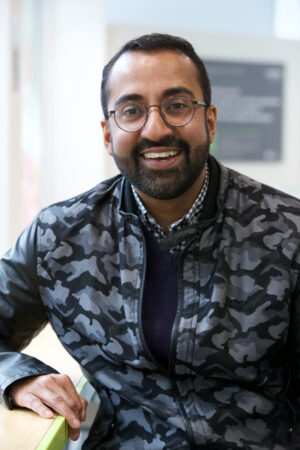
Researchers
Focus on Labour Exploitation (FLEX)
Founded in 2013, Focus on Labour Exploitation (FLEX) is a research and policy organisation working to end labour exploitation. FLEX seeks to achieve this vision through the prevention of labour abuses; protection of the rights of those affected or at risk of exploitation; and promoting best practice responses to labour exploitation through research and evidence-based advocacy. FLEX has carried out research on the structural and systemic factors creating vulnerability to labour exploitation in several high-risk sectors of the economy, including agriculture and care. FLEX believes that research and policy should be shaped by the people most affected by an issue, and therefore works directly with people affected by or at risk of exploitation, and alongside several frontline organisations who support these communities. To contact FLEX about this research project, please reach out to Lucila Granada, CEO, and Meri Ahlberg, Research Manager through research@labourexploitation.org.
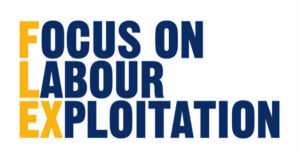
Researcher
Dr Joyce Jiang
Dr Joyce Jiang is a Senior Lecturer in Human Resource Management and Sociology of Work at the York Management School, University of York, UK. Her main research areas include migrant labour, trade unionism, social movement and art activism. Her research takes an ethnographic approach that involves the use of photography and video. She has published papers in leading management journals, such as Human Relations. She’s also on the editorial board of the journal Work, Employment and Society. Joyce has been actively reporting her research findings to a wider practitioner audience including third sector organisations, arts organisations and the Houses of Parliament. She is on the trustee board of the charity organisation -The Voice of Domestic Workers in London. She has also produced a series of exhibitions on migrant domestic workers across the UK. Her research has been covered by national mainstream media, such as The Guardian.
Researcher
Dr Konstantinos Alexandris Polomarkakis
Dr Konstantinos Alexandris Polomarkakis is a Lecturer in Law at the University of Exeter. His research interests centre on the impact of law, policy, and judicial decision-making on the trajectory of labour and non-discrimination law. Furthermore, he is keen to explore how non-discrimination law, coupled with the notions of equality, fairness and social justice, manifest themselves and influence the power relations between the various actors in a legal field. His work adopts socio-legal and interdisciplinary approaches, and has been published in leading journals, such as The Modern Law Review and Social & Legal Studies. His first monograph, provisionally titled The Judicial Making of Labour Law, is under contract with Oxford University Press. He is also Co-I in a project funded by the Solicitors Regulation Authority, looking at the causes of attainment gaps in legal qualifications.
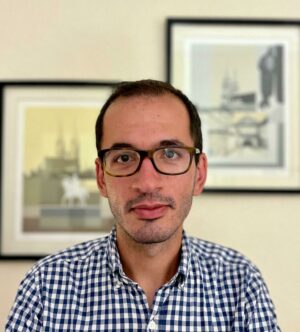
Researcher
Dr Jeanette D’Arcy
Dr Jeanette D’Arcy is a Research Assistant at the University of Liverpool’s Department of Communication and Media. She is involved with several projects focused on digital inequalities and people with vulnerabilities, including ‘Developing a Minimum Digital Living Standard’, and the Modern Slavery and Human Rights PEC project. She is also a Research Associate at the University of East Anglia, where she works on the ‘Changing Conversations’ project which looks at experiences of supporting children and young people with vulnerabilities in their online lives. Jeanette is a researcher with a background in the humanities, interested in digital inequalities and marginalised communities, intersectional feminism, education, media & performance.
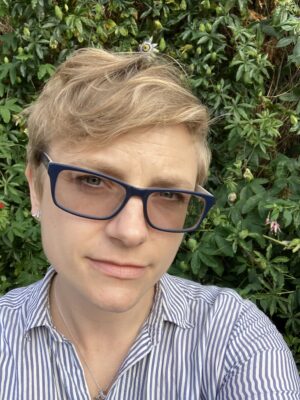
Modern Slavery PEC Fellow
Dr Allen Kiconco
Dr. Allen Kiconco is a Research Fellow at the University of Liverpool's Department of Politics. Her research focuses on Gender and Violence, specifically, the lived experiences of women and girls in conflict and post-conflict societies, as well as some aspects of modern slavery. Such experiences include wartime abduction, captivity, sexual violence, sexual slavery, forced marriage, and forced pregnancy.
Allen enjoys collaborating with people who share her interest in emphasising and centring on lived experiences of exploitation, interests that arose from a number of research projects on gender and violence, modern slavery, and human trafficking. She is particularly interested in discussions about the methodological and ethical procedures that researchers use to gain access to and engage with survivors of exploitation during the knowledge-production process.
Allen's contributions have aided in the development of ethical methodologies, research methods, and safeguarding strategies. She is committed to the advancement of person-centred and holistic research practices, bringing extensive experience and a strong understanding of power dynamics and power imbalances to collaborative research projects.
Allen is currently leading a collaborative research project at the University of Liverpool in collaboration with the Modern Slavery PEC to create an international research network that develops principles for equitable lived-experience-engaged research and policies to address modern slavery.
Allen is also a Modern Slavery PEC Research Fellow (maternity cover), leading the University of Liverpool's work as part of the PEC Consortium partner-led work strand.
Associate Professor of Criminology and Sociology
Dr Carole Murphy
Carole Murphy is Associate Professor of Criminology and Sociology at St. Mary’s University and Director of the Bakhita Centre for Research on Slavery, Exploitation and Abuse. Carole played a key role in establishing the Centre, ensuring a focus on victim/survivor support needs, practice interventions and policy impact. She is especially committed to developing training for practitioners who work with victims of abuse and exploitation, and exploring opportunities for survivors as experts by experience to develop to their full potential. Her main research interests are in human trafficking, modern slavery, exploitation and abuse, and examining intersections with social problems, inequalities, addiction and health/mental health issues.
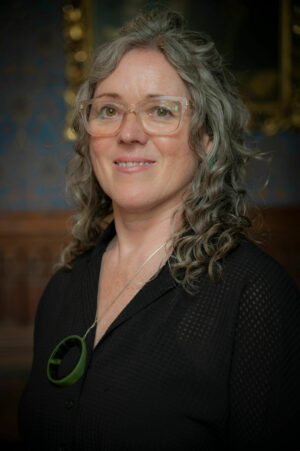
Postdoctoral Researcher
ANTA BRACHOU
Anta is a Postdoctoral Researcher at the Bakhita Centre for Research on Slavery, Exploitation, and Abuse, dedicated to investigating access to education for survivors of modern slavery. She became a part of the Centre in 2019, initially as the Project and Research Officer. Presently, Anta is the module convenor for a practitioner-oriented module/short course focusing on Identification, Support, and Care for Survivors of Modern Slavery. Prior to her involvement with the Centre, Anta contributed her efforts to a voluntary sector organisation, offering advocacy and support to women impacted by the criminal justice system and also victims of trafficking. Anta accomplished her PhD at the University of Hull - the Wilberforce Institute, concentrating on the complex issue of human trafficking from Albania to the UK. Her main research interests are in modern slavery and human trafficking, migration, cultural competency and reflective practice.

Core team
Meet the people responsible for the Modern Slavery PEC's day to day work.

Modern Slavery PEC Director
Murray Hunt
Murray Hunt is the Director of the new Modern Slavery and Human Rights Policy and Evidence Centre, created to enhance understanding of modern slavery and transform the effectiveness of law and policies designed to overcome it. It is led by the Bingham Centre for the Rule of Law, of which Murray is the Director.
From 2004 to 2017, Murray was Legal Adviser to the Joint Committee on Human Rights in the UK Parliament, and prior to that was a practising barrister at Matrix, which he helped to establish in 2000.

Finance and Administration Manager
Isabella Asimadi
Isabella Asimadi has extensive experience of administering Research Council funding. Her highly varied portfolio includes multi-national project management and coordination with Imperial College London, University College London and Commonwealth Secretariat.

Director of Research and Senior Management Board member
Prof Alex Balch
Prof Alex Balch is a professor of politics at the University of Liverpool, with research interests in policies on immigration and modern slavery. He currently leads the Antislavery Knowledge Network, which seeks to apply innovative methods to tackle modern slavery across Sub-Saharan Africa. He is also associate director of the African Programming and Research Initiative To End Slavery (APRIES). He has over 10 years’ experience designing and implementing programmes in diverse international contexts. His approach is collaborative and interdisciplinary, with the aim to develop new methods and modes of partnership across national boundaries with government, business and civil society to meet the challenges in addressing modern slavery.

Director of Policy Impact
Olivia Hesketh
Olivia Hesketh joined the Modern Slavery PEC from the civil service. She began her career as a government analyst across crime and policing policy areas. For four years before she joined the Centre, Olivia was a policymaker in the Modern Slavery Unit in the UK Home Office, most recently leading the team that focuses on the Government’s international and prevention policies.

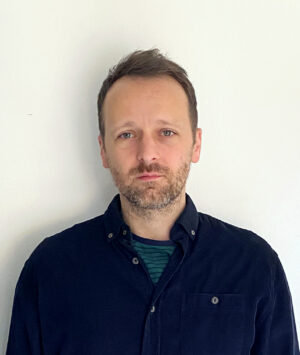

Policy Impact Manager
Liz Williams
Liz Williams joined the Modern Slavery PEC from Asylum Research Centre which she co-founded in 2010. As co-Director, she led research and policy projects on asylum and refugee protection issues. Liz has acted as a consultant for UNHCR, the European Asylum Support Office, Amnesty International UK and the Independent Advisory Group on Country Information and has been a Senior Policy Advisor at Freedom from Torture.

Partnerships Manager
Owain Johnstone
Owain Johnstone joined the Modern Slavery PEC from the Ethical Trading Initiative (ETI), where he worked as Modern Slavery Advisor and Policy Advisor. While at ETI, he worked on establishing best practice in business modern slavery reporting, supporting the development of the Modern Slavery Statement Framework. He also coordinated engagement with a range of stakeholders on issues including state-imposed forced labour, the implementation and enforcement of the UK Modern Slavery Act and the emerging debate on mandatory human rights due diligence. Prior to working at ETI, Owain completed his PhD on the development of human trafficking law and policy in the UK.

Research Operations Manager
Izzy Templer
Izzy Templer joined the Modern Slavery PEC from the University of Edinburgh, where she was the Project Manager for Rising from the Depths, a Global Challenges Research Fund Network Plus award. While working with Rising from the Depths she managed a portfolio of 27 Innovation Projects that researched the utilisation of Marine Cultural Heritage for sustainable development in Eastern Africa. Izzy’s background is in law, studying Law and European Law at the University of Nottingham.

Executive Assistant
Marjo Paavilainen
Marjo has an extensive administrative experience working in non-for-profit and public sectors. She has joined the Modern Slavery PEC and the Bingham Centre for the Rule of Law, having recently worked in international research and innovation think tanks and organisations.

Policy Impact Manager
Dr Victoria Tecca
Dr. Victoria Tecca has a background in research and policy in the fields of cross-Channel migration, people smuggling, exploitation, and structural violence. She recently completed her PhD in anthropology, for which her research examined the impacts of immigration policy on Kurdish undocumented migrants living street homeless in a tent settlement on the France-UK border. She has previously worked in policy, casework, and frontline emergency response roles in the civil society sector.

Research Associate
Rose Fatherazi
Rose Fatherazi joined the Modern Slavery PEC from the Middle Eastern Women and Society organisation (MEWSo) where she was the Operations and Advice Manager overseeing cases related to domestic abuse, welfare issues and migrant rights. She has expertise in harmful practices in the UK, particularly centred around modern slavery and forced marriage, polygamy, and honour based abuse. Rose is a passionate campaigner and aided in the launch of the Ban Virginity Tests campaign and assisted in including the ban on virginity tests and hymen repair surgery in the Health and Care Bill 2022.
Lived Experience Engagement Manager
Olessya Glasson
Olessya Glasson has extensive experience in creating spaces for survivors of modern slavery to feed directly into modern slavery policy, and in embedding lived experience within organisations working to address modern slavery, including in research, service delivery and NGOs.
Her role at the Modern Slavery PEC is to lead on the Modern Slavery PEC’s commitment to survivor inclusion, ensuring that everything the Centre does has survivor expertise woven through it. She oversees the governance of our lived experience engagement work, and founded the Modern Slavery PEC Lived Experience Advisory Panel, which is made up of six individuals who hold lived experience of modern slavery or human trafficking, and who advise on all aspects of the Centre’s work.
Senior Management Board
The Modern Slavery PEC Senior Management Board (SMB) comprises representatives of the six Consortium partners of the Centre, the Centre’s Research Director, the Operations Director, and the AHRC’s Senior Responsible Officer. The SMB is responsible for developing and delivering the strategy of the Centre.

Modern Slavery PEC Director
Murray Hunt
Murray Hunt is the Director of the new Modern Slavery and Human Rights Policy and Evidence Centre, created to enhance understanding of modern slavery and transform the effectiveness of law and policies designed to overcome it. It is led by the Bingham Centre for the Rule of Law, of which Murray is the Director.
From 2004 to 2017, Murray was Legal Adviser to the Joint Committee on Human Rights in the UK Parliament, and prior to that was a practising barrister at Matrix, which he helped to establish in 2000.

Senior Management Board member
Prof Trevor Burnard
Trevor Burnard is one of the world’s leading historians of the slave trade and slave societies in the Americas. Currently Wilberforce Professor of Slavery and Emancipation and Director of the Wilberforce Institute at the University of Hull, since 2004 he has held professorships at Sussex, Warwick, Melbourne and Hull. He is author of 14 books, including 7 monographs, the most important of which is the prize-winning Mastery, Tyranny and Desire: Thomas Thistlewood and His Slaves in the Anglo-Jamaican World (2004).
He has been editor-in-chief since 2009 of the award-winning Oxford Bibliography Online in Atlantic History. His numerous fellowships include the Heinz Heinen Fellowship at the Centre of Slavery and Dependency Studies at the University of Bonn. He was head of school or department for 16 years at the Universities of Brunel, Sussex, Warwick and Melbourne.

Senior Management Board member
Dr Christos Kypraios
Dr Christos Kypraios is the Programmes Manager at the Bonavero Institute of Human Rights, University of Oxford, a Senior Fellow at Mansfield College, University of Oxford, and a Senior Research Affiliate at the Max Planck Institute for Comparative Public Law and International Law in Heidelberg. He is a Senior Management Board Member of the Modern Slavery PEC since July 2020, representing the Bonavero Institute of Human Rights.

Senior Management Board member and Researcher
Dr Anjali Mazumder
Anjali Mazumder is the Theme Lead on AI and Justice & Human Rights at the Alan Turing Institute. With over 15 years’ experience of working at the interface of research, policy and practice in the UK, the US, and Canada, her work focuses on developing responsible and inclusive data and AI methods, tools and frameworks for safeguarding people from harm and building resilient institutions and systems. She was appointed to Canada’s National DNA Databank Advisory Committee (2012-2018) and currently serves on the UK Forensic Science Regulator’s fingerprint interpretation subgroup. She has also served the Royal Statistical Society in a variety of ways, most recently appointed to the Statistics & Law Section and the Data Science Section committees. She holds a doctorate in Statistics from the University of Oxford and two masters’ degrees in Measurement and Evaluation, and Statistics from the University of Toronto.
She is leading on the Modern Slavery PEC project on Enabling Trust, Security and Privacy for Policy Innovation in Tackling Modern Slavery.

Senior Management Board member and Researcher
Dr Katarina Schwarz
Dr. Katarina Schwarz is Associate Director (Law and Policy Programme) at the Rights Lab, University of Nottingham, and Assistant Professor of Antislavery Law and Policy. Her research interrogates the law and policy frameworks that operate at the global, regional, and domestic level to determine the elements of effective anti-slavery governance and map trends, successes, and failures in this area. To support evidence-based action in anti-slavery governance, Schwarz is currently developing and analysing the world’s first comprehensive database of the domestic legislation and international obligations of all 193 UN Member States with regard to slavery and related forms of exploitation.
Katarina is working on two Modern Slavery PEC projects, analysing the situation in top source countries for trafficking into the UK and on the impact of Covid-19 and modern slavery in Sudan.

Senior Management Board Member
Dr Peter Olayiwola
Peter Olayiwola is a lecturer in the politics of Immigration, Anti-trafficking and Modern Slavery at the University of Liverpool. His research interests include migration, trafficking, poverty, inequalities, and qualitative research methods. He has also been involved in projects examining the challenges of achieving such Sustainable Development Goals (SDGs) as eliminating all forms of modern slavery and child labour.
Advisory Group
Advisory Group offers advice and guidance to the Senior Management Board.

Advisory Group member
Prof Ruth Blakeley
Prof Ruth Blakeley is a Professor of Politics and International Relations at the University of Sheffield. After completing an MSc and PhD in International Relations at the University of Bristol, she became a lecturer and then Professor in International Relations at the University of Kent, later becoming the Head of School of Politics and International Relations. She was the Director of the White Rose Social Sciences Doctoral Training Partnership at Sheffield. She is the Vice Chair of the British International Studies Association (BISA), and was lead Editor of the Review of International Studies from 2016 to 2020. Professor Blakeley’s research and teaching focus on international security, terrorism and political violence, and human rights.

Advisory Group member
Paul Bowden
Paul Bowden is a solicitor. He is former global corporate responsibility partner and leader of the business and human rights practice at Freshfields Bruckhaus Deringer. Paul teaches business and human rights law as honorary professor at the Nottingham Law School at Nottingham Trent University and is Chair of the National Justice Museum, the leading public legal education provider.

Advisory Group member
Alastair Redfern
The Right Revd Dr Alastair Redfern is chair of the Clewer Initiative, a co-founder of the Global Sustainability Network, chair of the Advisory Panel for the Independent Anti-Slavery Commissioner, and vice-chair of the Anglican Alliance. He was a member of the Select Committee which drafted the modern slavery act for the UK. He was Bishop of Derby from 2005 to 2018.

Advisory Group Member
Yuki Lo
Yuki Lo is the Head of Research & Evaluation at the Freedom Fund and has over ten years’ experience delivering evaluations of child protection, labour rights, women's economic empowerment and ending gender-based violence programs. She leads the Freedom Fund’s work on measuring the impact of its investments and is currently supervising research in Bangladesh, Brazil, Ethiopia, India, Myanmar, Nepal and Thailand on the topics of forced labour, child labour, debt bondage, sex trafficking and forced marriage.

Advisory Group Member
Andrew Wallis OBE
Andrew Wallis is the CEO of anti-slavery organization Unseen, which provides safe housing and other services for survivors of trafficking, runs the UK’s Modern Slavery and Exploitation Helpline, and works with businesses and others in the eradication of slavery. Andrew chaired the landmark Centre for Social Justice report ‘It Happens Here’, widely acknowledged as the catalyst for the UK Modern Slavery Act of 2015, which he also advised on the development of. He was awarded an OBE that year. The job has presented him with challenges as diverse as building flat-pack furniture for Unseen’s first safe house, to advising global businesses on how to address slavery in supply chains. He has been described as ‘the loveliest disrupter you could hope to meet.’

Advisory Group Member
Louise Waite
Louise Waite is Professor of Human Geography at the University of Leeds, UK. Her research interests span migration and slavery; with a particular focus on discourses of ‘modern slavery’, unfree/forced labour and exploitative work among asylum seekers and refugees. Through her interdisciplinary and collaborative approach, she has published on these themes in a range of peer reviewed journals and in recent books: The modern slavery agenda: Politics, policy and practice in the UK (with G. Craig, A. Balch, H. Lewis, Policy Press, 2019) and Vulnerability, exploitation and migrants: Insecure work in a globalised economy (with H. Lewis, G. Craig & K. Skrivankova, Palgrave, 2015).

Advisory Group member
Dr Leona Vaughn
Dr Leona Vaughn is the Vulnerable Populations Lead for FAST (Finance Against Slavery & Trafficking) at United Nations University Centre for Policy Research. Dr Vaughn has over 25 years of experience working as an equalities and social justice expert, including as Chief Executive of the UK hate crime charity Anthony Walker Foundation and Non-Executive Director of the Liverpool FC Charitable Foundation. More recently, at the University of Liverpool (UK), Leona has worked as a Research Fellow on a number of interdisciplinary international projects researching risk, vulnerability and labour exploitation globally, and the impacts on racialised and minoritised populations, especially women and children.

Advisory Group Member
Debbie Ariyo OBE
Debbie Ariyo is Founder and Chief Executive of AFRUCA - Safeguarding Children. She is Founder and Chair of the UK BME Anti-Slavery Network. She is a specialist in forced migration and human trafficking and has vast experience of designing and implementing diaspora anti-trafficking engagement programmes and service provision for victims and survivors. She has served in many advisory and non-executive roles including as Trustee of the Africa Europe Diaspora Development Platform based in Brussels. She is also an Advisory Board Member of the Journal of Modern Slavery. A former UK civil servant, she holds an Executive Master degree in Public Administration from the London School of Economics and Political Science.

Advisory group member
Eric Anderson
Eric Anderson is a specialist in business and human rights, with over 20 years' experience including corporate strategy, policy development, business improvement and supply chain management. He currently leads the human rights team at Tesco and is a Trustee at Unseen, a leading anti-slavery charity. Previously, Eric led BT's global anti-slavery programme. During this time he helped set up the UK’s modern slavery helpline and co-founded Tech Against Trafficking, a coalition of tech companies working with global experts to combat modern slavery and human trafficking.

Advisory group member
Catherine Turner
Catherine Turner is a committed and effective NGO advocate and strategist with a wealth of experience in the modern slavery and wider human rights field, as well as in international transparency and development. Notably, she was the Child Slavery Programme Coordinator at Anti-Slavery International for ten years, where, for example, she led a successful campaign to end the trafficking and use of children as camel jockeys in the UAE and beyond, and established frameworks for identifying forced child begging and when child marriage amounts to child slavery. Catherine has also led successful campaigns at Amnesty International, World Vision UK and latterly at Publish What You Fund, the international aid transparency campaign, where she was Advocacy Director and Acting CEO for a period. Her experience is underpinned by an LLM in International Human Rights Law from Essex University, an MSc in NGO Management from the London School of Business (formerly known as Cass Business School) and an MA in International Relations and European Studies from the Central European University in Budapest.

Advisory Group member
Dr Rosemary Broad
Dr Rose Broad is a Senior Lecturer at the University of Manchester. Rose has conducted research on modern slavery and human trafficking, in collaboration with criminal justice agencies and non-government organisations, for over ten years. Her work has made use of quantitative and qualitative data in order to focus on those held responsible for these offences, adding to the limited literature in this area. Her work is closely rooted in the relationship between policy and practice and the importance of developing practice-focused outputs, having worked for over ten years in criminal justice and the voluntary sector.

Advisory Group Member
Hannah Pooley
Hannah Pooley is a Deputy Director in the Home Office. She is currently joint head of the Modern Slavery Unit, responsible for leading and implementing the Government’s modern slavery policy and strategy. The unit works closely with many different government departments, criminal justice and law enforcement bodies, local authorities, academia, business, charities and international bodies to collectively combat modern slavery and to support victims.
In her civil service career, Hannah has held various strategy and policy roles related to international trade, business, energy and public health. Hannah previously worked at the Department for Business, Energy & Industrial Strategy, where appointments included Deputy Director for International Trade and Chief of Staff to the Permanent Secretary.
She holds a degree in International Relations from Durham University.

Advisory Group member
Jennifer Rubin
Professor Jennifer Rubin is the Director General for Science, Technology, Analysis and Research (STAR) and Home Office Chief Scientific Adviser.
As the director of STAR, Jennifer is responsible for bringing together research, analysis, science and international and data policy to support Home Office priorities. As Chief Scientific Adviser (CSA), she has an independent challenge function, ensuring that advice is robust, relevant and high quality, and that there are mechanisms in place to ensure that policy making is underpinned by science and evidence. In this capacity, Jennifer reports to the Government Chief Scientific Adviser.
Before joining the Home Office Professor Rubin was the Executive Chair of the Economic and Social Research Council (ESRC), the UK’s largest funder of economic and social research. Previously, Professor Rubin was Director of the Policy Institute at King’s College London, where she remains a professor. Before this, she was Executive Vice President and the Director of Communities, Safety & Justice at RAND's European offices in Brussels and Cambridge.
Modern Slavery PEC Fellows
Modern Slavery PEC Fellows lead our partner-led work strands, utilising the existing expertise within the Modern Slavery PEC Consortium partners and allowing both agile and longer-term approaches to meet the needs of policymakers.

Researcher
Sofia Gonzalez de Aguinaga
Dr Sofia Gonzalez is a Research Fellow in Business, ESG & Modern Slavery at the Bingham Centre for the Rule of Law. She leads the Modern Slavery PEC's research work strand on business and modern slavery. She is also developing a relevant research programme on Modern Slavery and businesses' ESG responsibilities for the Bingham Centre's Business Network.
Before joining the Bingham Centre she worked as a consultant for the Walk Free Foundation, looking at the garment and investor sectors reporting under the UK and Australian Modern Slavery Acts. Sofia has also undertaken research on modern slavery looking at FTSE100 companies and the UK construction sector.
Sofia holds a PhD in Business Ethics & Sustainability from King's College London. Her thesis looked at heterogenous business responses to CSR programmes in emerging markets. She also has teaching experience at King's College London leading seminars and delivering lectures in the Business School and the Department of International Development.

Researcher, Modern Slavery PEC Fellow
Dr Maayan Niezna
Dr Maayan Niezna is a Postdoctoral Research Fellow in Modern Slavery and Human Rights at the Bonavero Institute of Human Rights, University of Oxford. Her socio-legal research focuses on trafficking for labour exploitation, the regulation of labour migration, and the rights of non-citizens. Her current project focuses on the different understandings of the relationship between work, exploitation, and agency.
Maayan is a Modern Slavery PEC Research Fellow, leading the University of Oxford’s work as part of the PEC Consortium partner-led work strand.

Researcher
Dr Alicia Heys
Dr Alicia Heys is a Lecturer in Modern Slavery at the Wilberforce Institute, part of the University of Hull, where she works on issues around modern slavery and organised crime. Alicia is interested in bridging the gap between academia and practice, and is the Chair of the Humber Modern Slavery Partnership. She led on the project developing interactive workshops for regional partnerships and leads the research strand reviewing the evidence on the legal enforcement of modern slavery.
Alicia is a Modern Slavery PEC Research Fellow, leading the University of Hull's work as part of the PEC Consortium partner-led work strand.

Researcher
Wendy Asquith
Wendy Asquith is a Research Fellow in the Department of Politics at the University of Liverpool. In her recent work, Wendy has collaborated with colleagues in countries across sub-Saharan Africa to deliver the Antislavery Knowledge Network’s online exhibition. She is interested in how creative approaches can enable more equitable and inclusive partnerships and more effective policy interventions in international development.
Wendy enjoys working collaboratively and specializes in interdisciplinary research with interests in histories of humanitarianism, international institutions and postcolonial politics, which grew out of doctoral research on Haitian cultural diplomacy.
Wendy is a Modern Slavery PEC Research Fellow, leading the University of Liverpool's work as part of the PEC Consortium partner-led work strand.

Researcher
Audrey Lumley-Sapanski
Dr Lumley-Sapanski conducts academic and policy-facing research into the impacts of migration governance on the experiences of forced migrants. She is particularly interested in how these processes differentiate populations and contribute to selective exclusion and disenfranchisement. Previously she served as Associate Director at Heartland Alliance Refugee and Immigrant Community Services (Chicago) before receiving PhD in Geography from the Pennsylvania State University.
Modern Slavery PEC Fellow
Dr Allen Kiconco
Dr. Allen Kiconco is a Research Fellow at the University of Liverpool's Department of Politics. Her research focuses on Gender and Violence, specifically, the lived experiences of women and girls in conflict and post-conflict societies, as well as some aspects of modern slavery. Such experiences include wartime abduction, captivity, sexual violence, sexual slavery, forced marriage, and forced pregnancy.
Allen enjoys collaborating with people who share her interest in emphasising and centring on lived experiences of exploitation, interests that arose from a number of research projects on gender and violence, modern slavery, and human trafficking. She is particularly interested in discussions about the methodological and ethical procedures that researchers use to gain access to and engage with survivors of exploitation during the knowledge-production process.
Allen's contributions have aided in the development of ethical methodologies, research methods, and safeguarding strategies. She is committed to the advancement of person-centred and holistic research practices, bringing extensive experience and a strong understanding of power dynamics and power imbalances to collaborative research projects.
Allen is currently leading a collaborative research project at the University of Liverpool in collaboration with the Modern Slavery PEC to create an international research network that develops principles for equitable lived-experience-engaged research and policies to address modern slavery.
Allen is also a Modern Slavery PEC Research Fellow (maternity cover), leading the University of Liverpool's work as part of the PEC Consortium partner-led work strand.
Researchers
People working on research projects funded by the Modern Slavery PEC.

Researcher
Sofia Gonzalez de Aguinaga
Dr Sofia Gonzalez is a Research Fellow in Business, ESG & Modern Slavery at the Bingham Centre for the Rule of Law. She leads the Modern Slavery PEC's research work strand on business and modern slavery. She is also developing a relevant research programme on Modern Slavery and businesses' ESG responsibilities for the Bingham Centre's Business Network.
Before joining the Bingham Centre she worked as a consultant for the Walk Free Foundation, looking at the garment and investor sectors reporting under the UK and Australian Modern Slavery Acts. Sofia has also undertaken research on modern slavery looking at FTSE100 companies and the UK construction sector.
Sofia holds a PhD in Business Ethics & Sustainability from King's College London. Her thesis looked at heterogenous business responses to CSR programmes in emerging markets. She also has teaching experience at King's College London leading seminars and delivering lectures in the Business School and the Department of International Development.

Researcher, Modern Slavery PEC Fellow
Dr Maayan Niezna
Dr Maayan Niezna is a Postdoctoral Research Fellow in Modern Slavery and Human Rights at the Bonavero Institute of Human Rights, University of Oxford. Her socio-legal research focuses on trafficking for labour exploitation, the regulation of labour migration, and the rights of non-citizens. Her current project focuses on the different understandings of the relationship between work, exploitation, and agency.
Maayan is a Modern Slavery PEC Research Fellow, leading the University of Oxford’s work as part of the PEC Consortium partner-led work strand.

Researcher
Dr Alicia Heys
Dr Alicia Heys is a Lecturer in Modern Slavery at the Wilberforce Institute, part of the University of Hull, where she works on issues around modern slavery and organised crime. Alicia is interested in bridging the gap between academia and practice, and is the Chair of the Humber Modern Slavery Partnership. She led on the project developing interactive workshops for regional partnerships and leads the research strand reviewing the evidence on the legal enforcement of modern slavery.
Alicia is a Modern Slavery PEC Research Fellow, leading the University of Hull's work as part of the PEC Consortium partner-led work strand.

Researcher
Wendy Asquith
Wendy Asquith is a Research Fellow in the Department of Politics at the University of Liverpool. In her recent work, Wendy has collaborated with colleagues in countries across sub-Saharan Africa to deliver the Antislavery Knowledge Network’s online exhibition. She is interested in how creative approaches can enable more equitable and inclusive partnerships and more effective policy interventions in international development.
Wendy enjoys working collaboratively and specializes in interdisciplinary research with interests in histories of humanitarianism, international institutions and postcolonial politics, which grew out of doctoral research on Haitian cultural diplomacy.
Wendy is a Modern Slavery PEC Research Fellow, leading the University of Liverpool's work as part of the PEC Consortium partner-led work strand.

Researcher
Audrey Lumley-Sapanski
Dr Lumley-Sapanski conducts academic and policy-facing research into the impacts of migration governance on the experiences of forced migrants. She is particularly interested in how these processes differentiate populations and contribute to selective exclusion and disenfranchisement. Previously she served as Associate Director at Heartland Alliance Refugee and Immigrant Community Services (Chicago) before receiving PhD in Geography from the Pennsylvania State University.

Researcher
Dr Samantha Currie
Dr Samantha is a Senior Lecturer at the University of Liverpool School of Law & Social Justice. In her recent work Samantha has worked on a British Academy-funded project on transparency in supply chains in the food and garment industries. She has also conducted a doctrinal study of how victims of trafficking are encountering and engaging with decision-making procedures in the UK.
Samantha’s research interests include the intersection of migration and anti-trafficking law and policies and intra-EU migration. She leads the Modern Slavery PEC project on access to legal advice and representation for survivors of modern slavery in the UK.

Researcher
Maha Khan
Maha Khan is Financial Sector Lead with the Finance Against Slavery and Trafficking (FAST) initiative, a project based at United Nations University Centre for Policy Research. Hailing from Pakistan, Maha has over 15 years of experience spearheading and managing multi-million dollar research and strategic operations programs in 15 countries across Asia, Africa and the US, focusing on sustainable finance and technology for good. Prior to joining UNU-CPR, Maha led the Center for Financial Inclusion (CFI) at Accion FinTech data initiatives that bridge the information gap between financial service providers, investors, and donors.

Researcher
Lisa Hsin
Lisa joined the University of Oxford in 2017 to undertake research into the influence and effect of the Modern Slavery Act 2015 under the supervision of Prof. Fernanda Pirie, particularly focusing on transparency in supply chains measures. She is a winner of the Busuttil Domus Prize in 2018. Before that, Lisa was an associate at Freshfields Bruckhaus Deringer in London specialising in commercial dispute resolution and corporate investigations. She is a qualified Barrister and Solicitor in New Zealand, and a Solicitor with Higher Rights in England and Wales. Lisa holds a Master of Laws from the University of California, Berkeley as a recipient of the Spencer Mason Scholarship, and a conjoint Bachelor of Arts and Law (Honours), from the University of Auckland.
At the Modern Slavery PEC, she’s working on the project analysing the effectiveness of the transparency in supply chains measures in the UK Modern Slavery Act.

Senior Management Board member and Researcher
Dr Anjali Mazumder
Anjali Mazumder is the Theme Lead on AI and Justice & Human Rights at the Alan Turing Institute. With over 15 years’ experience of working at the interface of research, policy and practice in the UK, the US, and Canada, her work focuses on developing responsible and inclusive data and AI methods, tools and frameworks for safeguarding people from harm and building resilient institutions and systems. She was appointed to Canada’s National DNA Databank Advisory Committee (2012-2018) and currently serves on the UK Forensic Science Regulator’s fingerprint interpretation subgroup. She has also served the Royal Statistical Society in a variety of ways, most recently appointed to the Statistics & Law Section and the Data Science Section committees. She holds a doctorate in Statistics from the University of Oxford and two masters’ degrees in Measurement and Evaluation, and Statistics from the University of Toronto.
She is leading on the Modern Slavery PEC project on Enabling Trust, Security and Privacy for Policy Innovation in Tackling Modern Slavery.

Researcher
Dr Steve New
Steve New is an Associate Professor in Operations Management at the Saïd Business School, University of Oxford. A leading authority on supply chain management, he is one of the leading scholars investigating the enigma of the Toyota Production System (TPS) and the West’s growing interest in the application of Japanese techniques to manufacturing.
Steve began his career as an engineer, working for Rolls Royce plc while completing a degree in physics at Southampton University. After working in management consultancy for Collinson Grant, he went to Manchester Business School (MBS), where he completed his doctorate on the use of visual interactive modelling for decision support in manufacturing. He taught at the Manchester School of Management, UMIST (now merged with MBS) before joining Saïd Business School in 1996. He is also a Fellow of Hertford College at the University of Oxford.
He co-leads the project analysing the effectiveness of the transparency in supply chains measures in the UK Modern Slavery Act.

Researcher
Dr Florian Ostmann
Dr Florian Ostmann is the Policy Theme Lead within the Public Policy Programme at the Alan Turing Institute. He leads the Modern Slavery PEC project on leveraging data for investor action on modern slavery.

Researcher
Dr Irene Pietropaoli
Dr Irene Pietropaoli is a Research Fellow in Business and Human Rights at the Bingham Centre for the Rule of Law. Prior to joining BIICL, Irene worked on corporate human rights due diligence with international organisations and NGOs in Europe, Latin America and Asia, including at Amnesty International, International Federation for Human Rights, Business & Human Rights Resource Centre and ECPAT International, as well as for the Inter-American Court of Human Rights in Costa Rica. Irene holds a PhD from the school of Law of Middlesex University, she has a first-class honours LL.M in International Human Rights Law from the Irish Centre for Human Rights and first degrees in Law from the University La Sapienza of Rome and from the University of Barcelona.
She works on two Modern Slavery PEC projects looking at data for investors for action on modern slavery risks and the project analysing the effectiveness of the transparency in supply chains measures in the UK Modern Slavery Act.

Senior Management Board member and Researcher
Dr Katarina Schwarz
Dr. Katarina Schwarz is Associate Director (Law and Policy Programme) at the Rights Lab, University of Nottingham, and Assistant Professor of Antislavery Law and Policy. Her research interrogates the law and policy frameworks that operate at the global, regional, and domestic level to determine the elements of effective anti-slavery governance and map trends, successes, and failures in this area. To support evidence-based action in anti-slavery governance, Schwarz is currently developing and analysing the world’s first comprehensive database of the domestic legislation and international obligations of all 193 UN Member States with regard to slavery and related forms of exploitation.
Katarina is working on two Modern Slavery PEC projects, analysing the situation in top source countries for trafficking into the UK and on the impact of Covid-19 and modern slavery in Sudan.

Researcher
Lise Smit
Lise Smit is a Senior Research Fellow in Business and Human Rights at the Bingham Centre for the Rule of Law, conducting research on corporate human rights due diligence and other aspects of implementation of the UN Guiding Principles on Business and Human Rights.
Prior to joining the Institute, Lise was a practicing advocate at the Cape Town Bar in South Africa, worked for the Business and Human Rights Resource Centre, the UN Global Compact Office and was law clerk to the Chief Justice of South Africa, Pius Langa, at the South African Constitutional Court. Lise has an LLM in human rights law from the University of Stellenbosch, South Africa, and a Masters in International Law and Economics from the World Trade Institute in Berne, Switzerland.
She works on two Modern Slavery PEC projects looking at data for investors for action on modern slavery risks and the project analysing the effectiveness of the transparency in supply chains measures in the UK Modern Slavery Act.

Researchers
Dr Katy Ferris
Dr Katy Ferris is an Associate Professor in Business Law and a member of the Law and Policy Programme of the Rights Lab at the University of Nottingham currently involved in the Modern Slavery PEC project on access to legal advice and representation for survivors of modern slavery in the UK.

Researcher
Prof Jean Allain
Prof Jean Allain is based at the Faculty of Law, Monash University; and is Professor of Public International Law, Wilberforce Institute, University of Hull, UK. Prof Allain was, from 2015-2019, Special Adviser to Anti-Slavery International. Prof. Allain’s books include "The Slavery Conventions"; (as editor) "Legal Understanding of Slavery"; "Slavery in International Law"; and "The Law and Slavery". He received his doctorate from the Graduate Institute of International Studies (HEI), University of Geneva, and clerked for the first President of the International Criminal Tribunal for the former Yugoslavia Tribunal.
He is working on the Modern Slavery PEC's project analysing the situation in top source countries for trafficking into the UK.

Researcher
Dr Shaher Abdullateef
Shaher is a founder of the Academic Centre for Development and Peace Studies (ACDP) and the director of the Agriculture and Food Security (SAE-AFS) research team, and an active researcher at Cara Syria program. Since 2015, he has been based in Turkey and working on food security and higher education issues. He has professional skills in research, teaching, and coaching of agricultural engineers and farmer groups. He is involved with multidisciplinary research teams from e.g. Kent University, and University of Edinburgh. He has strong partnerships with multi-stakeholder networks including local councils, local communities, local and international NGOs, and academics. Shaher is working on the Modern Slavery PEC project analysing the refugee labour under lockdown.

Researcher
Dr Esraa Almashhour
Dr Esraa Almashhour has a PhD in Agricultural Sciences and is a specialist in soil science and plant nutrition. She is a former researcher and head of the Department of Doil and Plant Nutrition at the General Commission for Scientific Agricultural Research, a member of the agricultural research and food security team, and has several scientific studies published in international journals and conferences. She is a member of the Syrian Academic Expertise for Agriculture and Food security (SAE-AFS) and a researcher at the Academic Center for Development and Peace Studies (ACDP). Esraa is working on the Modern Slavery PEC project analysing the refugee labour under lockdown.

Researcher
Dr Saleem Al Nabulsi
Dr Saleem Al Nabulsi is a Jordanian researcher. He has a PhD in Finance and 30 years of experience in rural and agricultural finance and risk management and has published many scientific papers in finance and microfinance. Dr Saleem has three books in Islamic finance, microfinance, and professional ethics and has written articles on food security and rural development. He has prepared and participated in studies on strategic planning, governance, social finance, the Sustainable Development Goals (SDGs), and SMEs. Dr Saleem is currently involved in interdisciplinary research with Syrian and UK academics at the University of Edinburgh. Saleem is working on the Modern Slavery PEC project analysing the refugee labour under lockdown.

Researcher
Dr Lisa Boden
Dr Lisa Boden is the current President of the European College of Veterinary Public Health (www.ecvph.org) and leads a programme of One Health research in fragile and conflict-affected regions (One Health FIELD Network) at the University of Edinburgh. Her project on Syrian Food Futures focuses on mobilising knowledge between researchers, practitioners and decision-makers so that local cultural and technical experience can be incorporated into socio-economic development and reconstruction programmes to ensure a successful transition away from humanitarian provision of short-term food supplies and agriculture inputs towards long-term contingency planning for food security and adequate nutrition. Lisa is working on the Modern Slavery PEC project analysing the refugee labour under lockdown.

Researcher
Mackenzie Klema
Mackenzie Klema is a Research Assistant at the University of Edinburgh. She first joined the team as part of the From the Field project, analyzing visual ethnographic data to explore the impacts of COVID-19 on the food security of displaced Syrians as part of her MSc dissertation. Mackenzie also works as a fundraiser for The Resolution Project, a US-based nonprofit that supports young social entrepreneurs, and previously worked for The School for Field Studies in Cambodia. Mackenzie has a BA in Environmental Studies and History from Wellesley College, and a MSc in Environment and Development from the University of Edinburgh. Mackenzie is working on the Modern Slavery PEC project analysing the refugee labour under lockdown.

Project resident artist
Sophia Neilson
Sophia Neilson is the Resident Artist for the Refugee Labour under Lockdown project. Sophia Neilson is a Scottish graduate from the University of Edinburgh with a background in Social Anthropology and Sociology, with a keen focus on gender and visual culture. Working as a freelance illustrator, her style of drawing hopes to bridge the gap between the subject and viewer in an effort to visually portray and explore social issues.

Researcher
Dr Ann-Christin Zuntz
Dr Ann-Christin Zuntz is a Lecturer in Anthropology of Development at the University of Edinburgh, and the Programme Director of Edinburgh’s MSc International Development. For her doctoral studies, Ann did fourteen months of ethnographic fieldwork with Syrian refugees in Mafraq, a border town in northern Jordan, in 2016/17. Her PhD thesis explores how current forms of displacement and precarious refugee livelihoods are embedded into more longstanding labour migration schemes and transnational labour markets in the Middle East. For more information on Ann’s publications and her work with the One Health FIELD network, please click here. Ann is working on the Modern Slavery PEC project analysing the refugee labour under lockdown.

Researcher
Dr Alison Gardner
Dr Alison Gardner leads the Communities and Society research programme at the University of Nottingham’s ‘Rights Lab’, a global research programme which aims to contribute to the UN’s sustainable development goal 8.7 of ending slavery and forced labour by 2030. Her work focusses on place and community-based responses to modern slavery. She holds a Nottingham Research Fellowship, as well as AHRC and ESRC funding for research into Modern Slavery and Human Trafficking. She is co-investigator on a GCRF global engagements network grant to investigate the social determinants underpinning resilience against exploitation. She has career experience and expertise in local government and public policy. Alison is working on two Modern Slavery PEC projects: on local resilience to modern slavery in Senegal and Kenya, and on Romanian migrant seasonal workers in the UK agriculture.

Researcher
Dr Phil Northall
Dr Phil Northall is a Research Fellow in Antislavery Resilient Cities at the Rights Lab, working as part of the Communities and Society Programme. The aim of this programme is to understand and advance local responses to modern slavery, and Phil’s work explores the factors that contribute to resilience when building slavery-free communities. It also includes close collaboration with multi-agency partnerships on testing and evaluating transferable local responses to the structural issues that create vulnerabilities to exploitation and slavery, and Phil provides the secretariat to the Nottingham & Nottinghamshire Modern Slavery Partnership. His research background is in urban processes, local economic development, and community engagement, and his PhD explored the economic sustainability of future cities, specifically assessing the potential for 'sharing economy' platforms to deliver local public services and social value under austerity. Phil is working on the Modern Slavery PEC project looking at local resilience to modern slavery in Kenya and Senegal.

Researcher
Prof Ian Clark
Prof Ian Clark Ian is a member of the Nottingham Business School research leadership team and leads the Centre for Work, Informalisation and Place. He edited the world-leading journal Work, Employment and Society from 2014 to 2019. His current research projects focus on the casualisation and informalisation of work and employment.
Between 2007 and 2010, he was a member of the Treasury Select Committee on Private Equity and subsequently provided expert advice to government, trade unions and employers. More recently he provided formal oral and written evidence to the Department of Work and Pensions inquiry into the collapse of British Home Stores and more recently still has presented evidence to the Taylor Review on Modern Employment Practices and the Environment Audit Committee evaluation of unregulated employment practices at hand car washes.
Ian has published widely on economic performance, American multinationals, the impact of new business models on worker and stakeholder interests and the growth of unregulated informal employment practices. Ian is working on the Modern Slavery PEC project analysing informal workplaces during the Covid-29 pandemic.

Researcher
Dr James Hunter
Dr James Hunter is co-founder of the Quantitative and Spatial Criminology Research Group, and Centre for Work Informalisation and Place, at Nottingham Trent University. His research examines the role of place in shaping victimisation risk and crime inequalities, and he has extensive experience in developing online policy tools to inform crime reduction strategies and the targeting of resources. For example, he developed the Community Engagement Area Classification (CEAC), which classifies localities based on neighbourhood belonging, fear of crime, satisfaction with policing, and participation/volunteering levels. The CEAC features in the College of Policing’s National Neighbourhood Policing Guidelines and is being used by a significant number of police forces across England to inform their neighbourhood policing strategies. His research on shop theft risk at the neighbourhood level has contributed to advice and guidance to retail stakeholders and seen his appointment to the Home Office’s Business Crime Experts Group. Elsewhere, he has created the predictive neighbourhood level maps that identify the location of problematic informal economy sites, and which are being used by the Office of the Director of Labour Market Enforcement, Gangmasters and Labour Abuse Authority, HMRC and several regional organised crime units to tackle wage theft, modern slavery and human trafficking.

Researcher
Rich Pickford
Rich Pickford runs NTUs place-based think tank Nottingham Civic Exchange where he manages programmes of work, designs events and establishes networks with researchers, communities, businesses and residents. Rich has a background in outdoor education and youth work and has an MA in Modern British History.
Prior to working with NTU worked for the Royal Society for the Encouragement of Arts, Manufactures and Commerce (RSA), supporting their initiatives throughout Wales and the Midlands.
Within this project, he is focused on the policy and practical implications of the research working with partners and stakeholders to develop routes to positive change in the informal work sectors. Rich is working on the Modern Slavery PEC project analysing informal workplaces during the Covid-29 pandemic.

Researcher
Jack Barratt
Jack Barratt is a Research Fellow with the WIP Group, and his area of work is locating and classifying sites of informal work places to contribute to a wider understating of their distribution and practises.
He initially joined the WIP team as a Research Assistant in 2019, contributing to earlier mapping of parts of England and Wales for hand car washes and gathering information on nail bars in the East Midlands.
Jack holds a BA in Politics from the University of Nottingham and an MA in Criminology from Nottingham Trent University. His master’s dissertation evaluated the spatial impact that hand car washes have on localised rates of crime. Jack is working on the Modern Slavery PEC project analysing informal workplaces during the Covid-29 pandemic.

Researcher
Nidhi Sharma
Nidhi Sharma is a Research Fellow at the Nottingham Business School. She graduated in History from the University of Liverpool and holds an MA in Social Science Research (Sociology) from the University of Nottingham. Her research interests are in informal work and the role of policy and regulation in shaping business practices. Nidhi is working on the Modern Slavery PEC project .analysing informal workplaces during the Covid-19 pandemic.

Researcher
Dr Mark Sumner
Mark Sumner is a lecturer in Sustainability, Fashion and Retail at the University of Leeds with specialist knowledge of the clothing industry. His current research topics include the sustainability of textile supply chains, circularity, microplastics, modern slavery and consumer behaviour.
His expertise in sustainability and clothing is built upon over 15 years of experience of working for the UK’s largest clothing retailer, experience that is further enhanced through a range of consultancy roles with brands, retailers and industry bodies.
Mark contributed to the House of Commons Environmental Audit Committee report on Fast Fashion and has also engaged in a number of industry projects with fashion brands and contributes to a number of industrial advisory committees. Mark is working on the Modern Slavery PEC project analysing the impact of Covid-19 on the Indian garment industry.

Researchers
Dr Matt Davies
Dr Matthew Davis is an Associate Professor at Leeds University Business School, a Chartered Psychologist and an Associate Fellow of the British Psychological Society. His research centres on how people interact with their environments and how businesses engage in CSR, particularly to address sustainability and modern slavery. Matthew has worked on a range of applied research projects with corporate partners, with a socio-technical approach and methods underpinning much of his work. Matthew teaches Corporate Social Responsibility and promotes responsible management education. Matt is working on the Modern Slavery PEC project analysing the impact of Covid-19 on the Indian garment industry.

Researcher
Dr Hinrich Voss
Dr Hinrich Voss is Professor of International Business at HEC Montreal, Canada. He is researching how multinational enterprises and institutions interact. Hinrich's work explores these interactions with respect to the internationalisation of Chinese firms and to how businesses respond to and engage with legislation that attempts to reach across their global value chains. Within the latter area of interest he was the principal investigator of the British Academy/DifD funded project "Pulling a thread: unravelling the trail of modern slavery in the fashion and textile industry". This interdisciplinary and UK-India collaboration investigated how fashion brands in the UK had responded to the UK Modern Slavery Act and worked with their Indian value chain to address modern slavery. Hinrich is working on the Modern Slavery PEC project analysing the impact of Covid-19 on the Indian garment industry.

Researcher
Dr Divya Singhal
Dr. Divya Singhal is Professor in General Management at Goa institute of Management (GIM), India. She currently leads Centre for Social Sensitivity and Action to promote social responsibility within and beyond GIM to achieve the goals of Agenda 2030. She has experience of approx. 22 years with 17 years of full-time academic experience. Her research interests are in the area of sustainable development, responsibility and education. She was part of International project “Pulling a thread: unravelling the trail of modern slavery in the fashion and textile industry" as co-investigator that received grants from British Academy/DFID with University of Leeds, UK. She is part of various working groups of United Nations Principles for Responsible Management Education & focal point for UN Sustainable Development Solutions Network at GIM. Divya is working on the Modern Slavery PEC project analysing the impact of Covid-19 on the Indian garment industry.

Researchers
Suganya Guru
Suganya is currently pursuing her PhD at Anna University, Chennai, India on the topic “Supply Chain Effectiveness of Textiles Cluster in South India”. She has completed her Master’s in Business Administration from PSG Institute of Management, Coimbatore, India. Suganya has worked as a Research Assistant at Goa Institute of Management (GIM) for a collaborative project with University of Leeds on “Tackling Slavery, Human Trafficking and Child Labor in Modern Business” funded by British Academy and DFID. Currently she is working as Research Assistant for a collaborative project with University of Leeds on “Impact of COVID-19 on management to eradicate modern slavery from global supply chains: A case study of Indian fashion supply chains” funded by AHRC, UK. Her area of interests are supply chain management and consumer behaviour. Suganya is working on the Modern Slavery PEC project analysing the impact of Covid-19 on the Indian garment industry.

Researcher
Swati Singh
Swati Singh has been awarded with Ph.D Degree which titled, “The New Middle Class and the Civic Activism: A Study of Advanced Locality Managements (ALMs) in Mumbai” in School of Social Work, TISS, Mumbai in 2020. She has worked in various projects (ICSSR, TISS with University of East London and others projects) and has worked as Teaching Associate in TISS and she designed and taught an online course at University of Tampere, Finland. She has publications in peer-reviewed social work journals. Her area of interest is Homelessness, Middle Class Activism and Urban Space, New Middle Class Identity and Consumerism, Street Children, Urban Sociology, Informal labour, Migration and Qualitative Research Methodology. Swati is working on the Modern Slavery PEC project analysing the impact of Covid-19 on the Indian garment industry.

Researcher
Rishi Sher Singh
Rishi is a Business & Human Rights (B&HR) specialist with an extensive body of work in supply chain management, implementation of sustainability projects, and manufacturing. For over two decades, Rishi has been working on developing innovative business solutions, with a strong commitment towards respecting and promoting human rights in the value chains.
Rishi has delivered four Human Rights Impact Assessments (HRIA) in India (pharma, tech, engineering & agri sectors) and continues to support our Human Rights Due Diligence initiatives for the UK and EU based companies.
Rishi holds a degree in Mechanical Engineering and an MBA in International Business from University of Birmingham (UK). He is also trained in transformative methods by Landmark Education and is a certified project manager from Deloitte. Rishi is working on the Modern Slavery PEC project analysing the impact of Covid-19 on the Indian garment industry.

Researcher
Naomi Booth Wade
Naomi has an educational background in Psychology and Organisational Psychology. She is an aspiring business psychologist with a demonstrated history of working in the research and consultancy fields.
Naomi has worked in numerous research projects, from environmental sustainability to health and wellbeing, and has first-hand experience of conducting systematic literature reviews, thematic analysis, and quantitative data entry, coding and analysis.
She also has experience in writing whitepapers and online articles on topics related to business psychology and has been involved in numerous projects aiming to transform organisations, through data collection and active implementation. Naomi is working on the Modern Slavery PEC project analysing the impact of Covid-19 on the Indian garment industry.

Researcher
Fergus Dowling
Fergus Dowling is a recent MSc Textiles graduate from the University of Leeds, with a background undergraduate degree in printed textiles and surface pattern design. Fergus completed his master’s degree to learn more about the construction of textiles and how to improve their social, environmental, and sustainable impact. Resulting in a master’s dissertation researching into ways of producing textile fibres out of orange peel waste. His current role as a research assistant on ‘The Unravelling of a Thread’ project, is focused on examining the impact Covid-19 has had on UK stakeholder’s management of modern slavery within the global textiles supply chain. Fergus is working on the Modern Slavery PEC project analysing the impact of Covid-19 on the Indian garment industry.

Researcher
Prof Genevieve LeBaron
Genevieve LeBaron is Professor of Politics within the University of Sheffield's Department of Politics and International Relations. Since 2008, she has been researching the business of forced labour in global supply chains and the politics and effectiveness of corporate social responsibility and legislation solutions to combat it. More information about her work is available on her website. Genevieve is working on the Modern Slavery PEC project analysing the impact of Covid-19 on the global garment supply chains.

Researcher
Penelope Kyritsis
Penelope Kyritsis is Director of Strategic Research at the Worker Rights Consortium (WRC), an independent labour rights monitoring organization that focuses on the garment sector. Her primary research areas currently include garment workers’ vulnerability to abuse and destitution during the Covid-19 pandemic, as well as the role of corporations in the Uyghur forced labour crisis. Prior to joining the WRC, Kyrtisis served as Outreach and Education coordinator at the Worker-Driven Social Responsibility Network and Assistant Managing Editor at OpenDemocracy's Beyond Trafficking and Slavery. She has worked on a number of research projects, including the Global Business of Forced Labour and Policing Modern Day Slavery in Rhode Island. She holds a BA in Postcolonial Legal Studies from Brown University, where she wrote her thesis on the humanitarian and legal interventions and discourses around sex trafficking and migration. Penelope is working on the Modern Slavery PEC project analysing the impact of Covid-19 on the global garment supply chains.

Researcher
Prof Alex Hughes
Prof Alex Hughes is a social scientist working in the discipline of Geography for the past 25 years, with research interests in global supply chains, corporate responsibility, and sustainable production and consumption. She has published widely on these themes, covering textiles, food, and horticulture. She has been Principal Investigator on five ESRC projects and an AHRC GCRF research partnership, as well as leading and collaborating on research funded by the Nuffield Foundation, the British Academy, the Newton Fund, and the Leverhulme Trust. Projects have involved field research in the UK, USA, South Africa, Brazil, China, Pakistan, and Malaysia. Alex is working on the Modern Slavery PEC project on preventing modern slavery in Malaysian medical gloves factories.

Researcher
Mahmood Bhutta
Mahmood is a Consultant at Brighton & Sussex University Hospitals. In 2006 Mahmood founded the Medical Fair and Ethical Trade Group (hosted at the British Medical Association) in response to labour rights abuses in the manufacture of medical products, including surgical instruments, gloves and textiles. He works with the NHS, and international procurement organisations and NGOs, to foster better working conditions in healthcare supply chains. Mahmood is working on the Modern Slavery PEC project on preventing modern slavery in Malaysian medical gloves factories.

Researcher
Dr Mei Trueba
Mei Trueba is a Lecturer in International Development and Global Health at the Brighton and Sussex Medical School (BSMS) and the University of Sussex. Much of her work focuses on the intersection between international development, labour relations and workers’ health and wellbeing, and on improving the working conditions of workers at the end of supply chains through evidence-informed action throughout the supply chain. Prior to joining BSMS Mei worked for the Spanish Agency for International Cooperation and Development (AECID) on an action-research project aimed at improving the occupational health and safety of Bolivian cooperative miners, with the Universidad de Chile to promote the labour rights of street children, and with the Inter-American Development Bank among other.
Mei holds a PhD in Development studies from the Institute of Development Studies (IDS), and has a master in Occupational Health and Safety, an MSc in Comparative and Cross-Cultural Research from the University of Sussex, and first degrees in Socio-Cultural Anthropology and in Public Health. She works on one Modern Slavery PEC project focusing on preventing modern slavery in Malaysian medical gloves factories.

Researcher
Ben Bostock
Ben Bostock joined Impactt in March 2019 as a Senior Consultant, and specialises in social audit and forced labour investigations. Recently, he has focused specifically on forced labour investigations and recruitment fee repayments in the rubber gloves industry in Malaysia, and in worker welfare standards in the construction sector in the Middle East. Prior to this, he worked for 5 years as a Consultant at PwC within their Sustainability and Climate Change team – working primarily in Human Rights and Modern Slavery for clients in the retail sector. Ben is working on the Modern Slavery PEC project on preventing modern slavery in Malaysian medical gloves factories.

Researcher
Dr James Alan Brown
Dr James Alan Brown is a Research Associate in the School of Geography, Politics and Sociology at Newcastle University. Previously, he has conducted research on labour rights and worked for migration civil society organisations in Southeast Asia. He has also taught international development and geography at SOAS and Queen Mary University of London. He holds a PhD in Development Studies from the University of London and his research interests focus on the intersection of labour and global supply chains. James is working on the Modern Slavery PEC project on preventing modern slavery in Malaysian medical gloves factories.

Researcher
Rosey Hurst
Rosey Hurst founded Impactt in 1997 to make what works for workers work for business. She founded Sedex and launched the Benefits for Business and Workers Programme which links improving productivity with a better deal for workers. She is passionate about re-humanising the workplace and has pioneered large-scale initiatives to remedy modern slavery. Rosey serves on the Ecovadis Technical Committee and is a member of the Responsible Investment Advisory Council at BMO-GAM. Rosey’s passion for the topic can be seen in her TEDx talk. Rosey is working on the Modern Slavery PEC project on preventing modern slavery in Malaysian medical gloves factories.

Researcher
Prof Tomoya Obokata
Prof Tomoya Obokata is a Japanese scholar of international law and human rights, specialising in transnational organised crime, human trafficking and modern slavery. He was appointed as the UN Special Rapporteur on contemporary forms of slavery, including its causes and consequences in March 2020.
He currently serves as Professor of International Law and Human Rights at Keele University, and previously taught at Queen's University Belfast and Dundee University (all in the United Kingdom Great Britain and Northern Ireland). He has extensive experience of working on the issues of transnational crime, human trafficking and modern slavery with relevant stakeholders, including the UK Parliamentary Joint Committee on Human Rights, the Northern Ireland Assembly All Party Group on Human Trafficking, the United Nations Office of Drugs and Crime, the International Organisation for Migration and the European Union. Mr. Obokata also worked as a legal clerk for the United Nations High Commissioner for Refugees in Japan. He has published widely on the topics mentioned. Tom is working on the Modern Slavery PEC project working to identify best practice to follow during future crises such as the current Covid-19 pandemic.

Researcher
Prof Muhammad Azizul Islam
Prof Muhammad Azizul Islam (Aziz) is Chair in Accountancy and Professor in Sustainability Accounting & Transparency at the University of Aberdeen Business School. Aziz is one of the world’s leading sustainability accounting researchers investigating some of the specific issues, including human rights disclosures, corporate transparency on modern slavery, SDGs & social audit and corporate anti-bribery measures. Over the past 16 years, Aziz has been investigating the use of social audits and CSR disclosures in relation to the lives of those
who work in garment factories in Bangladesh that supply goods to big multinational companies based in North America, Europe and Australia. His research collaborations are currently underway with international institutions and researchers based in Australia, Bangladesh, Canada, Egypt, New Zealand, Nigeria, Portugal, and the USA. He is actively engaged in doctoral and postdoctoral supervisions. Aziz is working on the Modern Slavery PEC project working on preventing exploitation of women in the Bangladesh garment industry.

Researcher
Dr Shamima Haque
Dr Shamima Haque is a senior lecturer of Accounting at the Business School of University of Aberdeen, UK. Previously, she held position as a lecturer in Accountancy at Queensland University of Technology, Brisbane, Australia. Her main research interests are in corporate social and environmental accounting and reporting practices, with a particular focus on carbon accounting, human rights, labour rights, and gender. She is the research lead of the School’s Athena SWAN committee that recognises the advancement and promotion of careers and personal development of women in STEMM. Shamima is working on the Modern Slavery PEC project working on preventing exploitation of women in Bangladesh garment industry.

Researcher
Prof Pamela Abbott
Prof Pamela Abbott is Director of the Centre for Global Development and professor in the School of Education at the University of Aberdeen, UK. Her research interests are in gender, socioeconomic and political transformations, and wellbeing and quality of life. She has more than 20 years’ experience of leading research in low and middle income countries including the former Soviet Union, North Africa and the Middle East, and East Africa. Her most recent book Democratisation Against Democracy was published by Palgrave MacMillan in 2020. She was elected a fellow of the Academy of Social Science in 2001. Pamela is working on the Modern Slavery PEC project working on preventing exploitation of women in the Bangladesh garment industry.

Researcher
Fiona Gooch
Fiona Gooch is a Senior Policy Adviser at Traidcraft Exchange. She works to improve the impact UK-linked businesses have on vulnerable farmers, workers and communities in the global south. This includes work on supply chains, company law, competition policy, legal remedies, social reporting, business and human rights and investment. She has been a director of the Ethical Trading Initiative, Corporate Responsibility coalition, Responsible Purchasing Initiative, and member of EU Better Functioning Food Supply Chain Forum. She has worked in Bangladesh, Belgium, Cambodia, China, Cote d’Ivoire, India, Japan, Kenya, Malawi, Tanzania, and Vietnam, including improving garment, cotton, and agricultural supply chains. Fiona is working on the Modern Slavery PEC project working on preventing exploitation of women in the Bangladesh garment industry.

Researcher
Prof Salma Akhter
Salma Akhter is a Professor in the Department of Sociology, University of Dhaka. As a Commonwealth Scholar, Salma has an MPhil from the University of Cambridge. As a sociologist and gender specialist, she has extensive experience in consultancy for UNDP, UNESCO, UNICEF, UNCDF, World Bank, ILO, WFP, SDC, Royal Norwegian Embassy, DANIDA, DFID, ITDG. Her areas of research interest and expertise include Gender, Education, Micro-credit, Poverty, Health, Environment, Local Governance, Indigenous community issues in Bangladesh. Salma is working on the Modern Slavery PEC project working on preventing exploitation of women in the Bangladesh garment industry.

Researcher
Dr. Bruce Pinnington
Dr. Bruce Pinnington is a Lecturer in the Operations and Supply Chain Management group at the University of Liverpool Management School (ULMS). Building on career experience in business to business relationship management, Bruce’s research interests are in collaboration and contemporary social challenges in supply chain management especially modern slavery and social value. Recently, Bruce has worked closely with the Crown Commercial Service and the Home Office Modern Slavery Unit on several projects examining firms’ responses to the Modern Slavery Act (2015), especially with respect to supply chain management. Bruce is working on the Modern Slavery PEC project working on challenges posed by Covid-19 in supply chain management.

Researcher
Dr. Jo Meehan
Dr. Jo Meehan is a Senior Lecturer in Strategic Procurement at the University of Liverpool Management School (ULMS). Jo’s research centres on responsible procurement, modern slavery, corporate power, and social value. She is engaged with the Liverpool Combined Authority Fair Employment Charter reference group and sits on the working group for the University of Liverpool’s Sustainable Development Responsible Consumption and Production. She is a regular public speaker in the procurement field committed to challenging business responsibilities and delivering impactful research. Jo is an Associate Editor for the Journal of Purchasing and Supply Management and champions the journal’s ’business-not-as-usual’ research. Jo is working on the Modern Slavery PEC project working on challenges posed by Covid-19 in supply chain management.

Researcher
Prof Alex Trautrims
Alex Trautrims is an Associate Professor in Supply Chain and Operations Management at Nottingham University Business School and leads the Business and Economies Programme at the University of Nottingham’s Rights Lab. He enjoys working closely with practitioners on developing effective organisational responses against modern slavery in supply chains and business operations. His research has attracted support from a range of funders and contributes to leading supply chain management journals, policy documents, industry guidelines, and consultations and inquiries. Alex is working on two Modern Slavery PEC projects, on challenges posed by Covid-19 in supply chain management and on preventing modern slavery in Malaysian medical gloves factories.

Researchers
Dr. Oana Burcu
Dr. Oana Burcu works as part of the Rights Lab's Communities and Society Programme, and its Law and Policy Programme. Her focus is the patterns, causes and consequences of human trafficking, with a particular interest in the vulnerability of migrants to trafficking and labour exploitation. Some of her current projects with the Rights Lab include work to analyse trafficking for commercial sexual exploitation, and understand patterns of trafficking and labour exploitation of Romanian workers in the UK and Europe. Her expertise also includes diaspora communities in the UK, nationalism and security. Her research background is in area studies, with a focus on China and East Asia. Oana is working on the Modern Slavery PEC project analysing the impact of Covid-19 pandemic on Romanian seasonal worker in the UK agriculture.

Researcher
Dr Ana Valverde-Cano
Dr Ana Valverde-Cano is a Research Fellow at Rights Lab’s Law and Policy Programme. She works for the development of new frameworks for antislavery governance, particularly within the Spanish-speaking world and Latin America, with a focus on criminal legislation and legal institutions. She is co-founder of the Latin-American Network of Researchers on Contemporary Forms of Slavery, and she has worked alongside NGOs to provide first legal assistance to newly arrived migrants and asylum seekers. Ana is working on the Modern Slavery PEC project analysing the ipact of Covid-19 and modern slavery in Sudan.

Researcher
Dr Mohammed Abdelsalam Babiker
Dr. Mohammed Abdelsalam Babiker is the UN Special Rapporteur on Eritrea and Associate Professor of International Law, Dean of the School of Law at the University of Khartoum, and founding Director of its Human Rights Centre. He has published extensively in the areas of human rights, international criminal law, international humanitarian law and migration law in the United Kingdom, France, Italy, USA and South Africa.
Dr. Babiker was appointed by the United Nations Secretary-General as Humanitarian expert with the Somalia and Eritrea Monitoring Group (SEMG) in 2017 and with the Panel of Experts (POE) on Somaliain 2018. Dr. Babiker also worked as a Legal Advisor and a Human Rights Officer with UN and AU peacekeeping operations and a number of UN agencies. Mohammed is working on the Modern Slavery PEC project analysing the impact of Covid-19 and modern slavery in Sudan.

Researcher
Emily Death
Emily Death is the Director of Global Partners Governance. She has been with the organisation since 2019. Emily leads the organisational management of GPG as well as its diverse portfolio of international project work and GPG’s communications. She is at the heart of GPG’s strategic vision for development. Emily has a strong political background, having previously worked in political roles in London and Brussels, most notably as Head of Events & Fundraising for the ALDE Party (the European Liberal & Democratic Party), for nearly a decade. Emily is working on the Modern Slavery PEC project analysing the impact of Covid-19 and modern slavery in Sudan.

Researcher
Maria Peiro Mir
Maria Peiro Mir is a Head of Policy and Partnerships at Global Partners Governance. She is part of the strategic senior management team, leading the organisation’s work on human trafficking and modern slavery. Maria is responsible for managing project staff and GPG’s communication team.
Having joined GPG in 2015, she has led several projects including working with parliamentary caucuses in the Fijian parliament, supporting the Honduran Congress in its Post Legislative Scrutiny (PLS) of Human Trafficking Legislation, working with Tanzanian Members of Parliament and their constituency offices and currently managing GPG’s work with the National Committee to Counter Trafficking in the Ministry of Justice in Sudan. Maria is working on the Modern Slavery PEC project analysing the impact of Covid-19 and modern slavery in Sudan.

Researcher
Abdal-Rahman Eltayeb
Abdal-Rahman Eltayeb is a Project Assistant at Global Partners Governance working on the Sudan Project. He provides assistance to the team through liaising with stakeholders and providing logistical support. In addition, he also provides research and Arabic translation support on a day to day basis. Prior to joining GPG, Abdal-Rahman had volunteered as an Administrative Assistant at Breaking Barriers—providing support for asylum seekers by helping them attain stable, fulfilling employment in London. He also took up traineeship at Harding Mitchell Solicitors and assisted with immigration and employment law matters. As well as administrative and legal work, Abdal-Rahman also worked as a MENA Researcher in the public relations company, Cision. He is working on the Modern Slavery PEC project analysing the impact of Covid-19 and modern slavery in Sudan.

Researcher
Maddy Crowther
Maddy Crowther is a Co-Executive Director of Waging Peace. She brings with her expertise in direct casework and support provided to with Sudanese asylum-seekers, refugees and the wider diaspora. She has been an expert country witness in UK cases, up to the level of Country Guidance at the Upper Tribunal, and is regularly consulted by home and foreign ministers across the EU and in the region to form country policy and information. She coordinates the UK/European-Sudan advocacy working group bringing together 50+ organisations working on or in Sudan to share information and to prepare joint advocacy where appropriate. She takes a particular research interest in the EU-Horn of Africa Migration Route Initiative, or ‘Khartoum Process’. Maddy is working on the Modern Slavery PEC project analysing the impact of Covid-19 and modern slavery in Sudan.

Researchers
Sonja Miley
Sonja Miley is a Co-Executive Director of Waging Peace. She has a degree in Psychology from San Francisco State University. She previously worked in international cultural exchange before joining the civil society sector.
Sonja has worked over 25 years in multicultural environments and has travelled extensively which supports her inclusive and holistic approach to engagement. Also a certified Brennan Healing Science Practitioner (BHSP), Sonja's ongoing training was focused in psychological sciences and facilitation of groups. She has also worked with several non-profit organisations in the UK and abroad with inner-city youth and other marginalised groups. Sonja is working on the Modern Slavery PEC project analysing the impact of Covid-19 and modern slavery in Sudan.

Researcher
Dr Perla Polanco Leal
Dr Perla Polanco Leal is a Postdoctoral Research Associate at the Department of Politics and International Relations at The University of Sheffield. Perla’s research focuses on forced labour in the global supply chains, including on the Modern Slavery PEC's project on analysing the impact of Covid-19 on the global garment supply chains and the Humanity United funded project on restructuring business models and supply chains, a collaborative research project between the University of Sheffield, Yale University and Stanford University.
Perla completed her PhD at the University in Sheffield. Her thesis explored how the political and economic drivers behind extractive industries in Mexico perpetuate colonial ideas and inhibits the governments’ ability to pursue ambitious climate change policy.

Researcher
Deirdre Shaw
Deirdre Shaw is Professor Marketing and Consumer Research at Adam Smith Business School, University of Glasgow. Deirdre has researched and taught in the area of consumption ethics throughout her career, publishing on the subject in a range of international journals, including Psychology and Marketing, Journal of Business Ethics, Marketing Theory, European Journal of Marketing, Business History, British Journal of Management, Work, Employment and Society, Journal of Marketing Management, Sustainable Development, contributing to books and non-academic publications, giving invited talks and supervising PhD researchers in this area. Deirdre is co-section editor of the Consumer Ethics section of Journal of Business Ethics. Her current work focuses on consumer perspectives of modern slavery as well as working in the areas of sustainable clothing and equality and sustainability. Deirdre works on the Modern Slavery PEC project on consumer behaviour in relation to modern slavery.

Researcher
Michal Carrington
Michal Carrington is a Senior Lecturer in Marketing at the University of Melbourne and is an expert in consumer culture and consumer/marketing ethics. Dr Carrington is currently part of an international research team spanning the UK, US and Australia researching the consumption of products of modern slavery, including the Modern Slavery PEC project on consumer behaviour in relation to modern slavery.
Michal publishes consumer ethics research widely in top-tier international marketing and business journals, as well as media outlets such as newspapers and The Conversation, and has published books and book chapters in this topic area. Michal is co-section editor of the Journal of Business Ethics (Consumer Ethics). She holds a BEng (Hons) in Mechanical Engineering from the University of Melbourne and a PhD in Marketing also from the University of Melbourne. Prior to entering academia, Michal spent almost a decade working for Unilever in Australia and the UK.

Researcher
Andreas Chatzidakis
Andreas Chatzidakis is a Professor of Marketing and Consumer Culture at Royal Holloway University of London. His research focuses on the broader intersections of consumption with ethics and politics, including themes such as consumer-oriented activism in crisis-hit Athens, the role of care and relationality in everyday consumption, geographical and psychoanalytic approaches to consumption. It has been published in numerous journals such as Journal of Consumer Research, Journal of Consumer Culture, Journal of Business Ethics, Environment and Planning D, and British Journal of Management; as well as in books such as Contemporary Issues in Marketing and Consumer Behaviour (with P Maclaran and E Parsons) and Consumer Ethics: Interdisciplinary Perspectives (with D Shaw and M Carrington). He is also a member of the Care Collective, author of the Care Manifesto (out with Verso, 2020). Andreas works on the Modern Slavery PEC project on consumer behaviour in relation to modern slavery.

Researcher
Dr Minh Dang
Minh Dang, MSW, PhD is co-founder and Executive Director of Survivor Alliance, an international non-governmental organization (NGO) focused on building sustainable communities with by, of, and for survivors of slavery and human trafficking. She is also a Research Fellow and Lead in Survivor Scholarship and Wellbeing at University of Nottingham’s Rights Lab. Minh Dang recently earned her PhD in Politics and Contemporary History at the University of Nottingham School of Politics and International Relations, studying the wellbeing of survivors of slavery and human trafficking. For her scholar-activism, she earned the Vice Chancellor’s Medal in 2020. Minh’s public service career includes serving as a Presidential Appointee to the first ever U.S. Advisory Council on Human Trafficking and an Advisory Board member for AnnieCannons, an organization training survivors of human trafficking to become software developers. From 2005 to 2011, she worked at the UC Berkeley Public Service Center, coordinating student leadership and service-learning programs, including the Bonner Leaders AmeriCorps Program. She has served on the non-profit Boards of the Human Trafficking Legal Center, Youth Engagement Advocacy and Housing (YEAH!) and The Morris Center for Healing from Child Abuse. In 2013, she was one of fifteen Asian Pacific Islander Women named a Champion of Change by President Barack Obama for her work to empower survivors of slavery and human trafficking. Although Minh is now in the UK, she was born and bred in California, USA, and a two-time alum of the University of California, Berkeley. She earned a Bachelors in Sociology and Masters in Social Welfare, with an emphasis on Community Mental Health.

Researcher
Laura Durán
Laura Durán is Senior Policy and Research Officer at Every Child Protected Against Trafficking (ECPAT UK). Laura has extensive experience working against the exploitation and trafficking of children, leading ECPAT UK’s research and policy work on trafficked children’s rights. Laura represents ECPAT UK in various government and civil society working groups and forums, contributing expertise to enhance the UK’s response to child trafficking. She also leads our work on a number of international projects working to safeguard children in migration from exploitation. Prior to this, Laura managed ECPAT UK’s capacity building program and trained thousands of frontline professionals on identifying, responding to and safeguarding potential victims of child trafficking. She has worked directly supporting unaccompanied children in the UK and has over 10 years’ experience as an educator in public programs.

Researcher
Patricia Durr
Patricia Durr is Chief Executive Officer at Every Child Protected Against Trafficking (ECPAT UK). Patricia has over 25 years’ public service in the social justice, safeguarding and child rights sectors, leading high profile rights-based campaigning, advocacy and policy work. Patricia has particular expertise in trauma-informed and rights based approaches to social change, most recently at the charity One Small Thing, driving change in the justice system. Prior to One Small Thing, Patricia worked on the investigation into the Anglican Church by the Independent Inquiry into Child Sexual Abuse. She has also managed safeguarding boards for the London borough of Haringey and has led external affairs for equality and diversity charity METRO and The Children’s Society where she led a number of coalitions working to secure legislative change including The Children Act 2004.

Researcher
Dr Patricia Hynes
Dr Patricia Hynes is a Reader in Forced Migration at the University of Bedfordshire. She published internationally including for the UNHCR, UNICEF, IOM, Routledge, Policy Press and in high impact academic journals such as the Journal of Refugee Studies, Sociology and the International Journal of Human Rights. She was recently the Principal Investigator for a four-country research study looking at ‘vulnerability’ to human trafficking from Albania, Vietnam and Nigeria and support needs in the UK, carried out in partnership with the International Organization for Migration (IOM). Prior to this she acted as a Principal Investigator for the evaluation of Independent Child Trafficking Advocates funded by the UK Home Office.
Dr Hynes has a practitioner background with refugee populations in Southeast Asia, having worked with Vietnamese, Khmer and Lao refugees being resettled to third countries and Burmese refugees living in protracted refugee situations along the Thailand-Burma border and urban centres in India. She now utilises this background in her research and teaching, conducting applied research on topics related to her research interests of forced migration, asylum policy, refuge, human trafficking and human rights. A key theme running through her published works relates to the issue of trust and/or mistrust in humanitarian contexts.

Advisory Group Member
Tatiana Gren-Jardan
Tatiana is the Head of the Modern Slavery Policy Unit. Tatiana has an extensive experience working in the field of tackling modern slavery and human trafficking for over 15 years working for international, non-governmental and statutory organisations. In her previous role as the Director of Strategy for the Independent Anti-Slavery Commissioner, Tatiana had a responsibility for overseeing the development and implementation of the Commissioner’s strategic priorities working closely with the team of policy leads. She joined the Commissioner’s team as Victim Support and Partnership Adviser - her main area of expertise.
Previously, Tatiana worked for the Human Trafficking Foundation in a variety of roles starting as Anti-Slavery Day coordinator in May 2012 and taking on the Director’s role in February 2015.

Researcher
Dr Carole Murphy
Carole Murphy is Associate Professor of Criminology and Sociology at St. Mary’s University. She played a key role in establishing the Bakhita Centre for Research on Slavery, Exploitation and Abuse and is currently research lead for the Centre. Her main research interests are in human trafficking, modern slavery, exploitation and abuse, and examining intersections with social problems, inequalities, addiction and health/mental health issues. Carole has published on the challenges faced by asylum seeking survivors in the UK and on the role of the Catholic Church in raising awareness of modern slavery. Her report, A Game of Chance?: Long-term support for Survivors of Modern Slavery (2018) a study based on interviews with first responders in the UK including police and NGOs, evaluated the impact of gaps in long-term support for survivors of modern slavery. She has also published on the performance of identity in recovery from addiction and on media representations and political discourses about migration, smuggling and human trafficking.

Researcher
Caroline Bradbury-Jones
Caroline is a registered nurse, midwife and health visitor and has extensive experience of working directly with families, particularly those with high levels of need. She has held a number of different academic posts over the past fifteen years and since gaining her PhD in 2009, her research work has focused broadly within the scope of addressing inequalities and more specifically on issues of domestic and sexual violence. She holds the position of Professor of Gender Based Violence and Health and is the founder of the Risk, Abuse and Violence (RAV) research programme at the University of Birmingham, UK: http://www.birmingham.ac.uk/sc...

Researcher
Dr Maggie Grant
Maggie is a researcher based at the Centre for Child Wellbeing and Protection, University of Stirling. Her research focuses mainly on care experienced children and young people and their families, and the people, organisations and systems that they come into contact with. She has worked on a number of studies related to separated children, including children who have been trafficked, on connectivity during the Covid 19 pandemic (funded by ESRC), education (with Scottish Refugee Council) and befriending support (with Scottish Guardianship Service). She previously worked for refugee support organisations in London and Syria.

Researcher
Dr Paul Rigby
Paul is a lecturer in social work at the University of Stirling. Paul has published a number of research reports and papers that address the challenges in addressing child trafficking and sexual exploitation, and the wider responses to separated children. He presently sits on the Scottish Government National Child Trafficking Strategy Group, Action Area 3 Human Trafficking Strategy Group and is on the advisory group for the UK Independent Anti-Slavery Commissioner. Paul is also working as a consultant on a number of international projects around migration and separated children.

Researchers
Dr Maria Fotopoulou
Maria is a Lecturer in Criminology with expertise and experience in the field of policy and the service evaluation of marginalised and minority groups in the UK and Greece. She has a PhD in Drug Misuse from the University of Glasgow and an MSc in Drug Use from Imperial College London. She specialises in the topics of drug use, the framing and construction of social problems and the process of problematisation in research, policy and practice. She was also a co-investigator in a Carnegie Trust funded study into the provision of services to unaccompanied minors in Scotland.
Researcher
Prof Margaret Malloch
Margaret is professor of criminology at the University of Stirling and Associate Director of the Scottish Centre for Crime and Justice Research (www.sccjr.ac.uk). Her research and writing aims to challenge carceral and punitive responses to ‘crime’ and to work towards collective action for change. She has published on topics that include gender and justice; crime, critique and utopia; and state responses to human trafficking, including the edited publication (with Paul Rigby) Human Trafficking: The Complexities of Exploitation, Edinburgh University Press.

Researcher
Dr Helen Connolly
Dr Helen Connolly has a proven track record of delivering policy-relevant research using a wide-range of methodologies in safeguarding trafficked and unaccompanied asylum seeking and migrant children. Specifically, her work focuses on the United Nations Convention on the Rights of the Child and its impact on the lives of unaccompanied and separated children within asylum and immigration processes, trafficking processes, social care systems and the provision of guardianship. Dr Connolly has worked on Government evaluations on child trafficking, most notably on the Independent Child Trafficking Advocates evaluation, the Independent Child Trafficking Guardians evaluation, and led on the evaluation for the Child Trafficking Protection Fund. She has led on a number of research projects on unaccompanied and separated migrant children, most recently in the area of legal aid and refugee family reunion. Through her research she engages with legislators, policy makers and key practice and sector stakeholders, and has a deep commitment to participatory research approaches with children and young people with first- hand experience of trafficking, asylum and immigration to ensure their voices and experiences are at the centre of evidence-based policy and practice developments.

Researcher
Dr Craig Barlow
Craig Barlow is a Criminologist and Independent Consultant in Forensic Social Work. Over the past 30 years he has been involved in safeguarding children and vulnerable adults and the assessment and management of violent and sexual offenders in both secure forensic and community settings.
With many years’ experience of organised and networked abuse and exploitation of children and vulnerable adults, he has acted as an expert adviser to Police and Prosecutors in cases of trafficking and modern slavery since 2014. His doctoral research developed a new theoretical model for understanding, describing and explaining Child Criminal Exploitation (CCE) which he continues to develop to address other contexts for modern slavery.
From his direct work as a practitioner and his academic research, he has developed the Systemic investigation, Protection and Prosecution Strategies (SIPPS) approach to assist safeguarding agencies, law enforcement and both civil and criminal justice practitioners safeguard victims and pursue, disrupt and prosecute perpetrators.
Craig regularly provides expert evidence to the criminal and family courts but continues to pursue his research interests with the Wilberforce institute (University of hull) and St Mary’s University, Twickenham. He lectures on the subject of modern slavery throughout the country and abroad and is engaged as a consultant by a number of organisations including statutory services, governing bodies and NGOs.

Researcher
Dr Sian Oram
Dr Sian Oram is the PI of the MS-COS project, Head of the Section of Women’s Mental Health and Senior Lecturer in Women's Mental Health at the Institute of Psychiatry, Psychology & Neuroscience at King's College London. Her research focuses on interpersonal trauma, its intersection with gender and with institutional and societal structures, and its relationship to mental health.

Researchers
Dr Emma Howarth
Dr Emma Howarth is a senior lecturer in the School of Psychology, University of East London. Her primary research focus is on domestic abuse and responses to children who experience it. Emma brings expertise on core outcome set and consensus methodologies, and is currently leading work to develop core outcome sets for children affected by domestic abuse and child maltreatment.

Researcher
Professor Cornelius Katona
Professor Cornelius Katona is the Medical Director at Helen Bamber Foundation. He is the Royal College of Psychiatrists' lead on Refugee and Asylum Mental Health. He is an Honorary Professor in the Division of Psychiatry at University College London.

Researcher
Rachel Witkin
Rachel is the Head of Counter-Trafficking and Publications at the Helen Bamber Foundation where she helps to run a specialist Counter-Trafficking programme which provides ongoing safeguarding and contact support for survivors in accordance with their individual needs and risks.

Researcher
Nicola Wright
Nicola is an Associate Professor in Mental Health in the School of Health Sciences and the University of Nottingham.She holds a PhD in Nursing Studies and is the Mental Health Lead at the Rights Lab.

Researcher
Sohail Jannessari
Sohail is a migrants' rights researcher and activist. He has submitted a PhD on the mental health experiences of Iranians and Afghans going through the asylum process and founded the Migrant Connections Festival non-profit.

Researcher
Siân Thomas
Siân Thomas is a Lecturer at the University of Birmingham in the Social of Social Policy. She is a member of the Institute for Research into Superdiversity (IRiS) and a board member of the West Midlands Anti-Slavery Network. Siân’s academic and practice background is in human rights and social work, and her recent research and evaluation work has included projects on supporting women in the asylum process, ethical research practice on gender-based violence, mapping the needs of undocumented children and young people, and preventative approaches to asylum support. Her doctoral research explores justice approaches to sexual and gender-based violence, and is based on fieldwork undertaken with Syrian forced migrants in four cities across Turkey.

Researcher
Lauren Saunders
Lauren Saunders is Head of Policy and Research at Unseen UK. She utilises her 5 years+ experience of direct survivor support to help bridge the gap between survivors and policy makers through facilitation of appropriate, trauma-informed survivor research participation activities.

Researcher
Teela Sanders
Teela Sanders is Professor of Criminology and currently Dean for Research and Enterprise for the College of Social Sciences, Arts and Humanities at the University of Leicester. She is a leading international scholar in research on the intersections between gender, regulation, governance and crime, specifically in the sex industry.

Researcher
Nick Skipworth
Nick Skipworth is a detective superintendent who is currently the Director of Intelligence for Bedfordshire police. He has been a police officer for 29 years working for Bedfordshire, ERSOU and Cambridgeshire police. Most of his career has been spent tackling organised crime. He is the Eastern regions drugs lead and significantly part of the NPCC Sex working portfolio. He has been part of the national ASW working group since its inception, represented UK policing in international discussions, advised on legalisation changes, supported numerous UK police forces as a SME on sexual exploitation investigations and been the lead officer for several large scale national and international slavery investigations.

Researcher
Dr Timothy Masiko
Dr Timothy Masiko is an assistant professor in law at the University Of Nottingham, where teaches World Trading Systems at postgraduate level, and international law and the global economy to undergraduate students. His research in international economic law focuses on regional economic integration in Africa, which he uses to study Pan-African approaches to international law. He brings this experience to the project, and leads the study of the relationships between trade and investment agreements and modern slavery.

Researcher
Chloe Cranston
Chloe Cranston is Business and Human Rights Manager at Anti-Slavery International. Chloe leads Anti-Slavery International’s work to tackle forced labour in global supply chains, through advocacy, campaigns and direct engagement with businesses. She manages Anti-Slavery International’s campaigns for mandatory human rights and environmental due diligence and import controls, and is a co-founder of the Coalition to End Forced Labour in the Uyghur Region. Prior to joining Anti-Slavery International, she worked with the international peacebuilding NGO International Alert advising on the management of human rights impacts of business operations in high-risk contexts. She has also worked in the political risk industry and with the European Union.

Researcher
Dr Todd Landman
Dr Todd Landman is a Professor of Political Science, Pro Vice Chancellor of the Faculty of Social Sciences and Executive Director of the Rights Lab at the University of Nottingham. He is a member of Council of the Economic and Social Research Council. He researches, teaches, and publishes on significant problems and methods associated with development, democracy and human rights. His current focus is on measuring, analysing, and evaluating interventions to combat modern slavery. He has carried out international consultancies for DFID, the FCO, European Commission, United Nations Development Programme, International Institute for Democracy and Electoral Assistance, Ministry of Foreign Affairs of the Netherlands, Swedish International Development Agency, Canadian International Development Agency, and Amnesty International. His latest book is The Rights Track: Sound Evidence on Human Rights and Modern Slavery (Anthem Press, 2022).

Researcher
Professor Facundo Albornoz
Professor Facundo Albornoz (Economics) works as part of the Rights Lab's Business and Economies Programme on an empirical analysis of the link between international trade liberalization and modern slavery. His research background includes a variety of areas, such as international trade (firm export dynamics), education policy (behavioural interactions within the school system), cultural dynamics and international political economics (the effect of foreign interventions on conflict and democracy), with an underlying common interest in development economics.

Researcher
Sabina Lawreniuk
Sabina Lawreniuk is Research Fellow in the School of Geography at the University of Nottingham. She researches work and organising in the global garment and footwear industry. Her ongoing projects and forthcoming outputs explore women’s trade union representation (funded by a Leverhulme Early Career Fellowship 2017-2020), Covid-19 employment and wellbeing impacts (funded by the UK's Global Challenges Research Fund 2020-2022), and women’s health and safety (funded by a Nottingham Research Fellowship 2020-2023 and a UKRI Future Leaders Fellowship 2022-2026) across the global garment sector.

Researcher
Marija Jovanovic
Marija Jovanović is a Senior Lecturer at the Essex Law School and Human Rights Centre. Her research focuses on modern slavery and the way this phenomenon interacts with different legal regimes, such as human rights law, criminal law, labour law, immigration law, international trade law, and business regulation. She is the author of State Responsibility for ‘Modern Slavery’ in Human Rights Law (Oxford University Press, 2023).
Marija holds DPhil, MPhil, and Magister Juris degrees from the University of Oxford, and a law degree from Serbia. She previously held a Postdoctoral Fellowship in ASEAN Law and Policy at the National University of Singapore, and worked as a Lecturer at the University of Kragujevac and University of Belgrade. She regularly consults for international and non-governmental organisations.
Dr Jovanović is currently leading a Modern Slavery PEC-funded research project ‘Survivors of Modern Slavery in Prisons: The Blind Spot of the UK Anti-Slavery Regime’, which investigates the experiences of modern slavery survivors in the UK prisons.

Researcher
Patrick Burland
Dr Patrick Burland is a Senior Project Officer in the Protection Division of the UK country office of the International Organization for Migration (IOM UK) He was a Co-Investigator for a research study conducted in partnership between the University of Bedfordshire and IOM which looked at ‘vulnerability’ to trafficking from Albania, Viet Nam and Nigeria. He has also worked on counter-trafficking projects in Ethiopia and Indonesia. He has a PhD from the University of the West of England for his thesis ‘The Responses to Trafficked Adults in the UK: Rights, Rhetoric and Reality’ and in 2017 won a Human Trafficking Foundation Anti-Slavery Day media award for best written opinion piece dealing with modern slavery. He has published on the criminalisation of potential survivors of modern slavery in the UK.

Researchers
Hibiscus Initiatives
Hibiscus Initiatives (Hibiscus) is a voluntary sector organisation with a track record of delivering high-quality services for over 30 years. We have distinct expertise working with Black, minoritised and migrant women and families at the intersection of the immigration and criminal justice systems. Our work falls into four broad areas: prisons, community, international resettlement and human trafficking. In 2021 we worked with 840 people from over 100 countries. We work in 3 prisons, 5 detention centres and we have 1 women’s centre in London. Members of the team involved in the project on modern slavery survivors in prison are:
1. Julie-Anne Ntege - Anti-Trafficking Policy Officer
2. Priscille Manga – Policy Team Member
3. Ghadah Alnasseri - Head of Policy and Public Affairs
4. Silvia Berastegui - Cultural Mediation Project Officer
5. Kanika Phillip – Communications Officer

Researcher
Anita Franklin
Anita Franklin is Professor of Childhood Studies at the University of Portsmouth, UK. Her background is in children’s social care and policy, and her research has mainly focused on disabled children’s voice, rights, participation and protection. Specifically, Anita has contributed unique insight into the abuses and protection of disabled children and young people ensuring that their voices and experiences inform the development of policy and practice in this area. Her work has highlighted specific risks to exploitation and abuse of young people with learning disabilities, and neuro-diverse young people, and sought to explore appropriate multi-agency responses. Anita has also developed a methodology for co-leadership with disabled young people within research studies. For over a decade she has worked in partnership with groups of disabled young people (the VIPERS and RIP:STARS) to support evidence generation to facilitate policy and practice change, and activism, which is led by disabled young people.

Researcher
Sarah Atkins
Sarah Atkins BA LLB, is a solicitor qualified to practise both in Ireland and in England & Wales. She joined the University of Portsmouth’s School of Law as a Teaching Fellow in 2015 and is now a Senior Lecturer. She currently teaching on the Public law, Family & Child Law and Jurisprudence modules. Sarah’s research interests include in family law, human rights, international law and asylum/refugee law. In 2021 Sarah acted as an External Peer Reviewer for a UK Parliament POSTnote on a report entitled ‘The Use of Biological Methods in Asylum Age Assessments’. Prior to joining UoP, Sarah worked as a solicitor in private practice in Portsmouth in the area of private client law and previously for the Legal Aid Board in Ireland in the area of civil litigation, medical negligence, child protection and family law. She also lectured family law and professional ethics at Griffith College Cork. In 2014 she was part of a funded research project by Shared Insight commissioned by the Irish Human Rights & Equality Commission into Direct Provision and delays in the Irish asylum system. She is a graduate of University College Cork.

Researcher
Dr Inga Thiemann
Dr Inga Thiemann is a Lecturer in Law at University of Exeter. Her socio-legal research focuses on the intersections of criminal law, migration law, employment law, discrimination law and feminist theory. She has a particular interest in marginalised workers, feminised sectors of work and in issues of gender and migration, as well as the devaluation of feminised labour, and labour approaches to sex work. Inga has published in various leading journals, including the Industrial Law Journal, the International Journal of Comparative Labour Law and Industrial Relations and the Anti-Trafficking Review. She has also contributed to generalist publications such as Open Democracy’s Beyond Slavery and Exploitation series and the Futures of Work blog.

Researcher
Dr Natalie Sedacca
Dr Natalie Sedacca is a Lecturer in Law at University of Exeter and from 1 September 2022 will be an Assistant Professor in Employment Law at Durham University. Her research focuses on human rights and labour law, with a particular interest in domestic workers and other marginalised workers, and in issues of gender and migration. Natalie has published in journals including Human Rights Law Review and Industrial Law Journal. Her ongoing research projects include the rights of domestic workers in the ‘gig economy,’ and the human rights implications of the ‘hostile environment’ for migrant women. Natalie is a trustee for the migrant domestic worker NGO Kalayaan and is the joint convenor for the Labour Law section of the Society of Legal Scholars. Before entering academia, Natalie spent nine years in legal practice specialising in claims against the police and public authorities.

Researcher
Manoj Dias-Abey
Manoj Dias-Abey is a Lecturer at the University of Bristol School of Law. He is a sociolegal researcher interested in labour law, migration and political economy. His current research examines how legal institutions shape the reception of migrant workers in the labour market. Another stream in his research investigates the legal strategies of unions that represent migrant workers. Manoj has published his research in various leading law journals and reviews, including the Industrial Law Journal, International Journal of Comparative Labour Law and Industrial Relations, Australian Journal of Labour Law, and Harvard Civil Rights-Civil Liberties Law Review. He has also written for generalist publications, such as Futures of Work, Boston Review, Institute of Employment Rights blog, Migration Mobilities Bristol blog, and Law & Political Economy Blog.
Manoj earned his Ph.D. in Law also from Queen’s University in 2016. He also holds LL.M. (Research), LL.B., and B.A. (English) degrees from the University of New South Wales in Australia. Prior to entering academia, Manoj worked in various legal roles in government, private practice, and the publishing industry. He is admitted to practice as a solicitor in New South Wales.
At the University of Bristol, he is the co-director of the Centre for Law at Work. Outside the university, he is a steward of the British Universities Industrial Relations Association.

Researchers
Focus on Labour Exploitation (FLEX)
Founded in 2013, Focus on Labour Exploitation (FLEX) is a research and policy organisation working to end labour exploitation. FLEX seeks to achieve this vision through the prevention of labour abuses; protection of the rights of those affected or at risk of exploitation; and promoting best practice responses to labour exploitation through research and evidence-based advocacy. FLEX has carried out research on the structural and systemic factors creating vulnerability to labour exploitation in several high-risk sectors of the economy, including agriculture and care. FLEX believes that research and policy should be shaped by the people most affected by an issue, and therefore works directly with people affected by or at risk of exploitation, and alongside several frontline organisations who support these communities. To contact FLEX about this research project, please reach out to Lucila Granada, CEO, and Meri Ahlberg, Research Manager through research@labourexploitation.org.
Researcher
Dr Joyce Jiang
Dr Joyce Jiang is a Senior Lecturer in Human Resource Management and Sociology of Work at the York Management School, University of York, UK. Her main research areas include migrant labour, trade unionism, social movement and art activism. Her research takes an ethnographic approach that involves the use of photography and video. She has published papers in leading management journals, such as Human Relations. She’s also on the editorial board of the journal Work, Employment and Society. Joyce has been actively reporting her research findings to a wider practitioner audience including third sector organisations, arts organisations and the Houses of Parliament. She is on the trustee board of the charity organisation -The Voice of Domestic Workers in London. She has also produced a series of exhibitions on migrant domestic workers across the UK. Her research has been covered by national mainstream media, such as The Guardian.

Researcher
Dr Konstantinos Alexandris Polomarkakis
Dr Konstantinos Alexandris Polomarkakis is a Lecturer in Law at the University of Exeter. His research interests centre on the impact of law, policy, and judicial decision-making on the trajectory of labour and non-discrimination law. Furthermore, he is keen to explore how non-discrimination law, coupled with the notions of equality, fairness and social justice, manifest themselves and influence the power relations between the various actors in a legal field. His work adopts socio-legal and interdisciplinary approaches, and has been published in leading journals, such as The Modern Law Review and Social & Legal Studies. His first monograph, provisionally titled The Judicial Making of Labour Law, is under contract with Oxford University Press. He is also Co-I in a project funded by the Solicitors Regulation Authority, looking at the causes of attainment gaps in legal qualifications.

Researcher
Dr Jeanette D’Arcy
Dr Jeanette D’Arcy is a Research Assistant at the University of Liverpool’s Department of Communication and Media. She is involved with several projects focused on digital inequalities and people with vulnerabilities, including ‘Developing a Minimum Digital Living Standard’, and the Modern Slavery and Human Rights PEC project. She is also a Research Associate at the University of East Anglia, where she works on the ‘Changing Conversations’ project which looks at experiences of supporting children and young people with vulnerabilities in their online lives. Jeanette is a researcher with a background in the humanities, interested in digital inequalities and marginalised communities, intersectional feminism, education, media & performance.
Modern Slavery PEC Fellow
Dr Allen Kiconco
Dr. Allen Kiconco is a Research Fellow at the University of Liverpool's Department of Politics. Her research focuses on Gender and Violence, specifically, the lived experiences of women and girls in conflict and post-conflict societies, as well as some aspects of modern slavery. Such experiences include wartime abduction, captivity, sexual violence, sexual slavery, forced marriage, and forced pregnancy.
Allen enjoys collaborating with people who share her interest in emphasising and centring on lived experiences of exploitation, interests that arose from a number of research projects on gender and violence, modern slavery, and human trafficking. She is particularly interested in discussions about the methodological and ethical procedures that researchers use to gain access to and engage with survivors of exploitation during the knowledge-production process.
Allen's contributions have aided in the development of ethical methodologies, research methods, and safeguarding strategies. She is committed to the advancement of person-centred and holistic research practices, bringing extensive experience and a strong understanding of power dynamics and power imbalances to collaborative research projects.
Allen is currently leading a collaborative research project at the University of Liverpool in collaboration with the Modern Slavery PEC to create an international research network that develops principles for equitable lived-experience-engaged research and policies to address modern slavery.
Allen is also a Modern Slavery PEC Research Fellow (maternity cover), leading the University of Liverpool's work as part of the PEC Consortium partner-led work strand.

Associate Professor of Criminology and Sociology
Dr Carole Murphy
Carole Murphy is Associate Professor of Criminology and Sociology at St. Mary’s University and Director of the Bakhita Centre for Research on Slavery, Exploitation and Abuse. Carole played a key role in establishing the Centre, ensuring a focus on victim/survivor support needs, practice interventions and policy impact. She is especially committed to developing training for practitioners who work with victims of abuse and exploitation, and exploring opportunities for survivors as experts by experience to develop to their full potential. Her main research interests are in human trafficking, modern slavery, exploitation and abuse, and examining intersections with social problems, inequalities, addiction and health/mental health issues.

Postdoctoral Researcher
ANTA BRACHOU
Anta is a Postdoctoral Researcher at the Bakhita Centre for Research on Slavery, Exploitation, and Abuse, dedicated to investigating access to education for survivors of modern slavery. She became a part of the Centre in 2019, initially as the Project and Research Officer. Presently, Anta is the module convenor for a practitioner-oriented module/short course focusing on Identification, Support, and Care for Survivors of Modern Slavery. Prior to her involvement with the Centre, Anta contributed her efforts to a voluntary sector organisation, offering advocacy and support to women impacted by the criminal justice system and also victims of trafficking. Anta accomplished her PhD at the University of Hull - the Wilberforce Institute, concentrating on the complex issue of human trafficking from Albania to the UK. Her main research interests are in modern slavery and human trafficking, migration, cultural competency and reflective practice.
